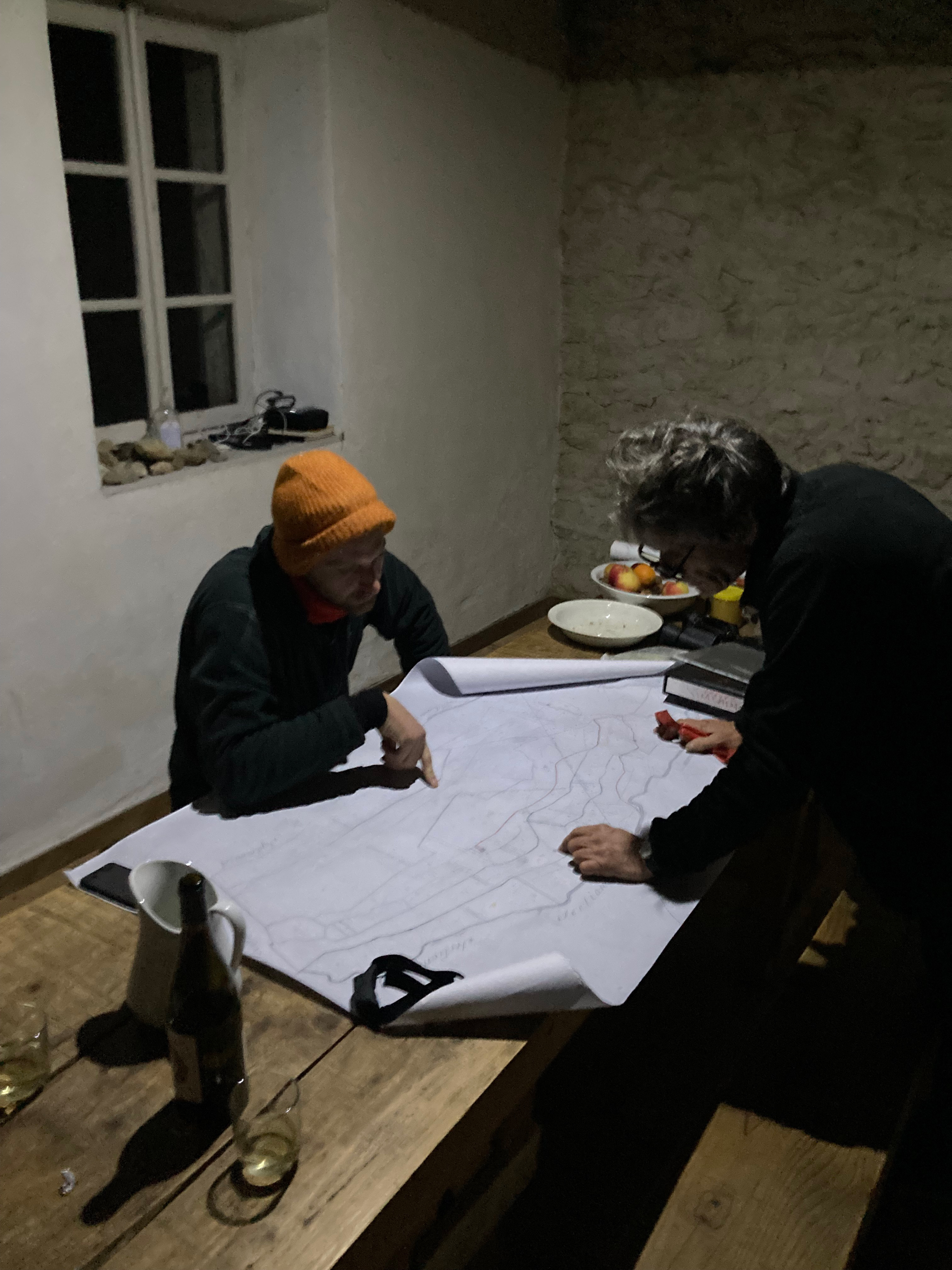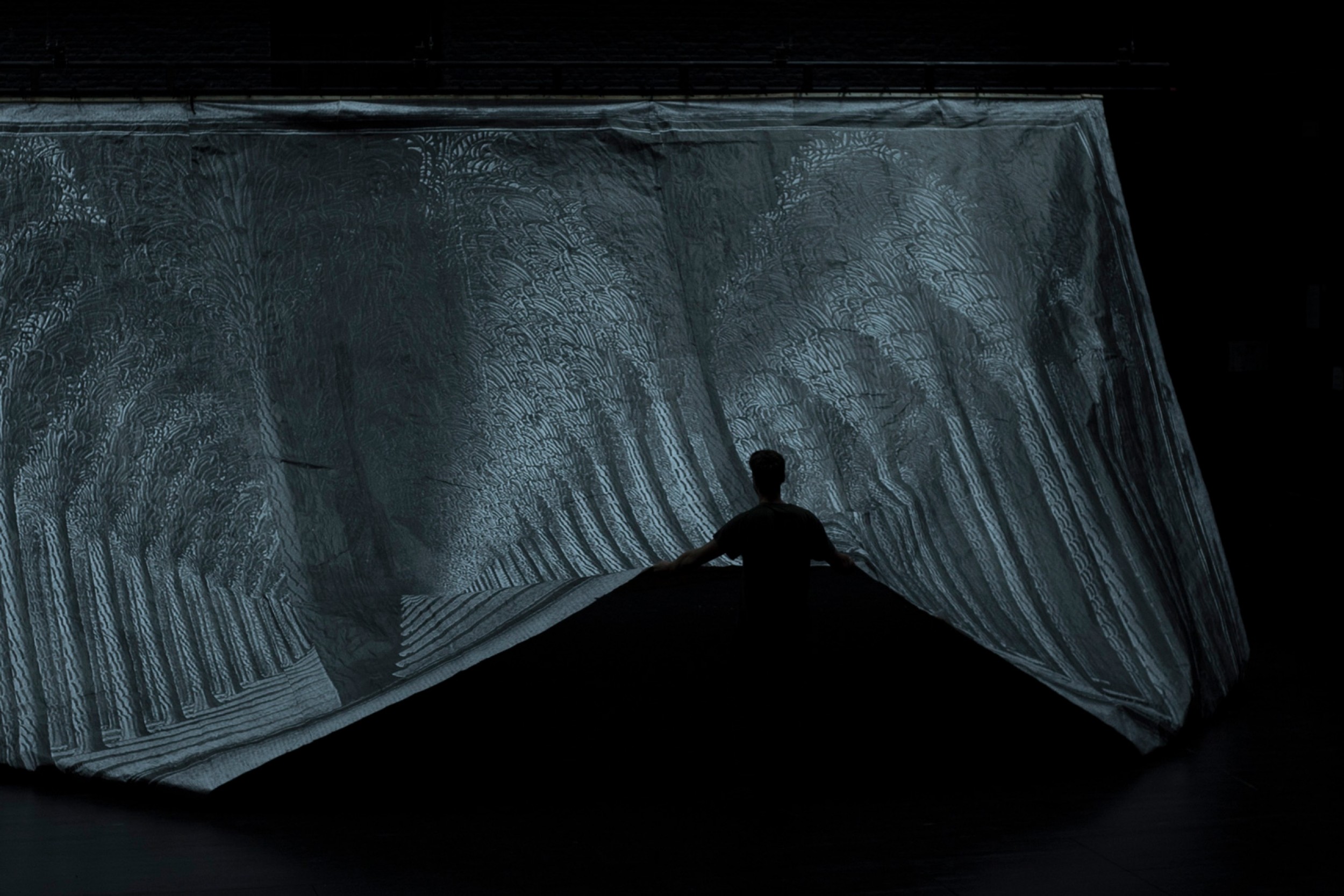

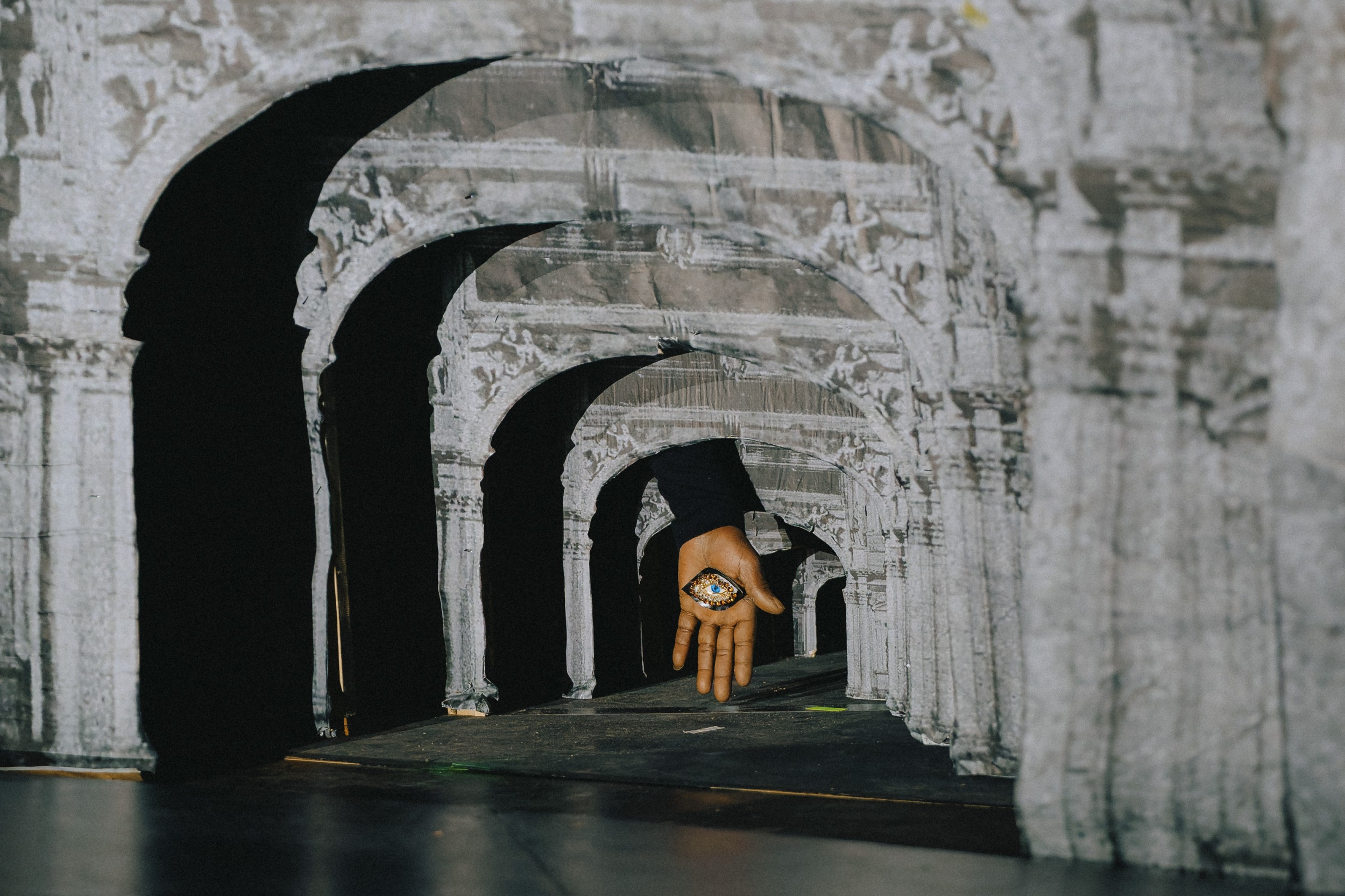
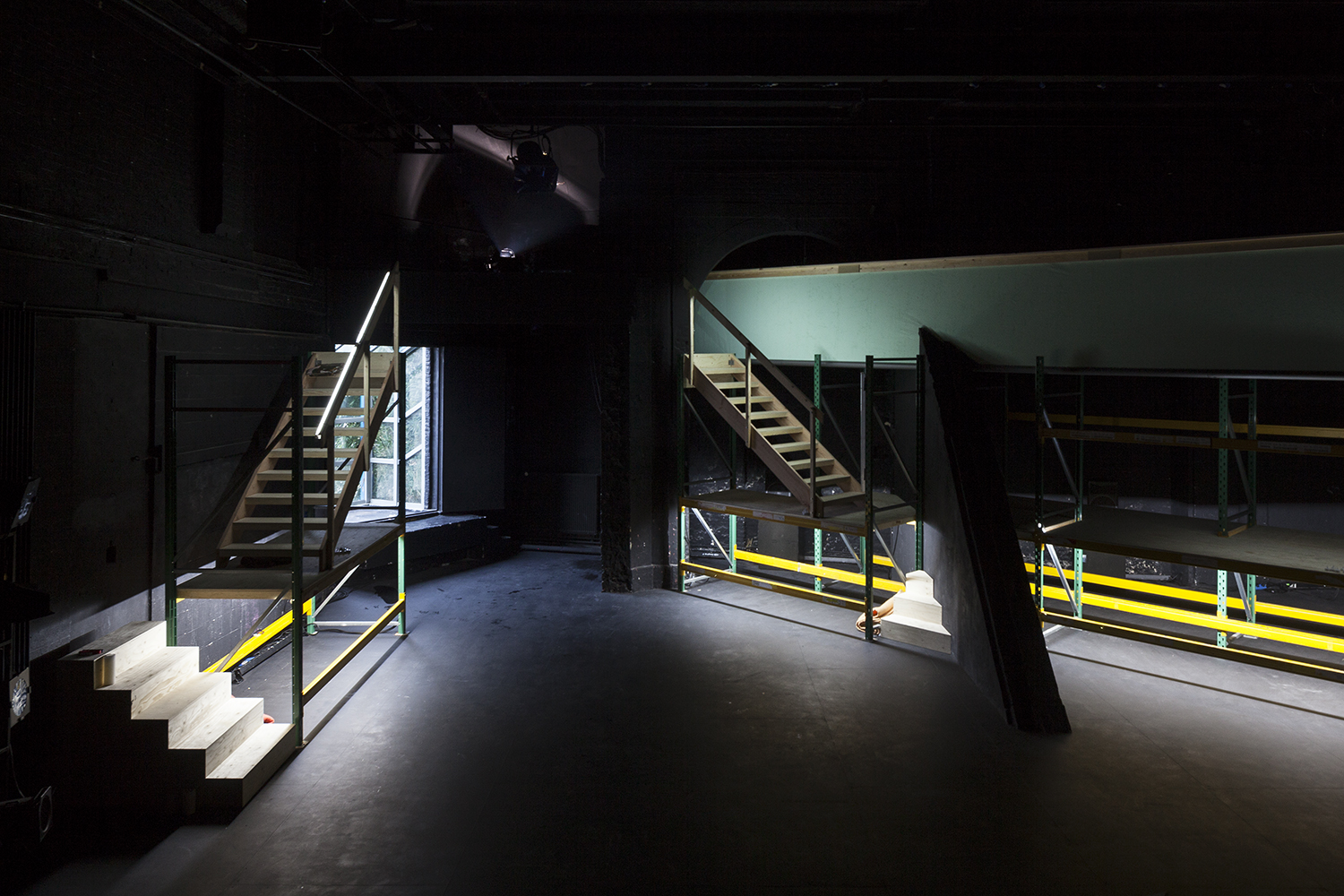


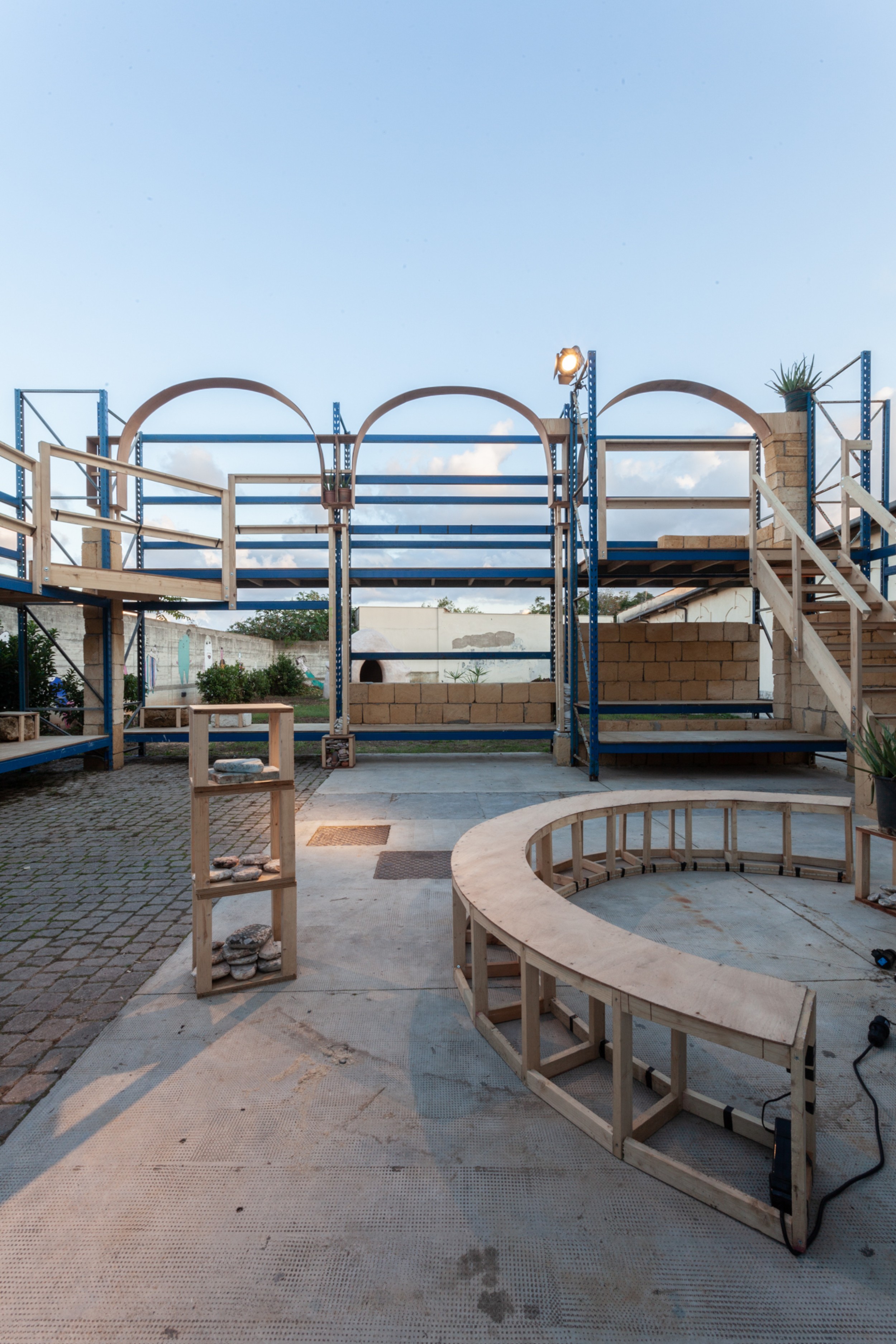
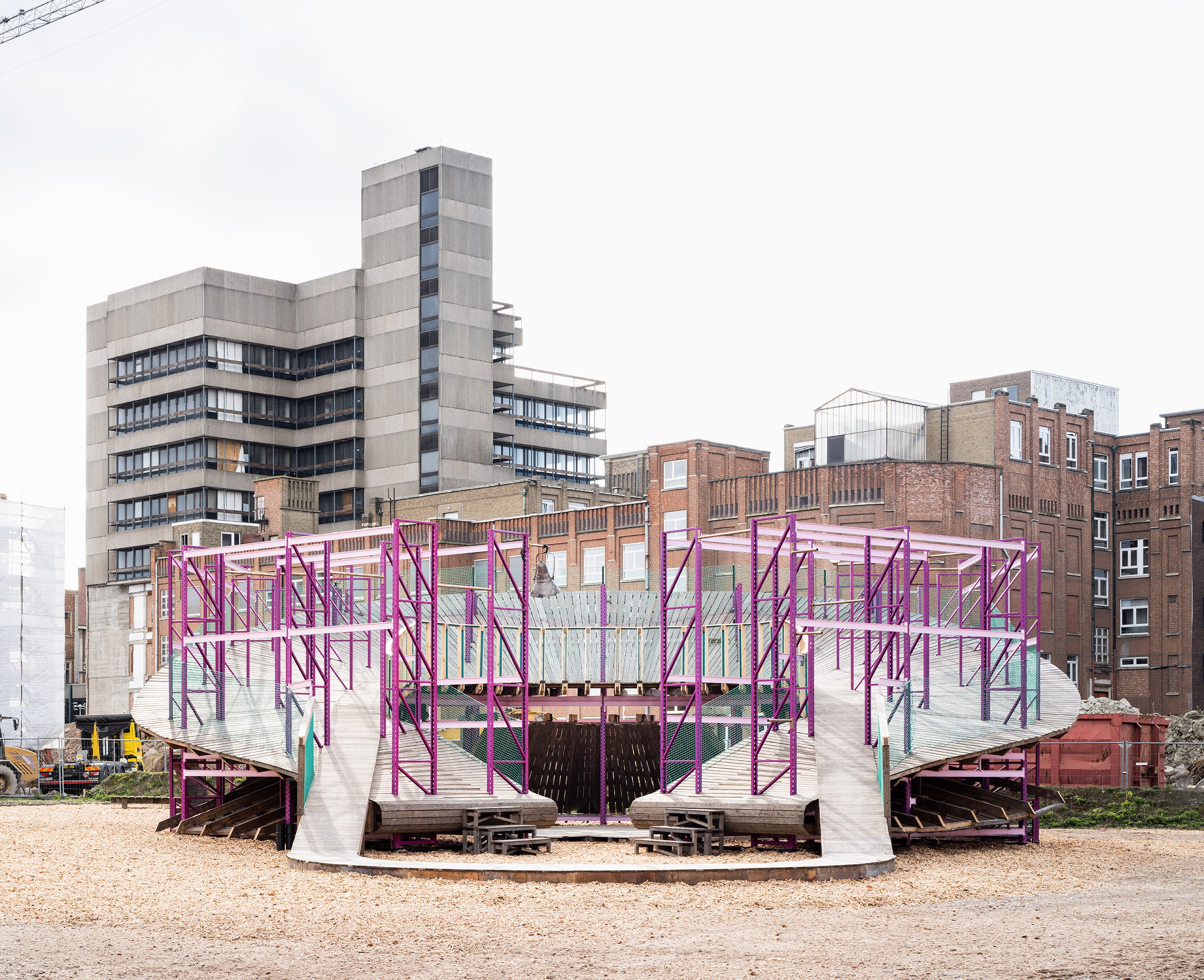
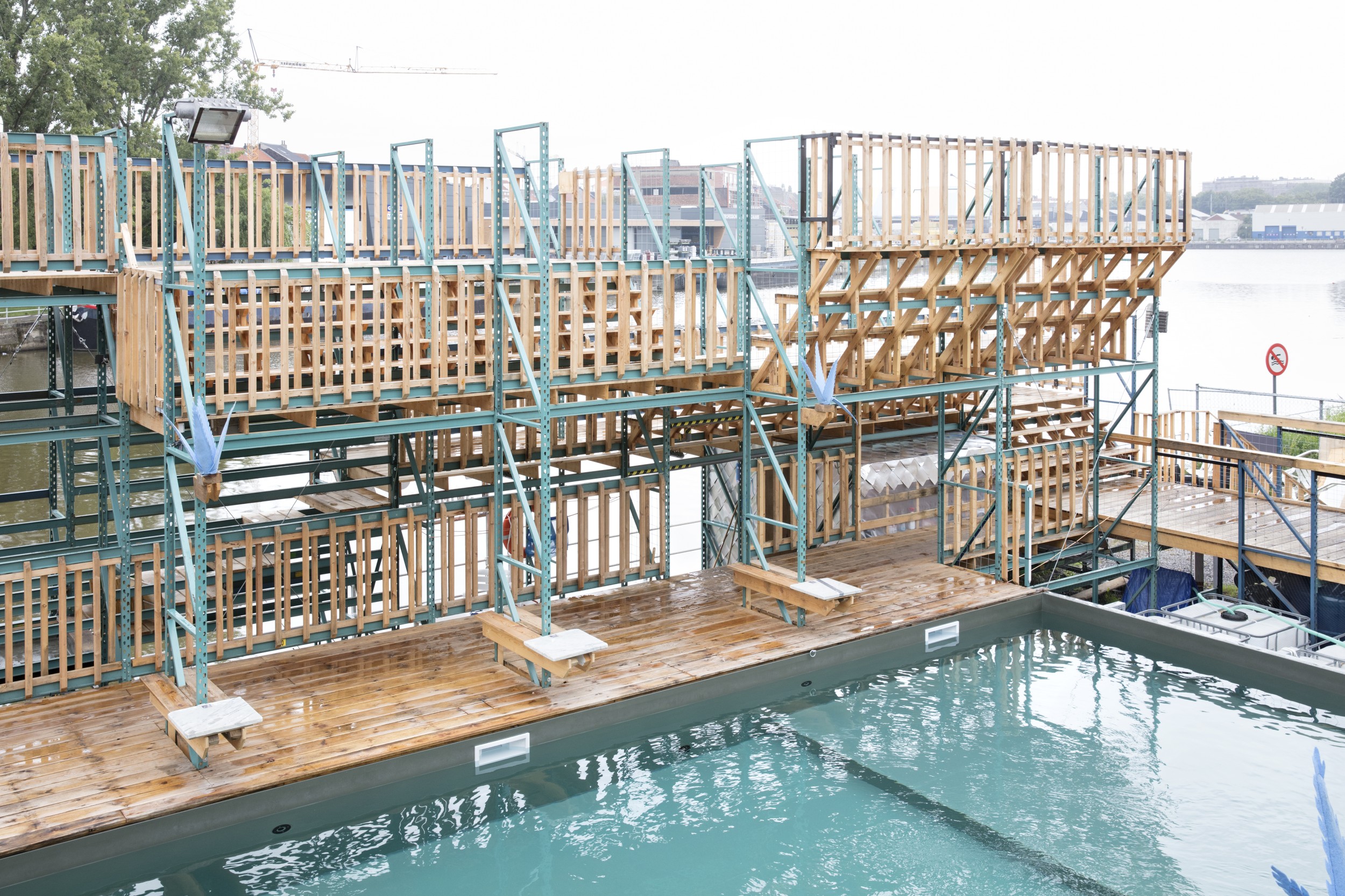
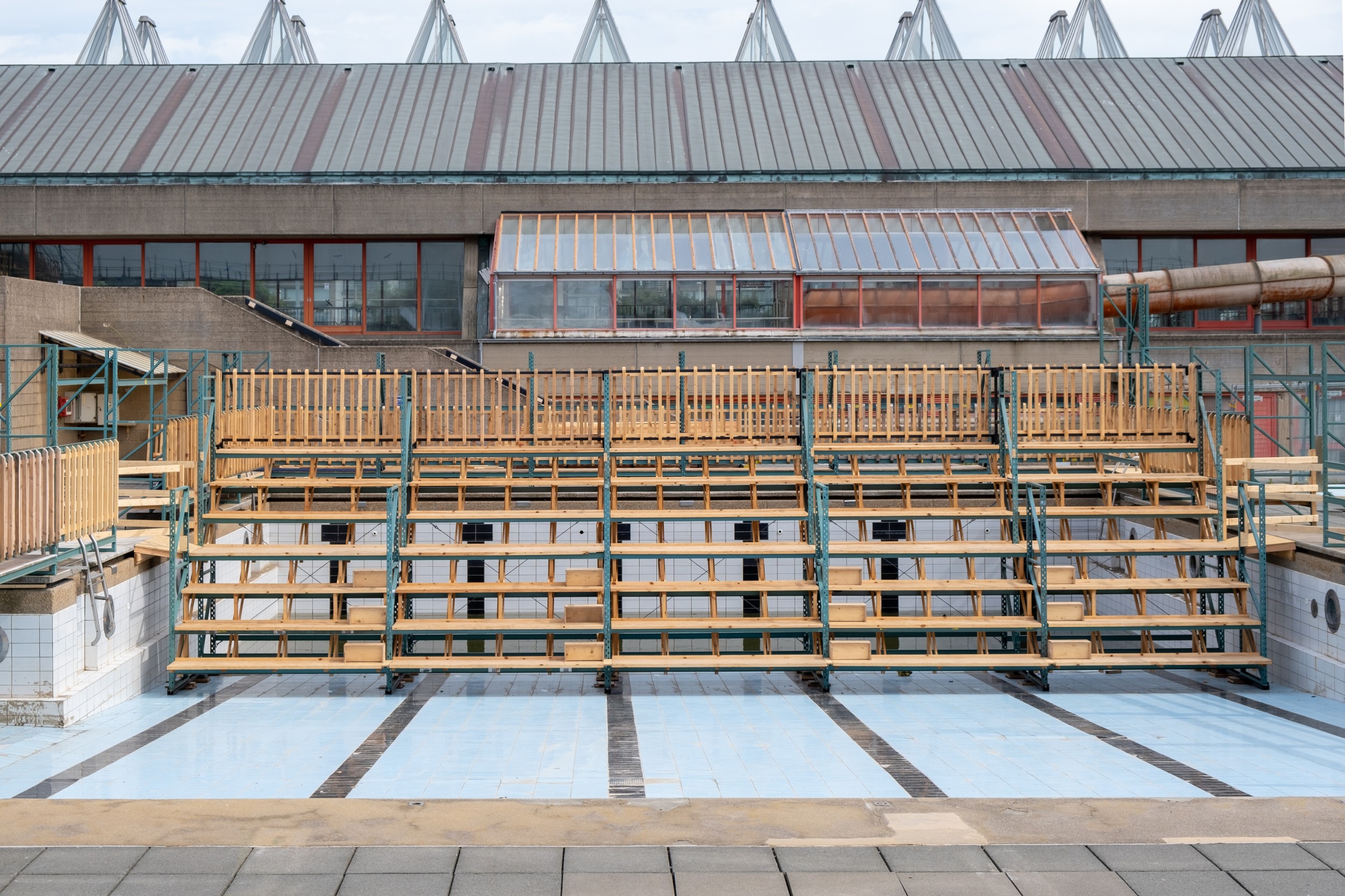
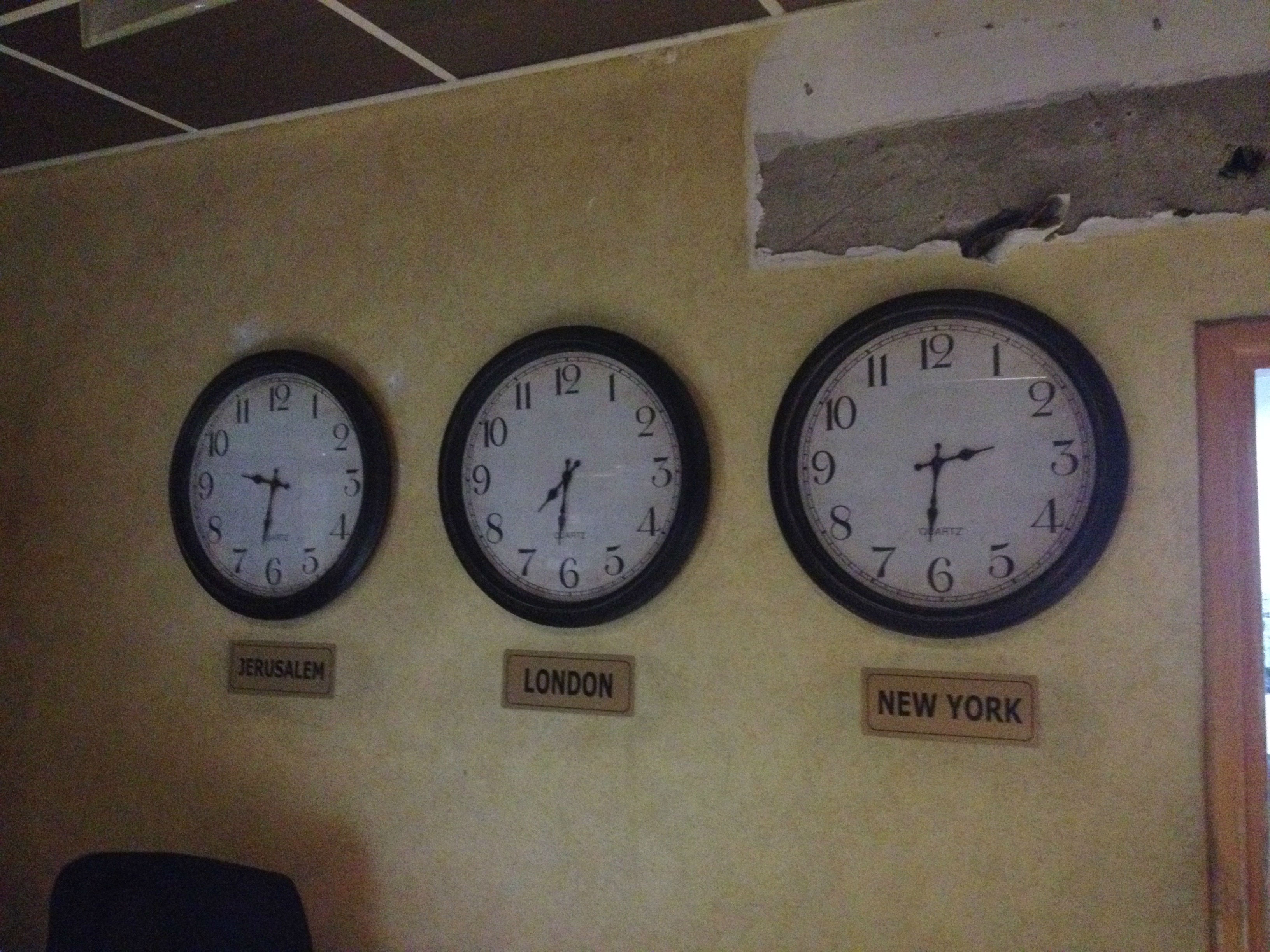
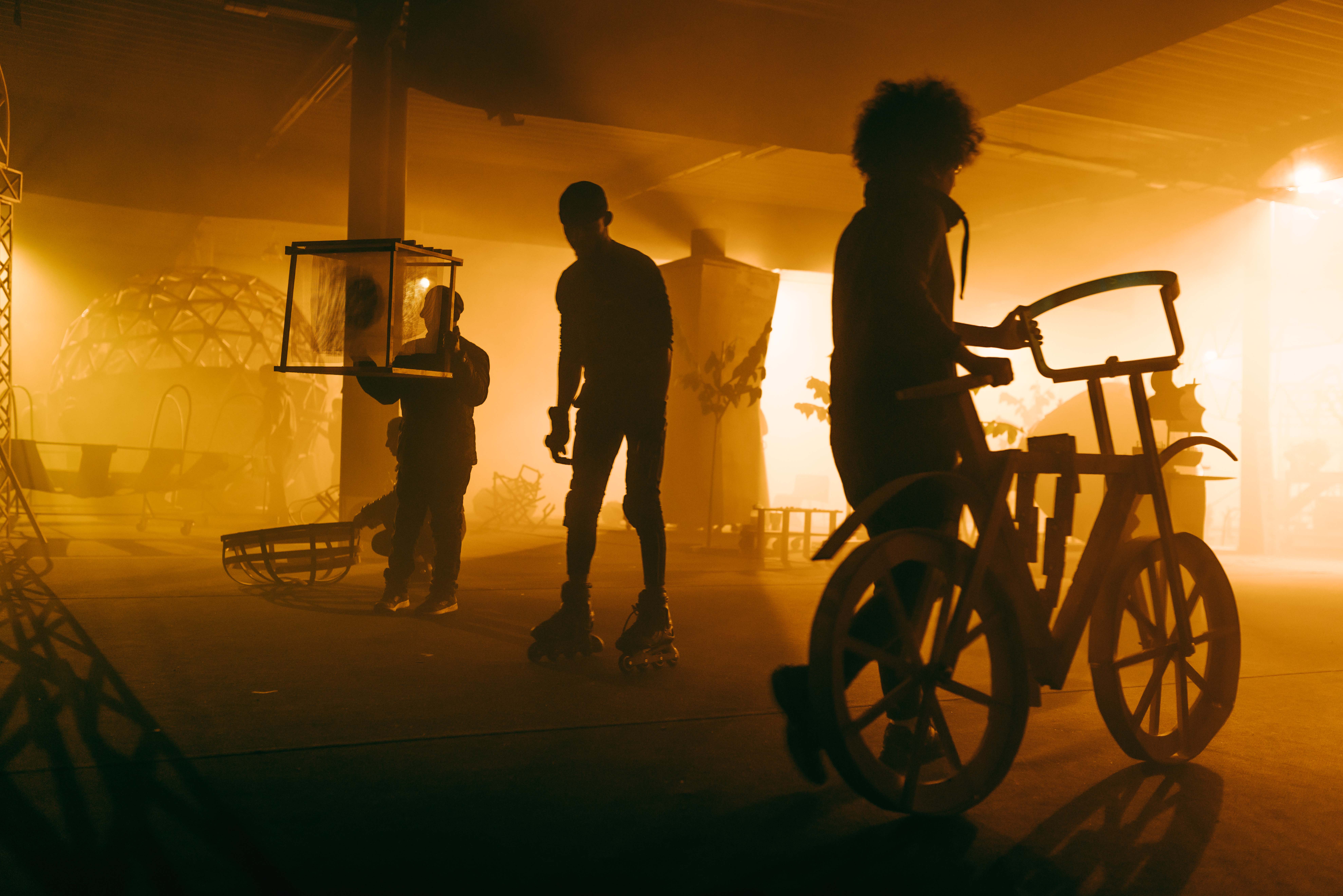
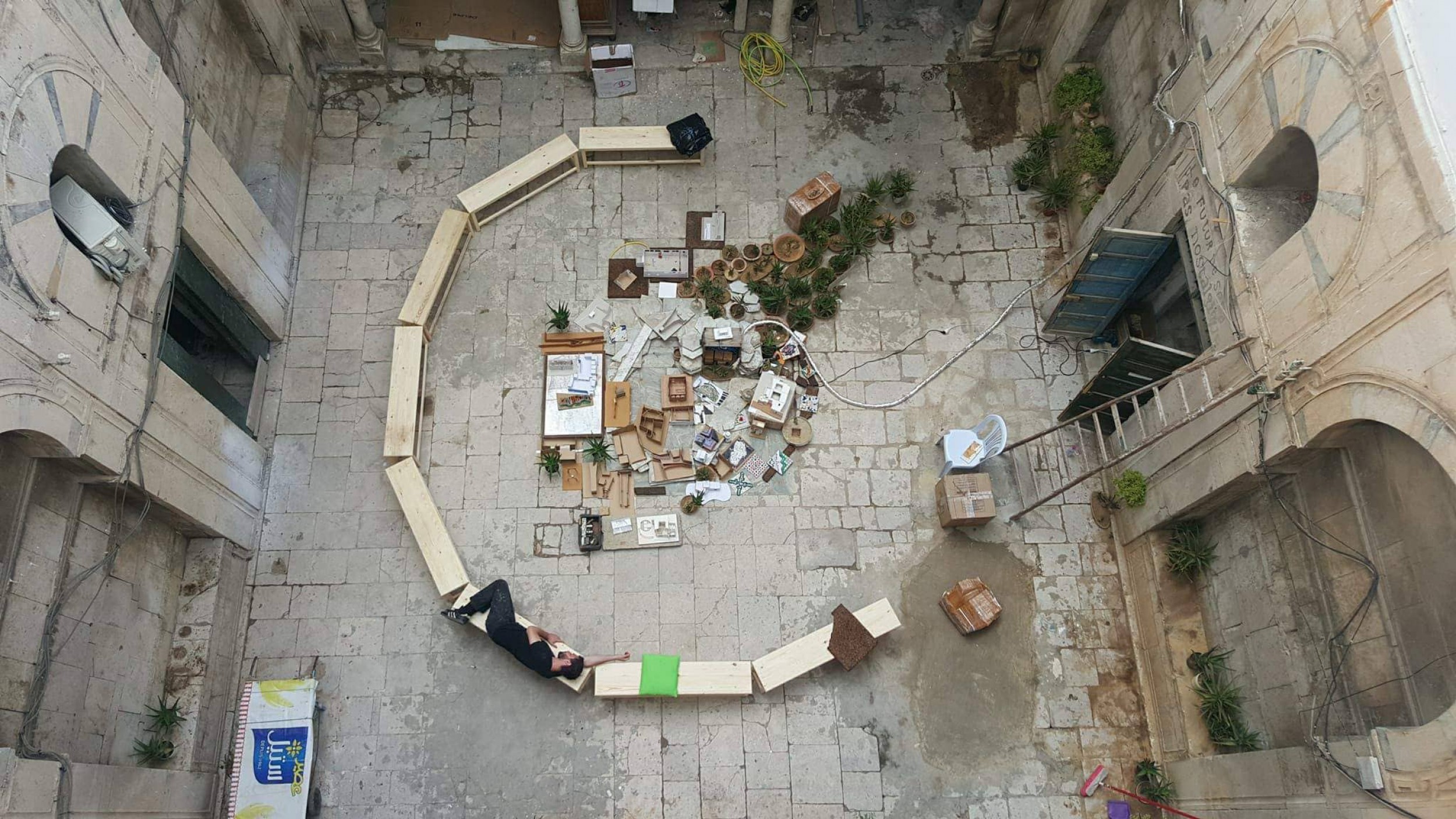
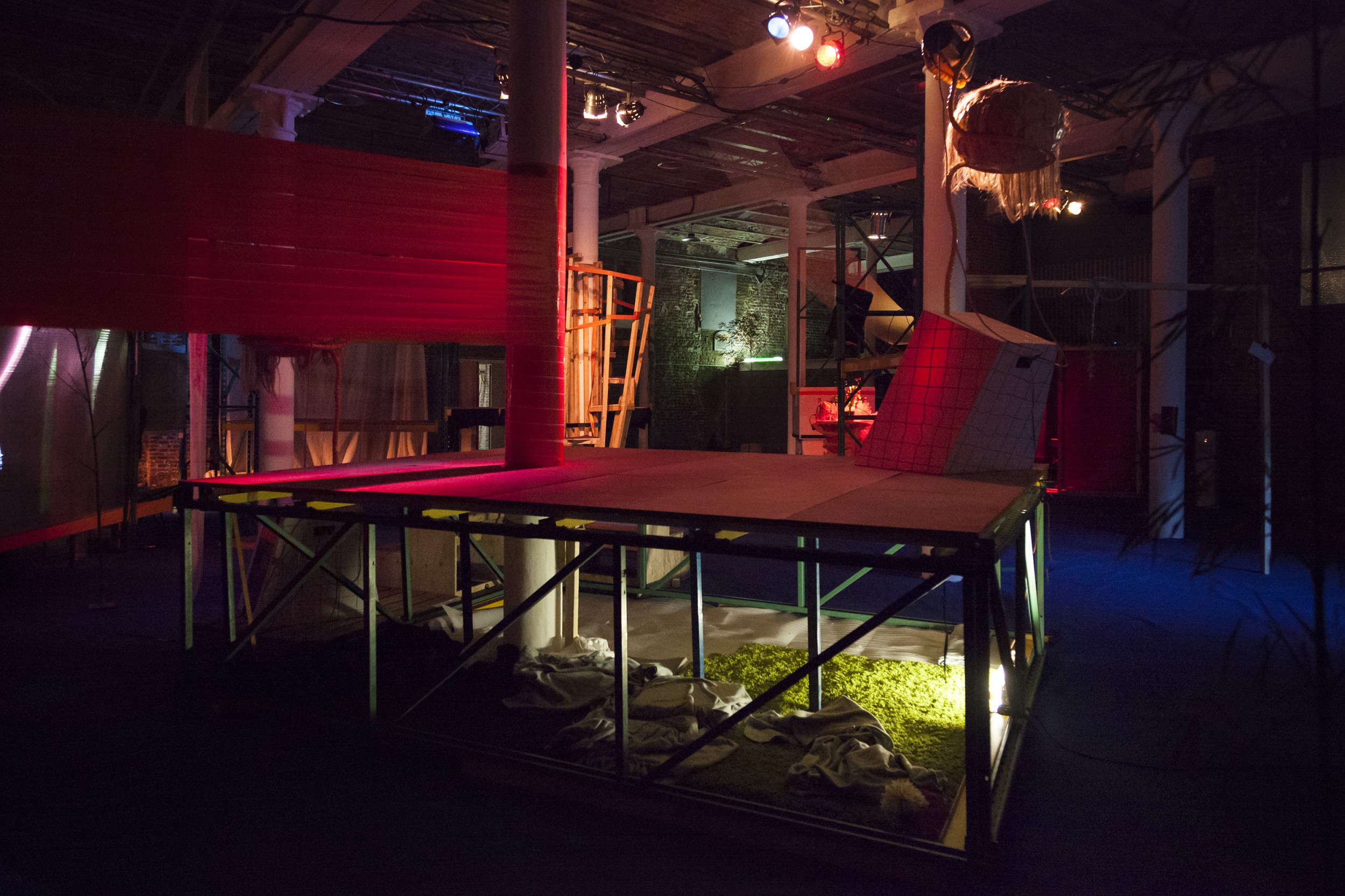
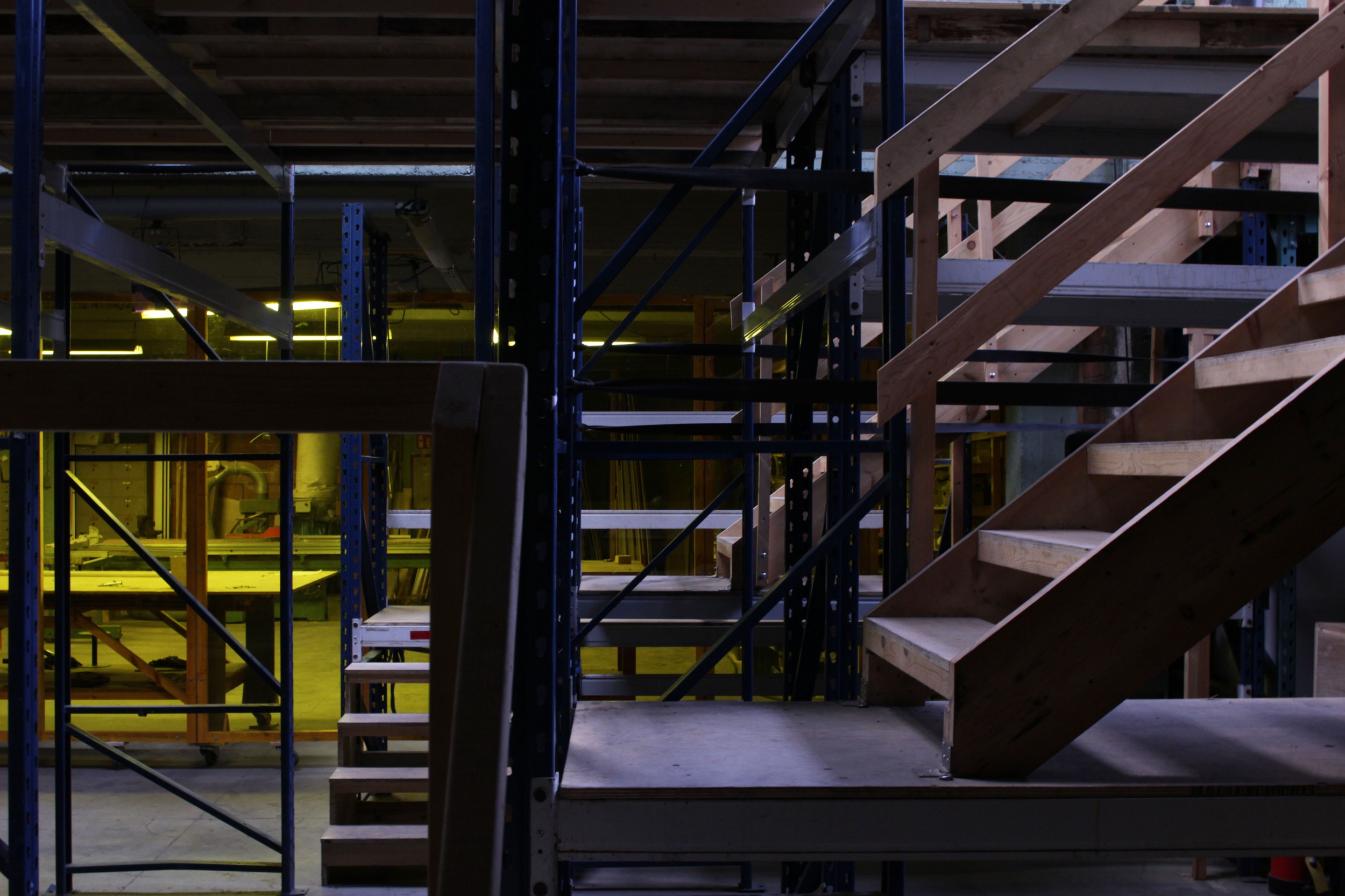
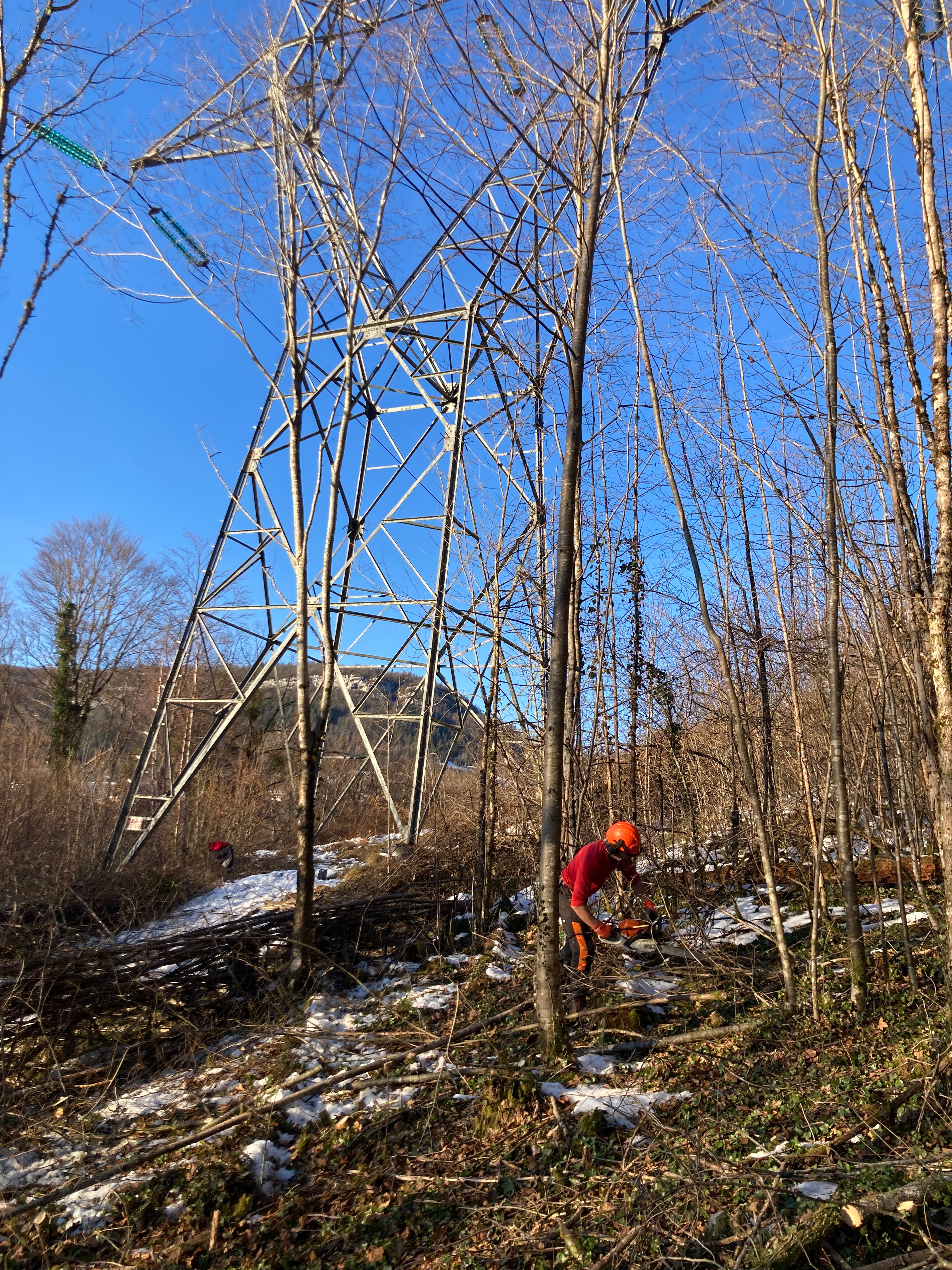
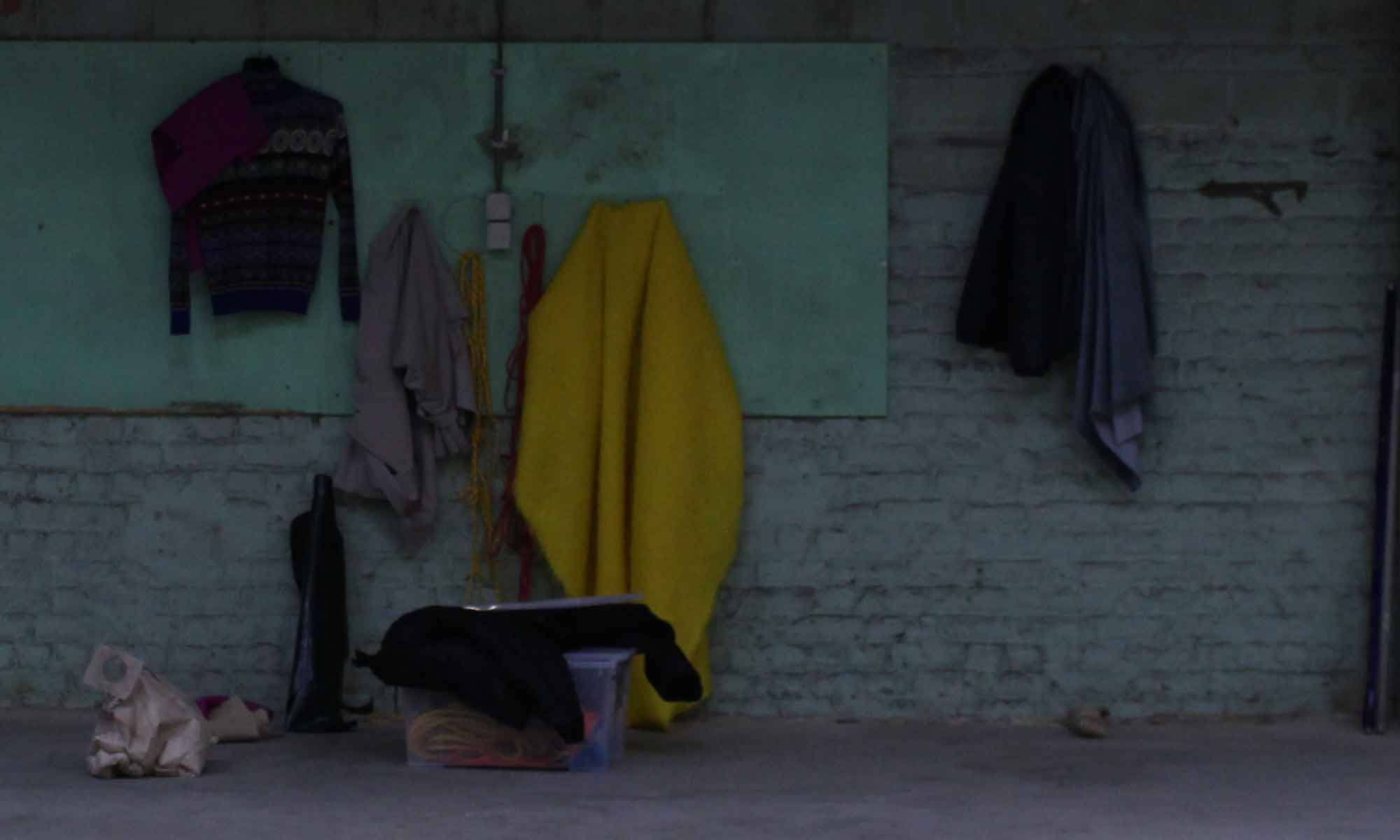


7 Feb - 20:00: Moments Before the Wind by Jozef Wouters at the reopening of Kunstencentrum VIERNULVIER - MORE INFO
13 Feb - 17:00: Spaces for the Night by Jozef Wouters in De Brakke Grond (Amsterdam, NL)
14 Feb - 14:30: Spaces for the Night by Jozef Wouters in De Brakke Grond (Amsterdam, NL)
24-25 Sept: A Day is a Hundred Years by Jozef Wouters at Minard / Kunstencentrum VIERNULVIER (Ghent, BE) - MORE INFO COMING SOON
















Jozef Wouters is an autonomous artist in residence at Damaged Goods. In 2016, he founded Decoratelier together with his technical director, Menno Vandevelde. Housed in a former factory building on Kortrijkstraat 47 in Molenbeek (Brussels), Decoratelier serves as the base for Wouters’ diverse projects and artistic collaborations, as well as an accessible workspace for artists from a wide range of disciplines.
"Decoratelier is a space that accommodates the various forms of collaboration and labour that are inherent in my work. Space is tested, conversations take place in wood, iron and cardboard. It is a permanent place within the constructional quest for constantly changing spaces in which art, thought and artisans meet." (Jozef Wouters)
 Projects
Projects















 Tourdates
Tourdates7 Feb - 20:00: Moments Before the Wind by Jozef Wouters at the reopening of Kunstencentrum VIERNULVIER - MORE INFO
13 Feb - 17:00: Spaces for the Night by Jozef Wouters in De Brakke Grond (Amsterdam, NL)
14 Feb - 14:30: Spaces for the Night by Jozef Wouters in De Brakke Grond (Amsterdam, NL)
24-25 Sept: A Day is a Hundred Years by Jozef Wouters at Minard / Kunstencentrum VIERNULVIER (Ghent, BE) - MORE INFO COMING SOON
 Press
Press

BOOK
Structures in words, ephemeral spaces made of cardboard and imagined scenographies – yet there was no time to build them. Fragile spaces made of paper that transform the theatre into a gigantic book. Scenographer Jozef Wouters and dramaturge Jeroen Peeters were going to make a performance around this idea when the coronavirus struck, the event was cancelled and suddenly they had too much time on their hands during those strange weeks of lockdown in the spring of 2020.
Moments Before the Wind has therefore become a book, a collection of notes on scenography that offer an insight into the poetics and artistic practice of Jozef Wouters and Decoratelier. Reflections on space, scenography, making art and institutional critique invite the reader to think along or to raise questions, to think out loud and to invent their own space.
Moments Before the Wind was published by Varamo Press in September 2020 and is for sale in our webshop.
PERFORMANCE
Moments before the wind is also an autonomous performance, created in De Vooruit on the occasion of the book presentation in September 2020. A replica of the 18th-century set Bosco di Palme — recreated in 2016 by Decoratelier in collaboration with the Palestine artist Rimah Jabr — enters into a dialogue with the Theatre Hall. The voice of Jorge Luis Borges becomes the score of the piece: his lecture Metaphors (1967) sparks a duet between scenography and imagination, which constantly disrupts and renews your gaze.
CREDITS PERFORMANCE
Concept Jozef Wouters & Jeroen Peeters
Text Jorge Luis Borges, Rimah Jabr
Many thanks to Barry Ahmad Talib, Dries Douibi, Bruno Forment, Ine Craenhals, Chris Keulemans en KVS (Brussel)
Licht & sound Michiel Soete
Technischal director Menno Vandevelde
Production Damaged Goods
Co-production Kunstencentrum VIERNULVIER

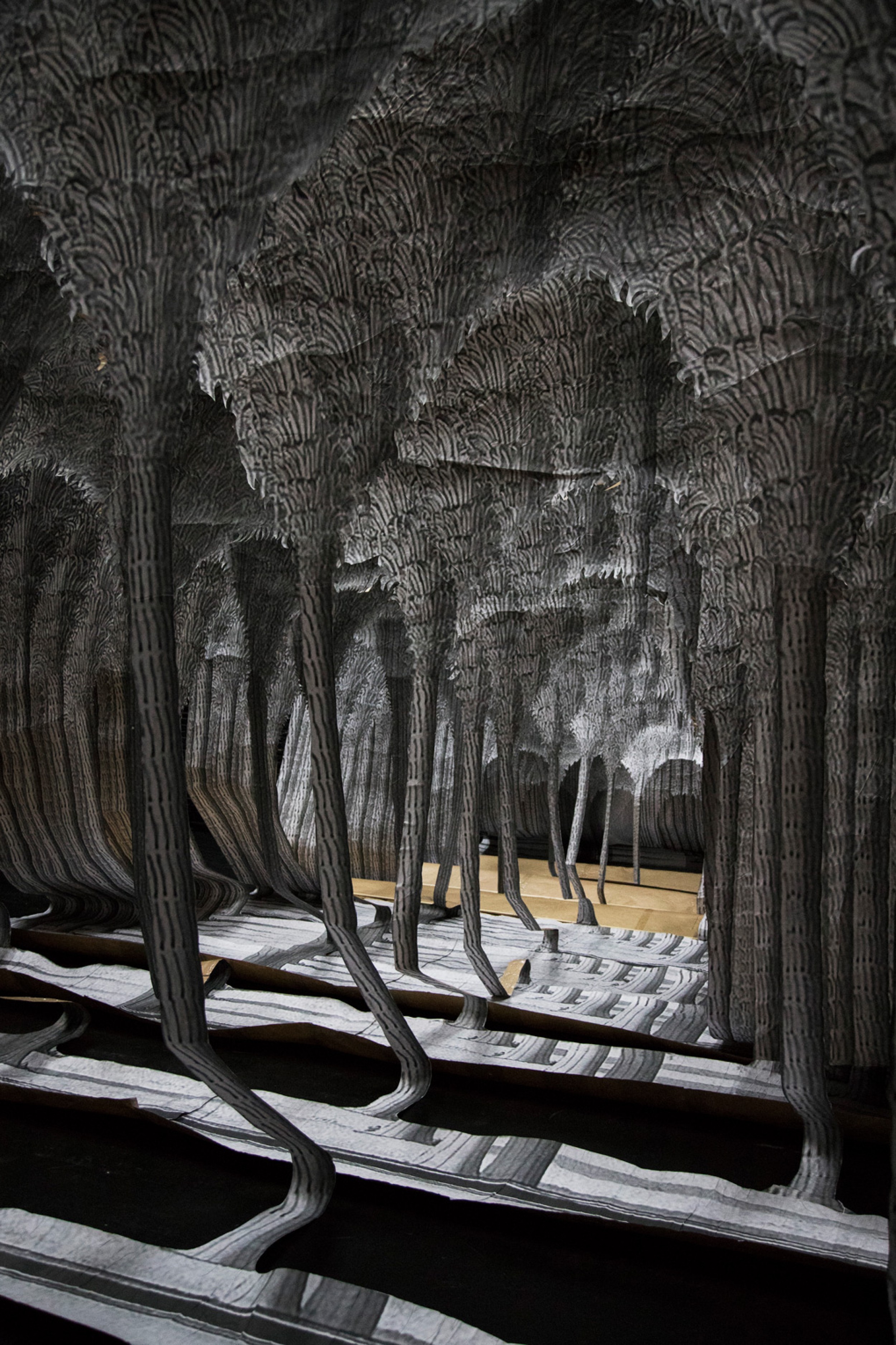
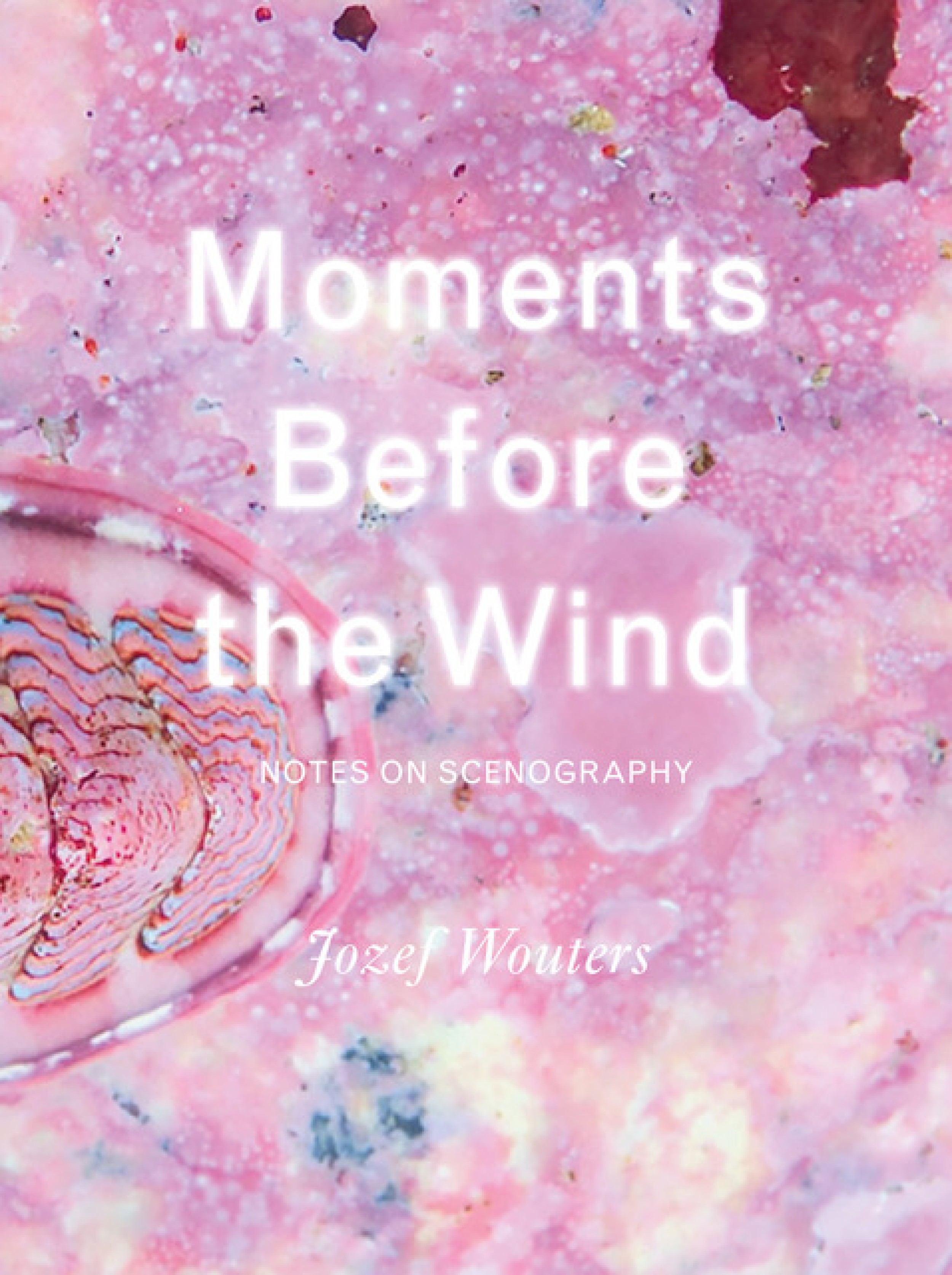
I design nightclubs the way a gardener cares for plants. I spend time in the club spaces I’ve designed, learning from the energy, the people and their behaviour throughout the night. It is like a conversation: I listen and the club tells me what to adjust.
In this ‘danced lecture’ the artist and scenographer Jozef Wouters takes you on a tour through his archive of spaces made for nightlife. Over the years, Wouters has created numerous clubs both inside Decoratelier, his workspace in Molenbeek, and in other places, such as music festivals. ‘Making spaces for the night challenges my understanding of space, time and again. I am interested in the play between open and closed, watching and being watched, and how architecture can be a part of this. This performance is a way to keep the archive alive and to revisit some bygone spaces in the corners of my memory.’
Lecture-performance by Jozef Wouters
Created in conversation with Wannes Gyselinck
Originally commissioned by Charleroi Danse
Production Charleroi Danse and Damaged Goods


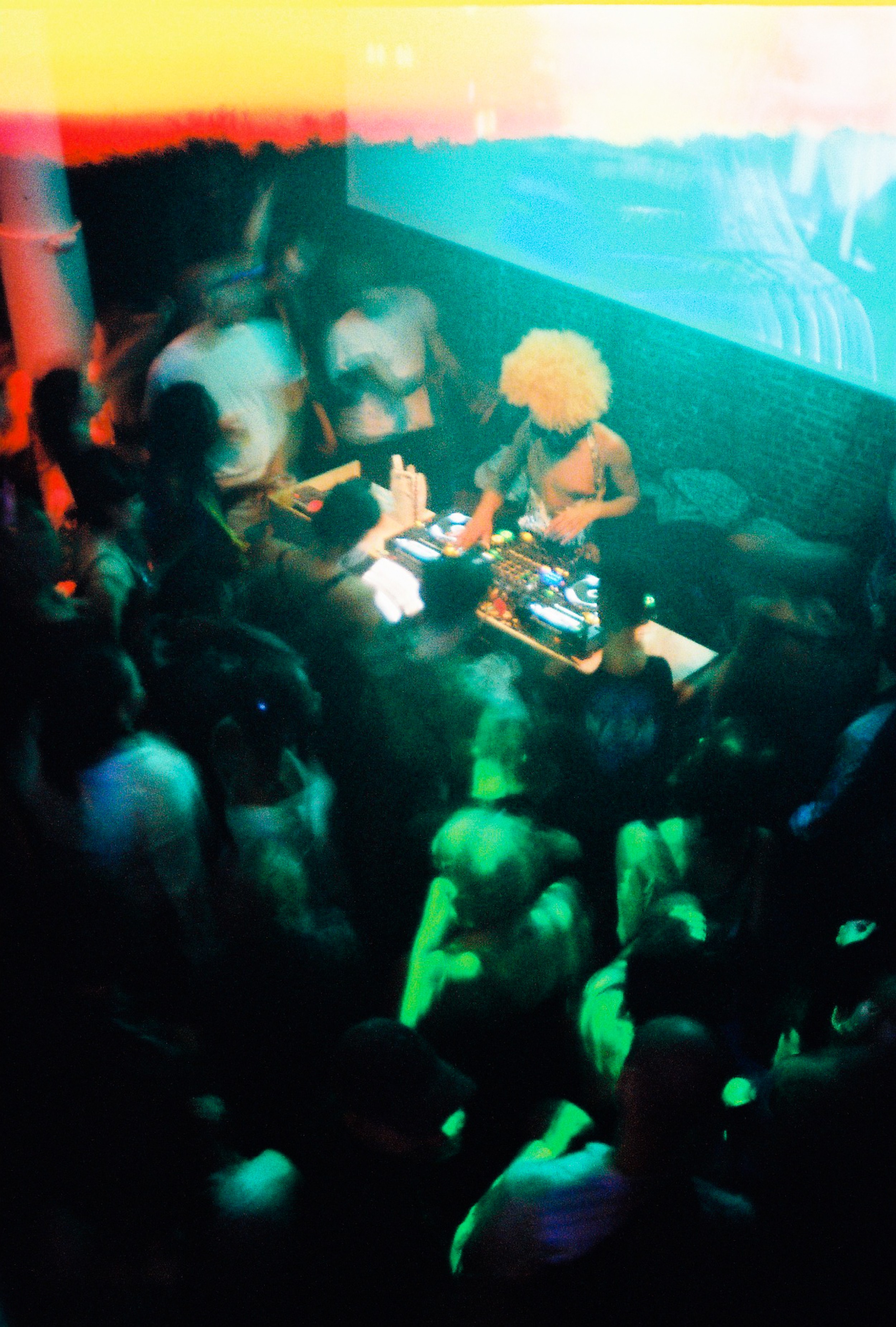
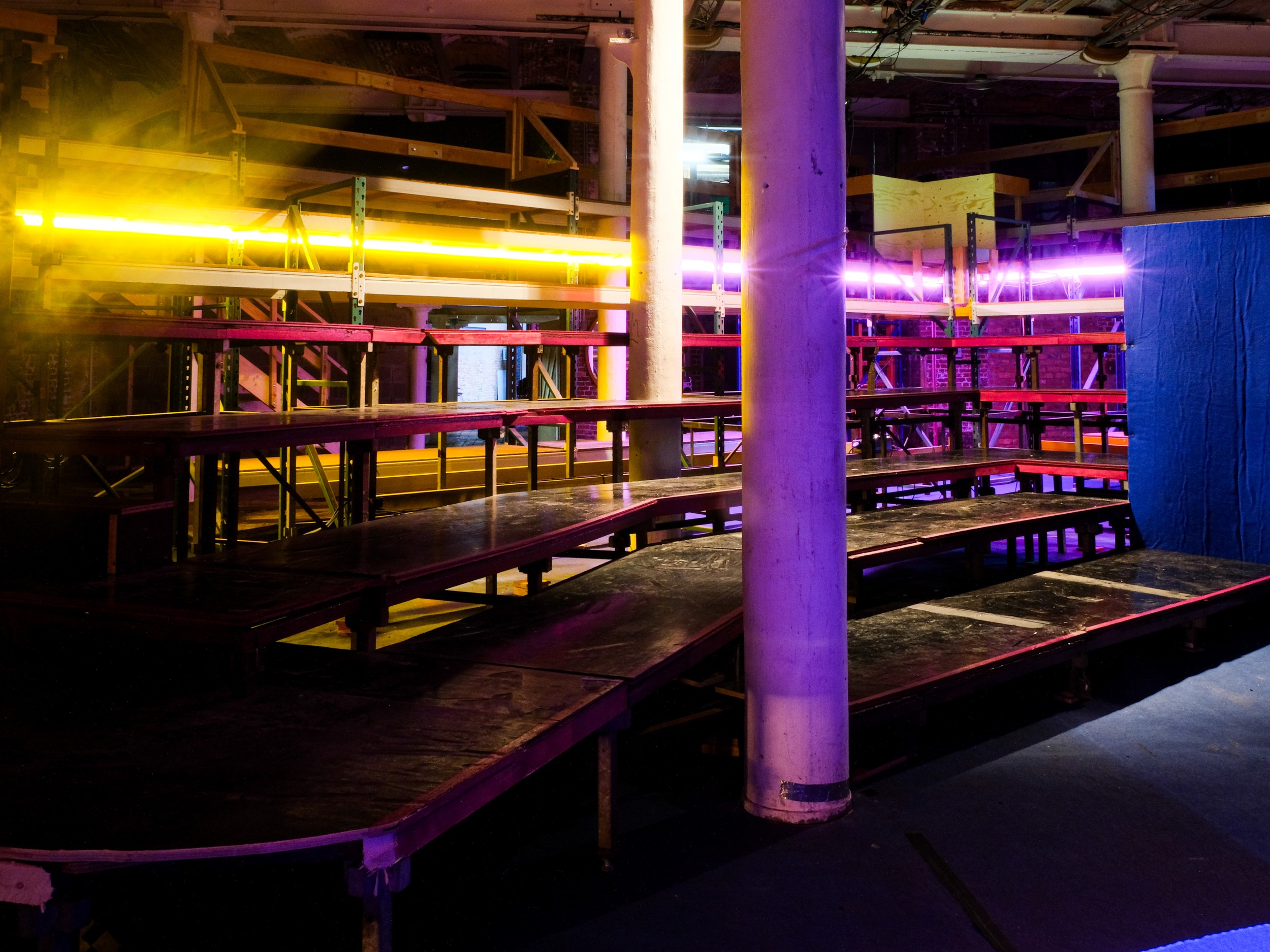
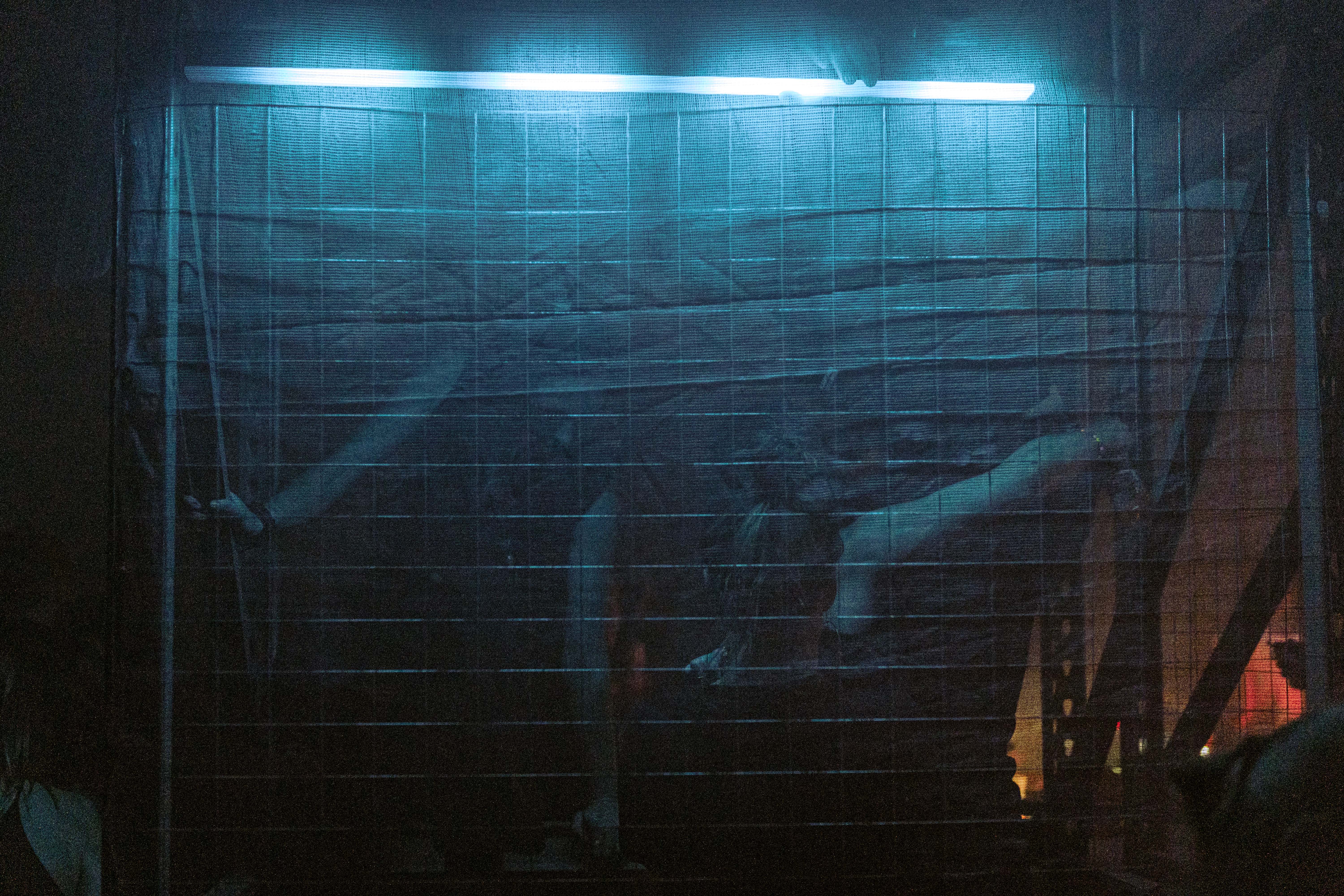
Scenographer and theatre maker Jozef Wouters always responds to a built reality. In A Day is a Hundred Years he interweaves the story of Decoratelier, his workspace in Brussels, with that of its janitor Barry Ahmad Talib, an artist from Sagale (Guinea). Jozef has shared his atelier with Barry since 2019. For A Day is a Hundred Years, he also shared his work by cutting thousands of leaves out of fabric for Barry’s tree sculptures. During this patient and time-consuming activity, their conversations created a kind of fusion between Sagale and Brussels. A place that is neither here nor there, but somewhere in between.
Placing the façade of Decoratelier front and center, Jozef Wouters dramatizes the mediation between open and closed, private and public, that plays a vital role in our urban interactions. By combining traditional theatrical techniques, such as perspectivist illusions, with a turning stage and a cast composed mostly of technicians, a space is formed that allows the perspective to shift constantly. In this shifting gaze, the piece spins out into an urban design plan told as a duet between two artists.
Text, direction, scenography Jozef Wouters
Artistic collaborators Barry Ahmad Talib, Michiel Soete
Performance Barry Ahmad Talib, Jozef Wouters
Created in collaboration with Micha Goldberg, Naomi Lilith Quashie, Maya Dhondt, Kamal Tall
Light design and music composition Michiel Soete
Dramaturgy (creation 2023) Bryana Fritz
Dramaturgy (remake 2025) Sodja Lotker
Costume design Lila John
Inside eye Enzo Smits
Technical director Menno Vandevelde
Built by Decoratelier, Brussels (Builders: Jamy Hollebeke, Willem Rys, Jan Rymenants, Remco Wuyts, Vic Van den Bossche)
Sound Wout Clarysse
Light Sarah Feyen
Stage Tom De Langhe
Production management Vincent Focquet, Michiel Soete, Marie Umuhoza
Interns Sophie Bax, Chloé Tempelhof, Freek Willems, Margo Van Lancker
Production Damaged Goods
Coproduction Toneelhuis (Antwerp), Wiener Festwochen (Vienna), PACT Zollverein (Essen), Perpodium
With the support of the Flemish Government, the Flemish Community Commission and the tax shelter measure of the Belgian Federal Government via BNPPFFF
Many thanks to Kaaitheater, DE SINGEL

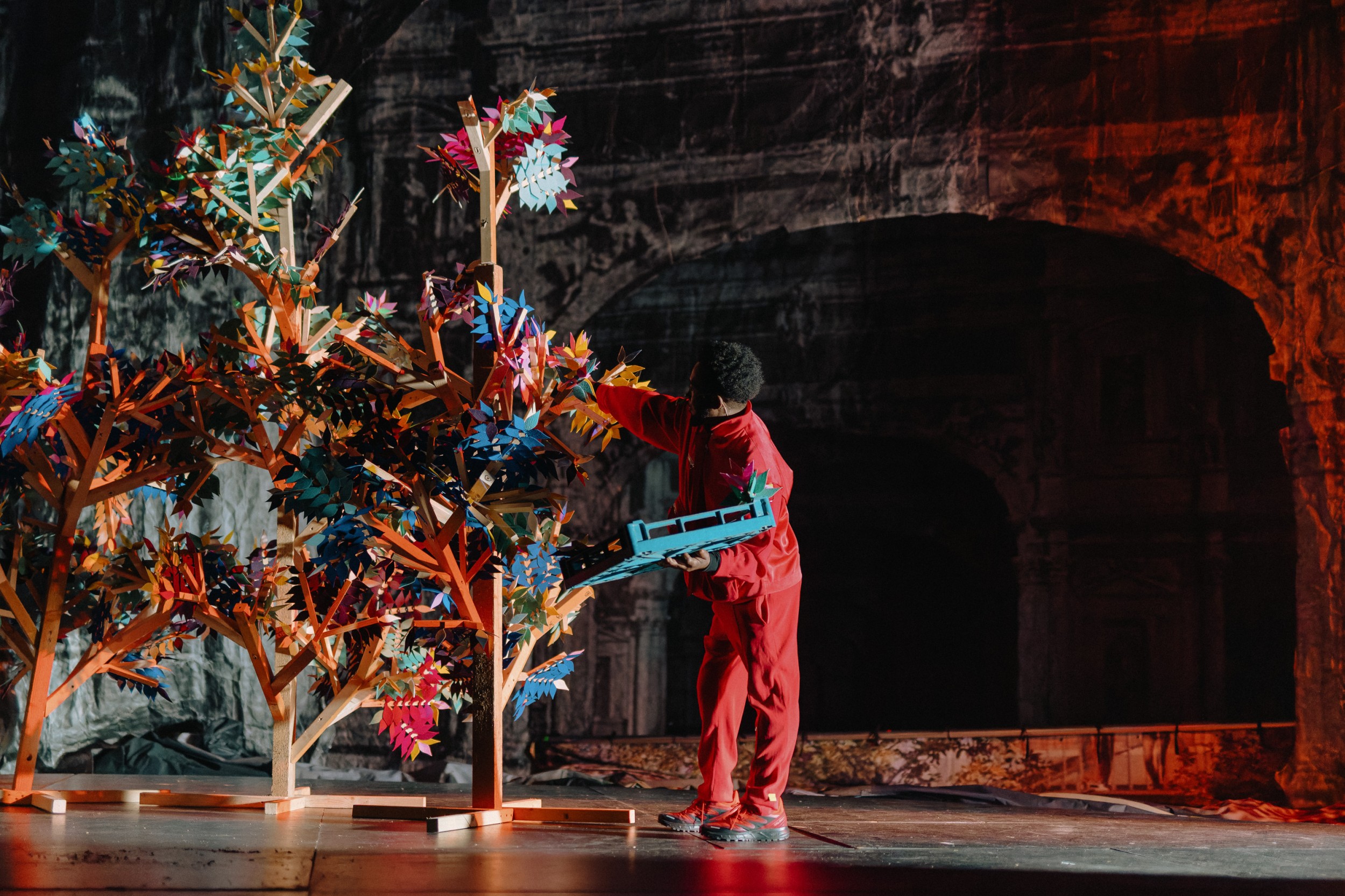

In addition to their own work and projects, Decoratelier Jozef Wouters creates scenographies in collaboration with various artists, makers and organisations.

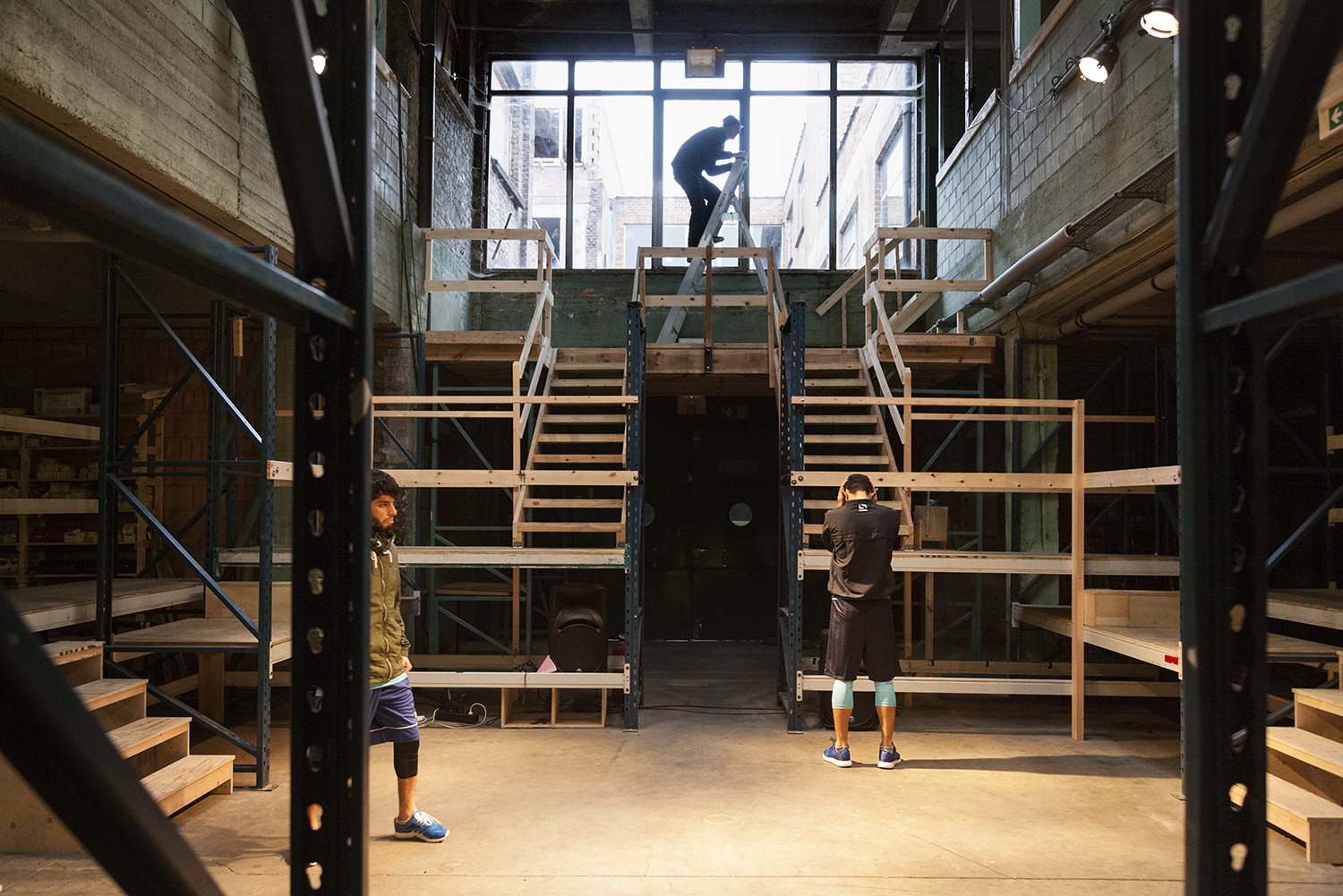
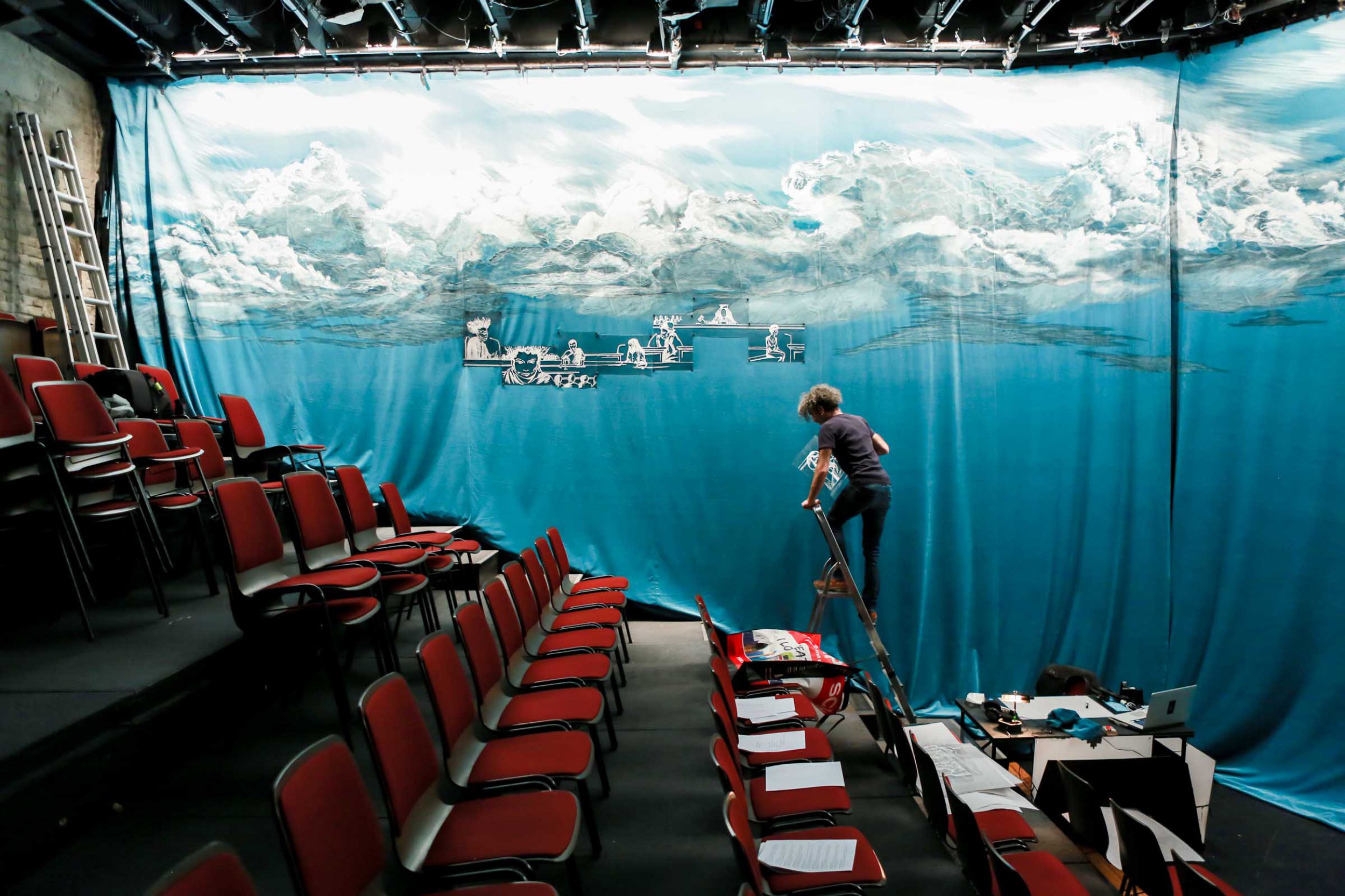
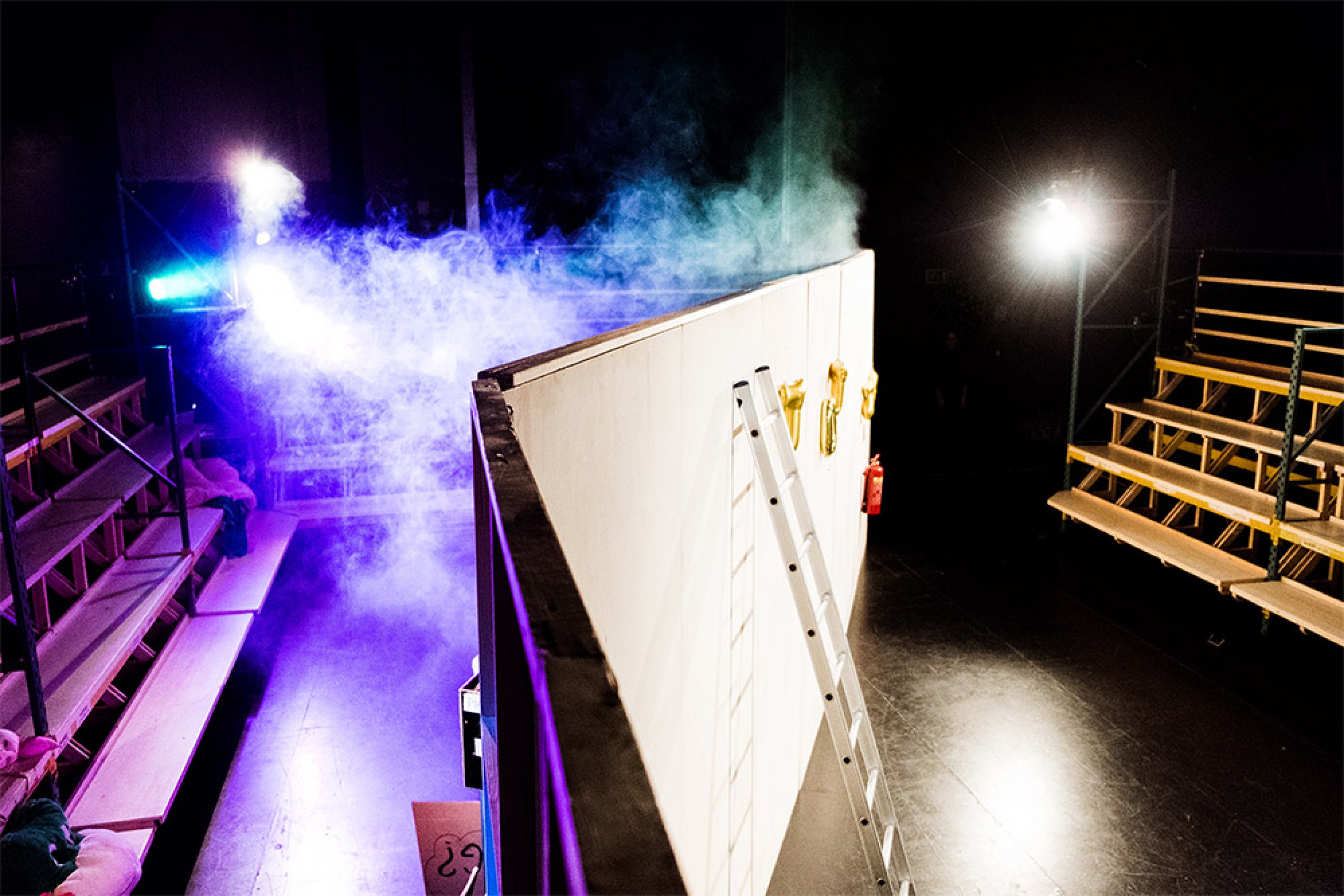
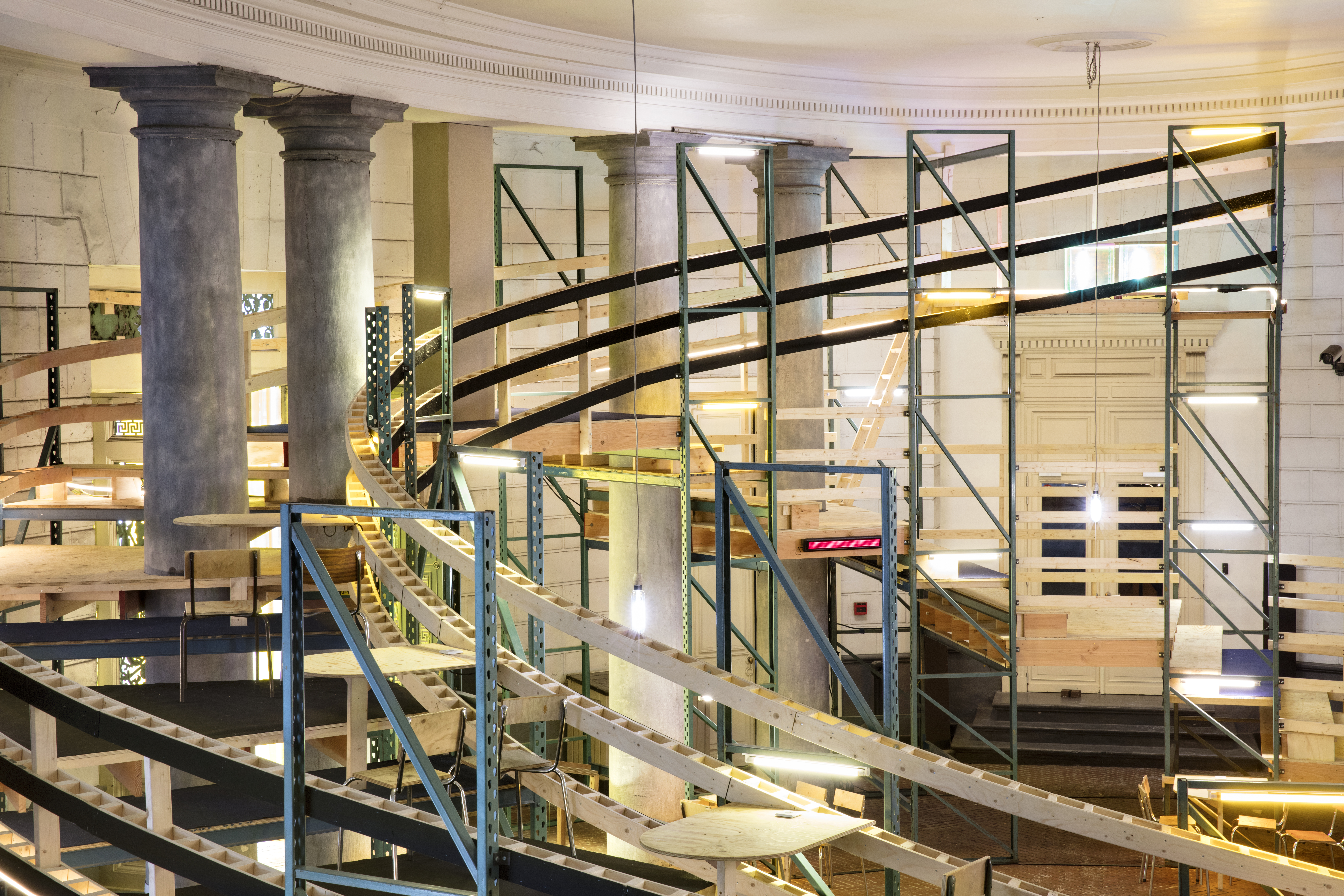

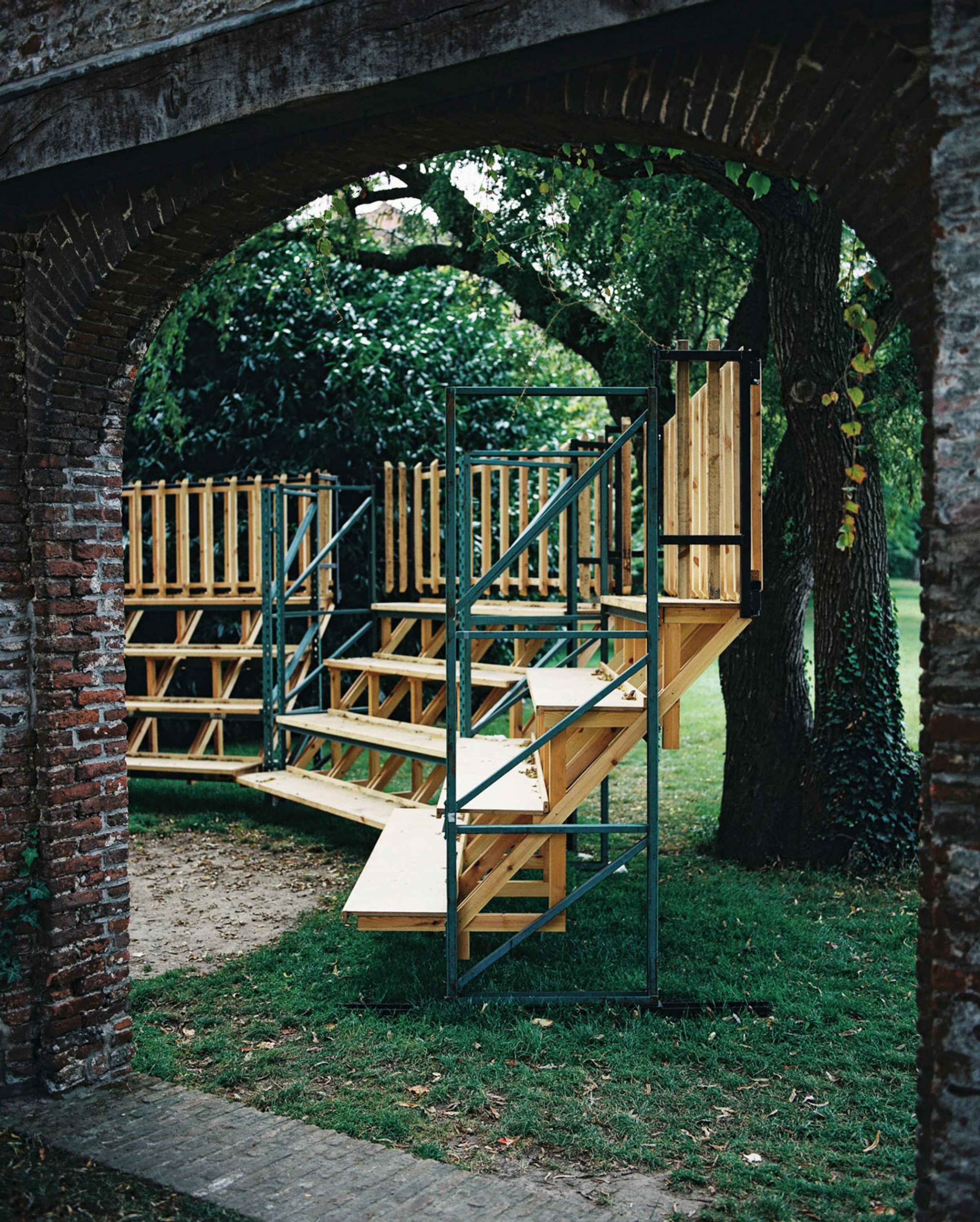
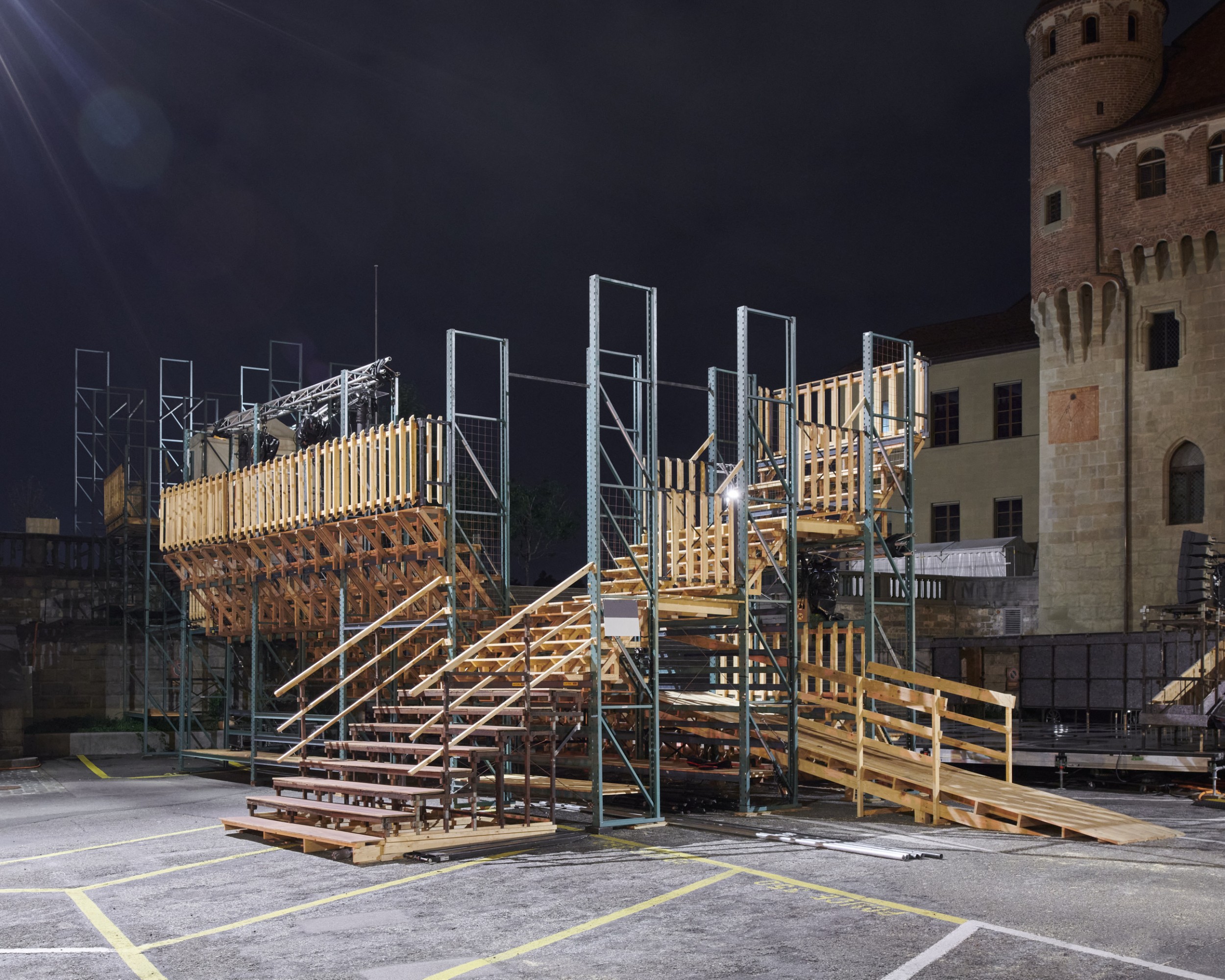
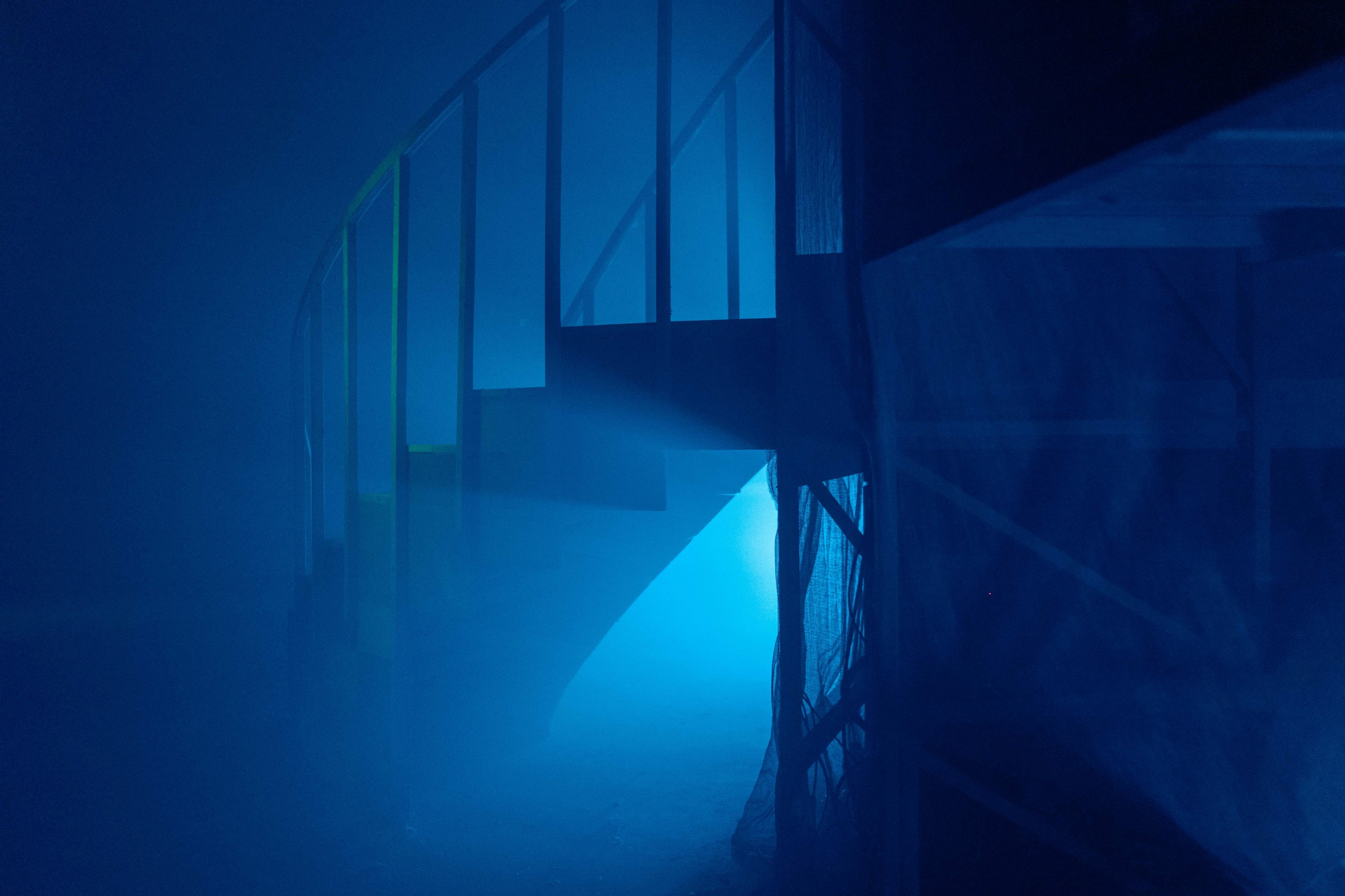

4-6 September 2025 in Decoratelier, Kortrijkstraat 47, 1080 Sint-Jans-Molenbeek
As temporary dwellers of an abandoned factory in Molenbeek, Decoratelier find themselves on heavily polluted ground. A thick layer of concrete prevents oil, chemicals and heavy metals from percolating into daily life and work above the ground. What are we actually treading on? If we’d take a closer look at the soil, what invisible histories and alternative stories would we find?
Decoratelier organizes a symposium around these questions: Boring (dictionary: drilling; enlarging an existing hole). Each day we bore together. We invite dwellers and expert readers to perform a drilling, read a soil sample and amplify the histories it contains. Together, we speculate about future ecosystems, forms of life and modes of dwelling that may thrive there. Boring proposes a journey with several talks and performances in a special scenographic setting, for visitors to think along and carry these stories forward.
In collaboration with Flanders Architecture Institute, MolenbeekforBrusssels2030 and KANAL Centre Pompidou
4 September – Living ground – 18:00 - 23:00
How can we consider the ground as a living being? In a series of short interventions on site, filmmaker Fairuz Ghammam, builder Jeff Verschueren and architect Sebastiaan Willemen uncover various aspects of the terrain and its ecosystems by following roots, mycelium and other traces of imported and dreamt landscapes. In our adobe theatre, anthropologist Livia Cahn and architect Rachel Armstrong discuss the violence of drilling and extraction, to then explore the need for ‘soil literacy’ and alternative ways of relating to the living ground. A concert by Nathan Daems concludes the evening, unfolding vessels of sound.
5 September – Excavating past and future – 18:00 - 23:00
In a series of short interventions on site, filmmaker Fairuz Ghammam, architect Bernardo Robles Hidalgo and urban researcher khalda el jack dig into the roots of a place and the challenges posed by historical pollution and displacement. In our adobe theatre, geo-archaeologist Yannick Devos and visual artist Rossella Biscotti follow the activities of archaeologists who read the ground as if it were a book, excavating both past and future forms of living and dwelling. A world of clay is brought to resonate in Maika Garnica’s concert.
6 September – Narrating more-than-human worlds – 18:00 - 23:00
How do we narrate and make sense of underground worlds? Do we need consent or rituals to descend into the holes of earth? In a series of short interventions, architects and urban researchers khalda el jack, Bernardo Robles Hidalgo, Jeff Verschueren and Sebastiaan Willemen uncover various aspects of the Decoratelier site, relating to pollution and remediation, displacement and resilience of ecosystems. By listening to the soil, Marie Brumagne David and Bram Van Cauwenberghe evoke a ‘sonic diplomacy’ with more-than-human worlds. In our adobe theatre, Aga Batkiewicz and Stefanie Wenner seek guidance from rubble and minerals, diamonds and stars to experiment with storytelling ancient and contemporary that seeks to narrate our entanglements with history and with the earth. Afterwards, Inne Eysermans invites us to prick up our ears and listen critically to songs carried by the soil.
Full programme
Curated by Jeroen Peeters and Jozef Wouters
Concerts curated by Matinée
Produced by Coreatelier
Thank you to Cassonade, Nina Serulus and the Summer Birds
With the support of Damaged Goods, VAI – Flanders Architecture Institute, KANAL – Centre Pompidou, Molenbeek for Brussels 2030, the Flemish Authorities and the Flemish Community Commission

Decoratelier opens its doors for the second edition of Days to Pass By. During this winter festival, we present the artistic projects of our residents and the spatial experiments that took place on the site this autumn. For two weekends (13-14 en 20-21 December), art, music and food come together in the solidarity restaurant Cassonade, which is transformed into a unique performance space.
From 10:00 to 17:00 you can drop in freely and experience various performances, installations, and music. Brunch is provided by the cooks of Cassonade and the culinary collective Otark. You can also browse to your heart’s content in the cookbook library of Charlotte Koopman (Otark).
Over the past months, three artists have been using Decoratelier as an artistic base, with the support of Gouvernement vzw, the nomadic residency platform from Ghent. They have each explored the question: What space can I add to this neighbourhood and its existing ecosystem?
Dutch sound artist and composer Anne van de Star works on the physical and spatial dimensions of sound, where body, matter and technology meet. During her residency she is developing a hydraulic modular organ, an instrument that transforms breath, pressure and movement into sustained sound.
Brussels-based artist and architect Maximiliaan Royakkers will invite people into his residency space to have a conversation about beds and their rooms. Tracing the bed(room)s he has encountered in his research for the performance “Somewhere Here, Somewhere There” and during his visits to workers housing on farms around Europe, Romanian villages, container building factories and at Decoratelier, he invites those who pass by to muse together on these bed(room) experiences and discover what they might have to say about how we inhabit places.
The Brussels collective moilesautresart — Cathie Bagoris, Lila Ludmila Rétif and Beth Gordon — focuses on the hidden poetry of the everyday and the non-human world. Their residency starts from their “Where you stand, dig deep” - philosophy. For Days to Pass By, they willl lead a workshop called A little brick of butter, focusing on collective gestures involving butter. Through the reading of texts, the sharing of images and the singing of a normand folk song they will reflect on our relationship with animals and the food we produce. To participate in this workshop, register through this link: https://bit.ly/3YavcQt
PROGRAMME
FOOD
Every day 11h–14h
Enjoy the delicious brunches provided by Cassonade (Buffet Magique) on Saturdays and Otark on Sundays.
PERFORMANCES
13 December
09h45 Doors
10h–11h Performances by Anne van de Star and Maximiliaan Royakkers (Seasonal Neighbors)
14h–15h Performances by Anne van de Star and Maximiliaan Royakkers (Seasonal Neighbors)
15h–17h HOLY RADIO – DJ set by Jhayance
14 December
09h45 Doors
10h–11h Performances by Anne van de Star and Maximiliaan Royakkers (Seasonal Neighbors)
14h–15h Performances by Anne van de Star and Maximiliaan Royakkers (Seasonal Neighbors)
15h–18h HOLY RADIO – DJ set by Vivi + Marie, and a song by Martha + Ashley
20 December
09h45 Doors
10h–11h Performance by Fairuz Ghammam + Barry Ahmad Talib + Martina Labaere and by Maximiliaan Royakkers (Seasonal Neighbors)
11h–12h Workshop by moilesautresart (registration required via link)
13h–14h Workshop by moilesautresart
14h–15h Performance by Fairuz Ghammam + Barry Ahmad Talib + Martina Labaere and by Maximiliaan Royakkers (Seasonal Neighbors)
15h–17h Soete invites: bingo night and workshop by moilesautresart
16h–17h Karaoke by Denise
21 December
09h45 Doors
10h–11h Performance by Otark + Pink House Press and by Maximiliaan Royakkers
11h–12h Workshop by moilesautresart (registration required via link)
13h–14h Workshop by moilesautresart
15h–18h Matinée concerts

This performance is a continuation of The Soft Layer (Tunis), a site-specific work that took place from 2017 to 2019 in the historic building of Dar Bairam Turki in Tunis, as part of Dream City. Over several years scenographer Jozef Wouters collected stories and ideas from the inhabitants of the building. Inside its courtyard a group formed of young architects, neighbors, actors and one science fiction writer. Together, they undertook the renovation of the beautiful 17th century Ottoman palace. A different kind of renovation, one that doesn’t remove but adds a layer—a soft and temporary layer made of collective memories, stories and opinions about the building. Part of the work was a text that turns the building into a score, to be read at sunset as an act of care and a collective meditation on a building. If the past is the only imaginable future, then where are we now?
Two years later, after invitations in Palermo, Brussels, Ghent and Ostend, Jozef Wouters continues to restage the text of The Soft Layer in different courtyards in various cities in Europe. In each city, four local actors come together for one day to learn the original score by heart, helped by Decoratelier’s team of constructors, who will rebuild parts of Dar Bairam Turki as mnemonic devices for the performers to recall their text and imagine the building.
Performance text written by Jozef Wouters and edited by Jeroen Peeters
The Soft Layer Tunis was partly created during rehearsals with Fatma Ben Saïdane, Amira Chebli, Hichem Chebli and Vladimir Miller
Cast Belgium Youri Dirkx, Leila Benchorf, John Niyibizi, Cecilia Kankonda/Sara De Roo
Cast Palermo Gisella Vitrano, Erika La Ragione, Paolo Mannina, Giuseppe Muscarello
Originally produced by Dream City Tunis, L’Art Rue, Damaged Goods with coproduction from Arts Center VIERNULVIER
Restaging produced by Damaged Goods, KANAL-Centre Pompidou in collaboration with Dream City, From Tunis for Brussels

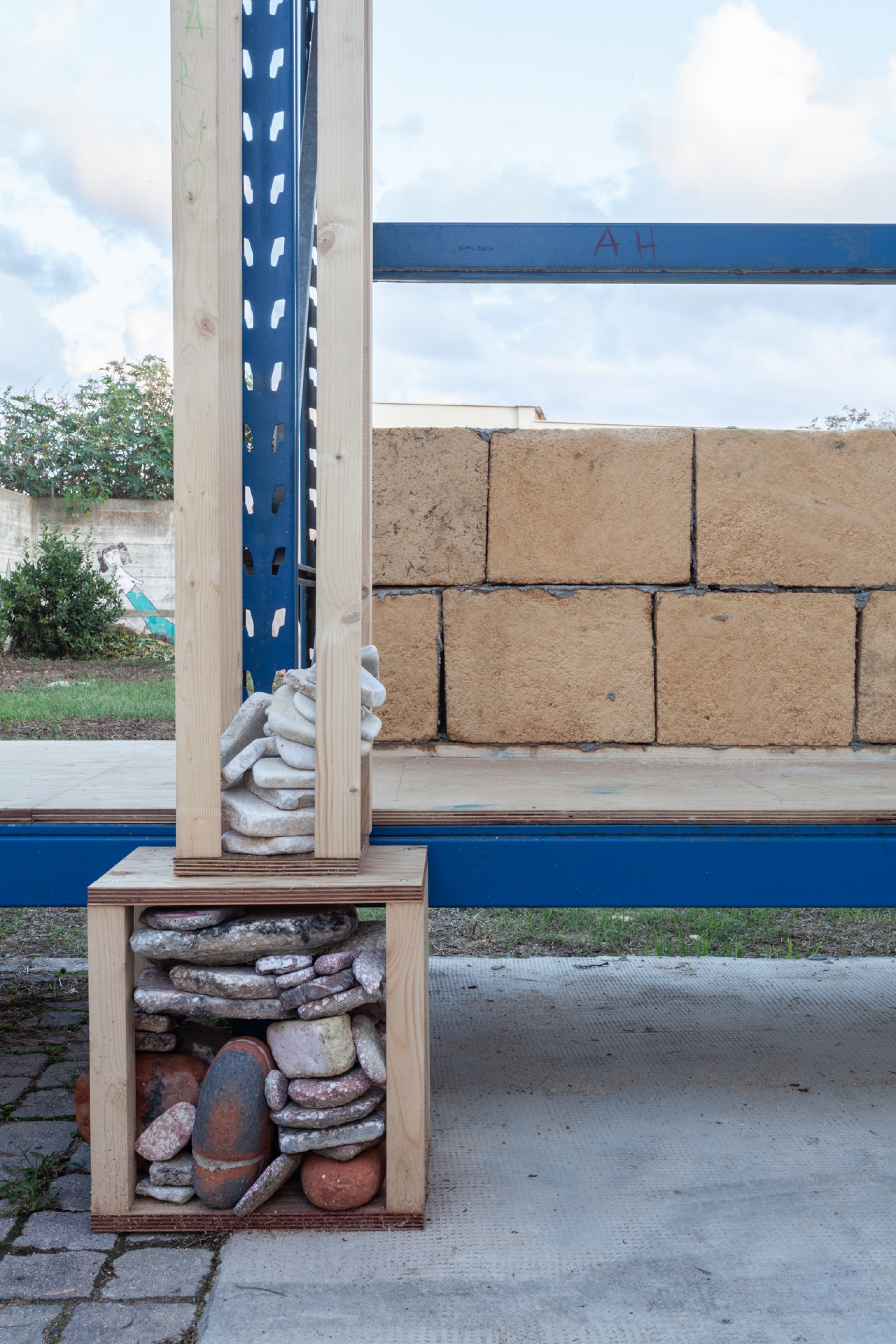
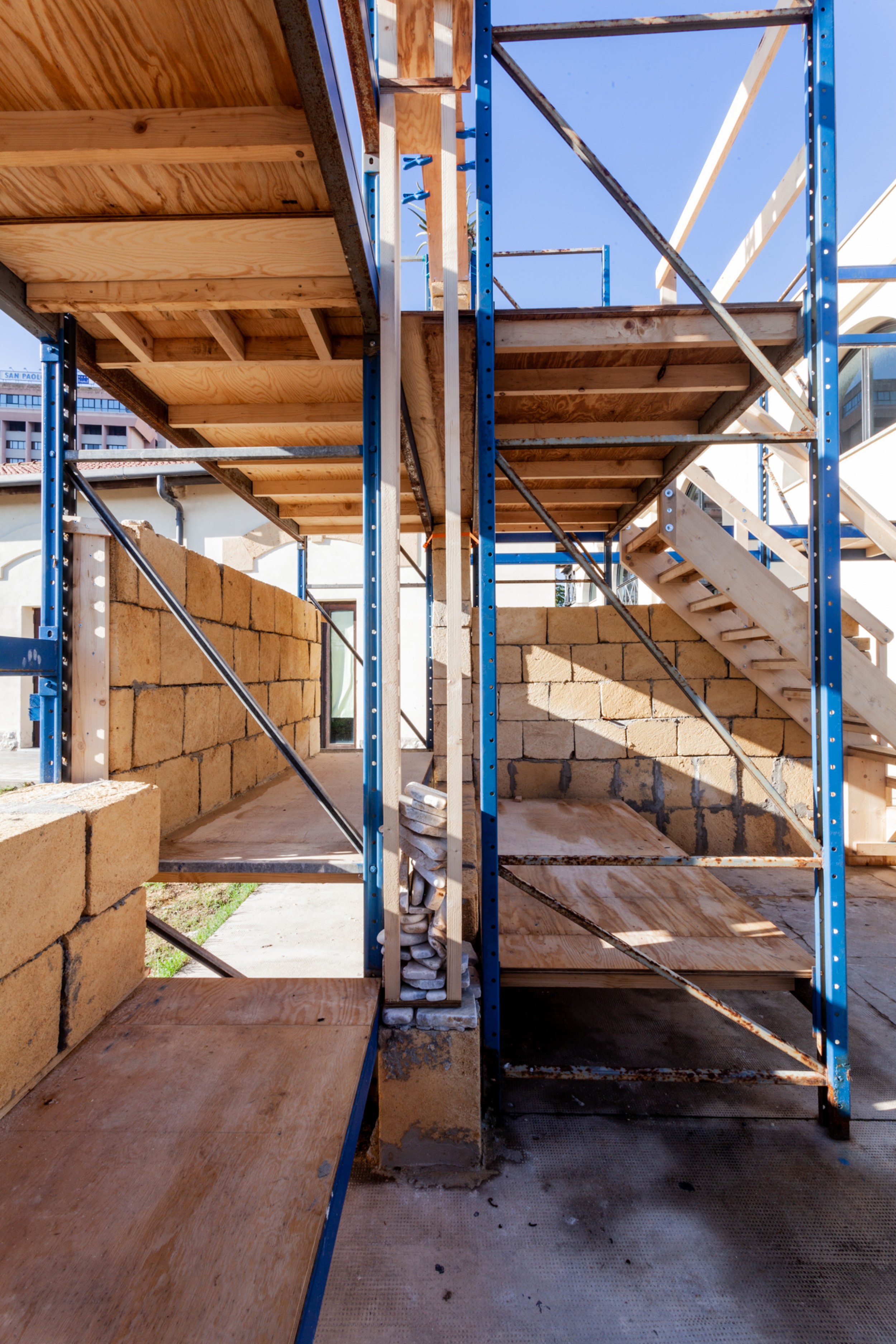

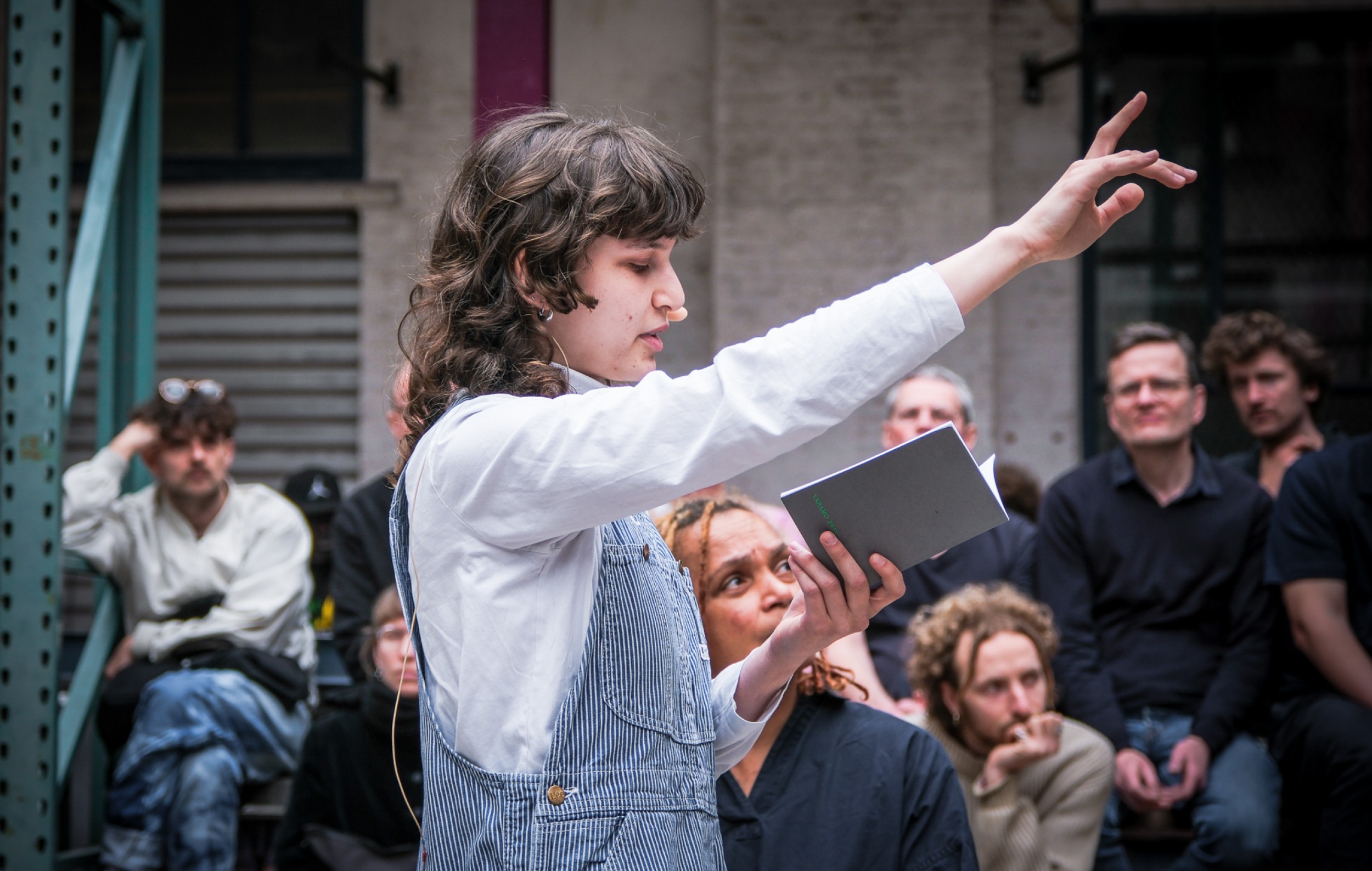



‘Standing on the empty construction site of a future performance hall, the 'Olevodroom' is a reconfiguration of a cycling track that occupied the site since 2021. We were commissioned by the City of Leuven and arts centre 30CC to build something that would bridge past and future. From the velodrome, we repurposed all the wood without cutting any boards, challenging ourselves to find a new shape within an existing one. Pallet racks, reclaimed from an old warehouse and painted in bright colours, were inserted as a support structure that allows the curves of the velodrome to bend and swirl freely, seeking a new shape that invites and shelters. During the construction of the Olevodroom, as in a life-size scale model, we decided intuitively which side should be open or closed, building a careful balance between being seen and being sheltered.
The fact that we built the Olevodroom in Leuven made it a personal journey as well, evoking memories from the city Menno and I grew up in. One kept coming back: the story of Olivio Versluys, the boy who, fourteen years ago, climbed the facade of the university library and fell to his death. The story of ‘Olijf’, as his friends still call him, lingers throughout the design. It inspired us to build a meeting place for youngsters to get together, to hang and to flirt. We tried to turn the memory of Olivio into an active memorial that also raises questions. How much support do youngsters need? How much institutionalisation is necessary? By dedicating the Olevodroom to Olivio, we want to help the city of Leuven to acknowledge that youth culture will always exist mainly in the margins and in the grey zone of what is considered legal and safe.
As a training space for parkour and hip hop, the Olevodroom offers grip to climb, to dance and to be seen, but - even more crucial - to be out of sight. We dedicate this construction to the energy of young people such as Olivio, who, generation after generation, search for space where they can do their thing, fearless, and sometimes reckless. They are the guides who show us that there is space between the rules.' - Jozef Wouters
Design Jozef Wouters, Menno Vandevelde en Pol Matthé
Construction Haidar Alizada, Aron Boakye, Zoher Boumelha, Safwan foota, Lukas Geerens, Abdi karim Abdullahi haji, Pieter Hollants, Matyos Okubit, Jan Rymenants, Willem Rys, Koen Schetske, Chloé Tempelhof, Manish Thapa, Vic Van den Bossche, Menno Vandevelde, Siemen Van Gaubergen, Jozef Wouters, Remco Wuyts and many other helping hands
Coordination volunteers Rosalie Aerts en Jonas Tabala - vzw Erat
Internship Lieselot Clement en Fine Frateur 30CC
Project coordinator 30CC Anne Loeckx
Technical coordinator 30CC Gert De Cooman
Color advice Lila John
Structural engineering Pieter Pollemans
Commissioned by Stad Leuven, 30CC
With the support of Varcities, research- and innovation programme Horizon 2020 by the European Union






FLOW is a temporary public outdoor swimming pool in Anderlecht (Brussels). The project was initiated by POOL IS COOL and designed and built by Decoratelier Jozef Wouters in collaboration with various partners. Envisioned as a fiction, a temporary phantasm, a dream made of water, FLOW opened on July 1st, 2021 with the ambition of becoming a radically inclusive and sustainable leisure space. FLOW was built together with a large group of youth from the neighbourhood, who contributed not only their hands to the construction work but also their voices to discussions about access to public space and privatisation. Local youth continue to be involved in running the pool. Serving both as an example and a provocation, FLOW aims to convince authorities to invest in permanent projects while already offering a real, albeit small, safe and inclusive place to enjoy outdoor swimming. More information via www.pooliscool.org and www.flow.brussels.
A project by POOL IS COOL in collaboration with Decoratelier, Art2Work, FIX, Ecoworks en Speculoos + Variable, with cultural programs by Kunstenfestivaldesarts, Zinnema and Cinema Galeries.
Designed by Jozef Wouters in collaboration with Mathias Claes, Paul Steinbruck and Menno Vandevelde
Built by Decoratelier with Bilal Oulkadi, Memet Ramadanov, Adil Khajjou, Mélanie Musisi, Cissé Ibrahima, Elias Sahili, Houssame Oulad Hamdane, Zakaria Azaoum, Youssef Bouchouari, Nawfal Belarbi, Mehdi Yahyaoui, Ifrah Yussuf Magan, Abdelillah Zaid, Mohamed Yaroum, Mhamed Amaruch, Barry Mamadou Lamarana, Willem Rys, Yassine Azool, Maria Nzanga, Mohamed-Amine Badda, Nadir Hamidou, Ayoub Lefkir, Camille Thiry, Mohamed El Fassi, Ismail Chikri, Naufal Ahchouch, Youness Hoj Johini, Ayoub Saidi, Saber Zerrerki, Mbarek Bouallaga, Ben Mohamed Saïd, Rayan Dardiki, Issam Oulad Haj Amar, Ayoub El Yabouhi, Alhassan Bah, Michiel Soete, Rayan Dardour, Ismael Akhbouch, Younes Charkaoui, Théo Dellicour, Ezra Fieremans, Ali Badr Debra, Naomi Quashie, Bilel Tsabet, Astrid, Hamza Riahi, Imad Borji, Vic Van den Bossche, Ibrahim Ben Mokkadem, Safouane Lamquallakh, David Ademola Ogundana

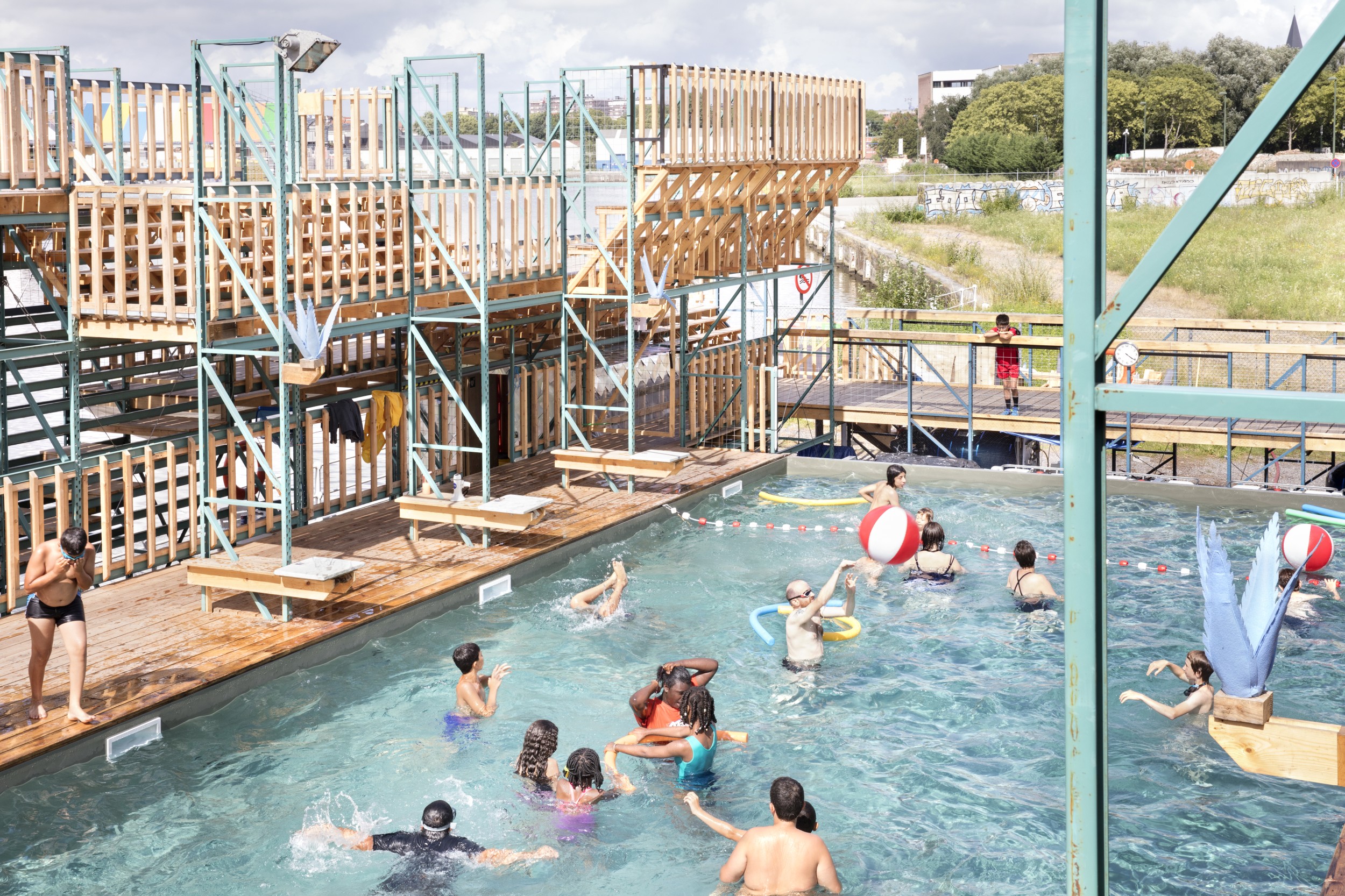
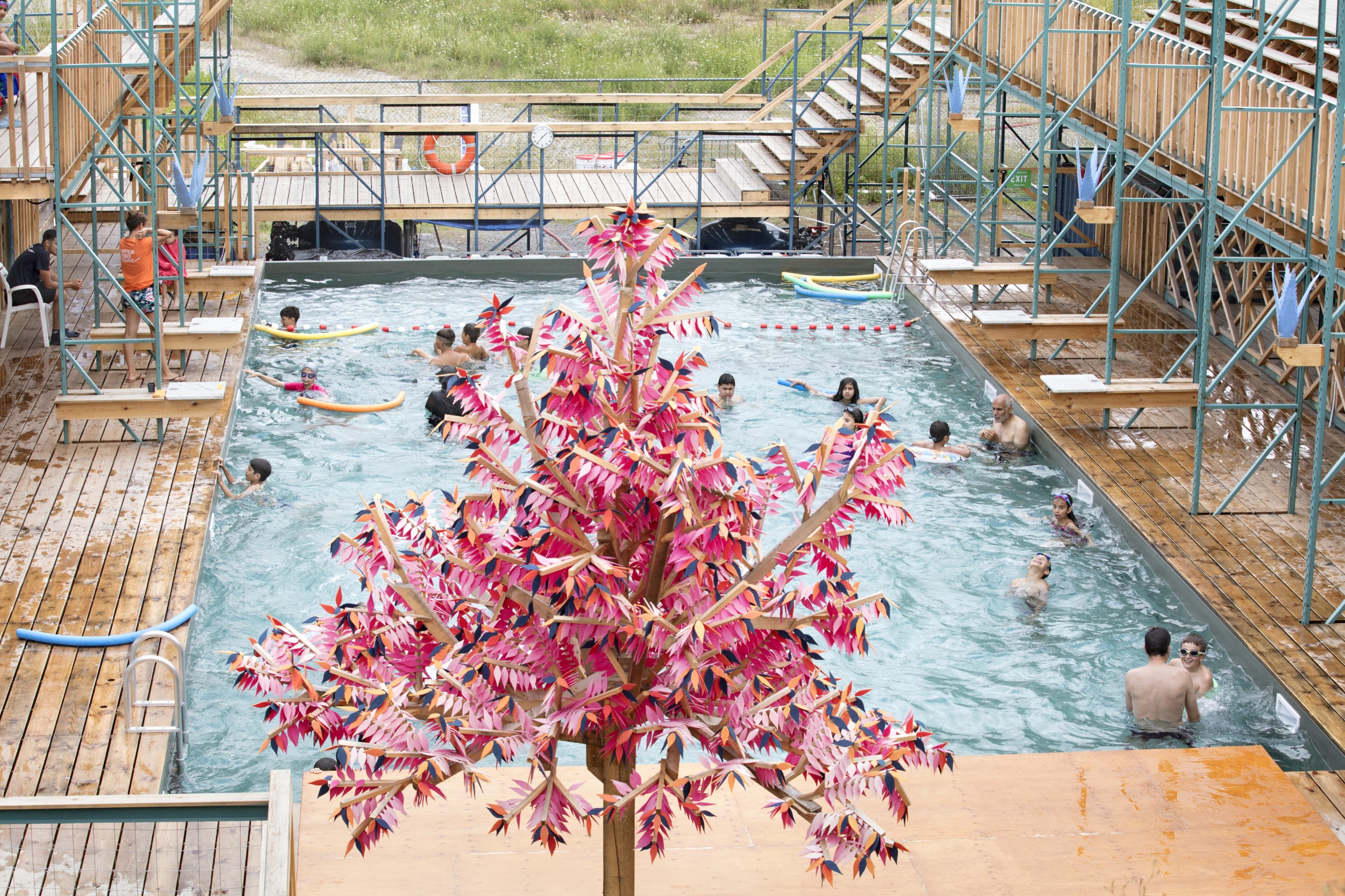
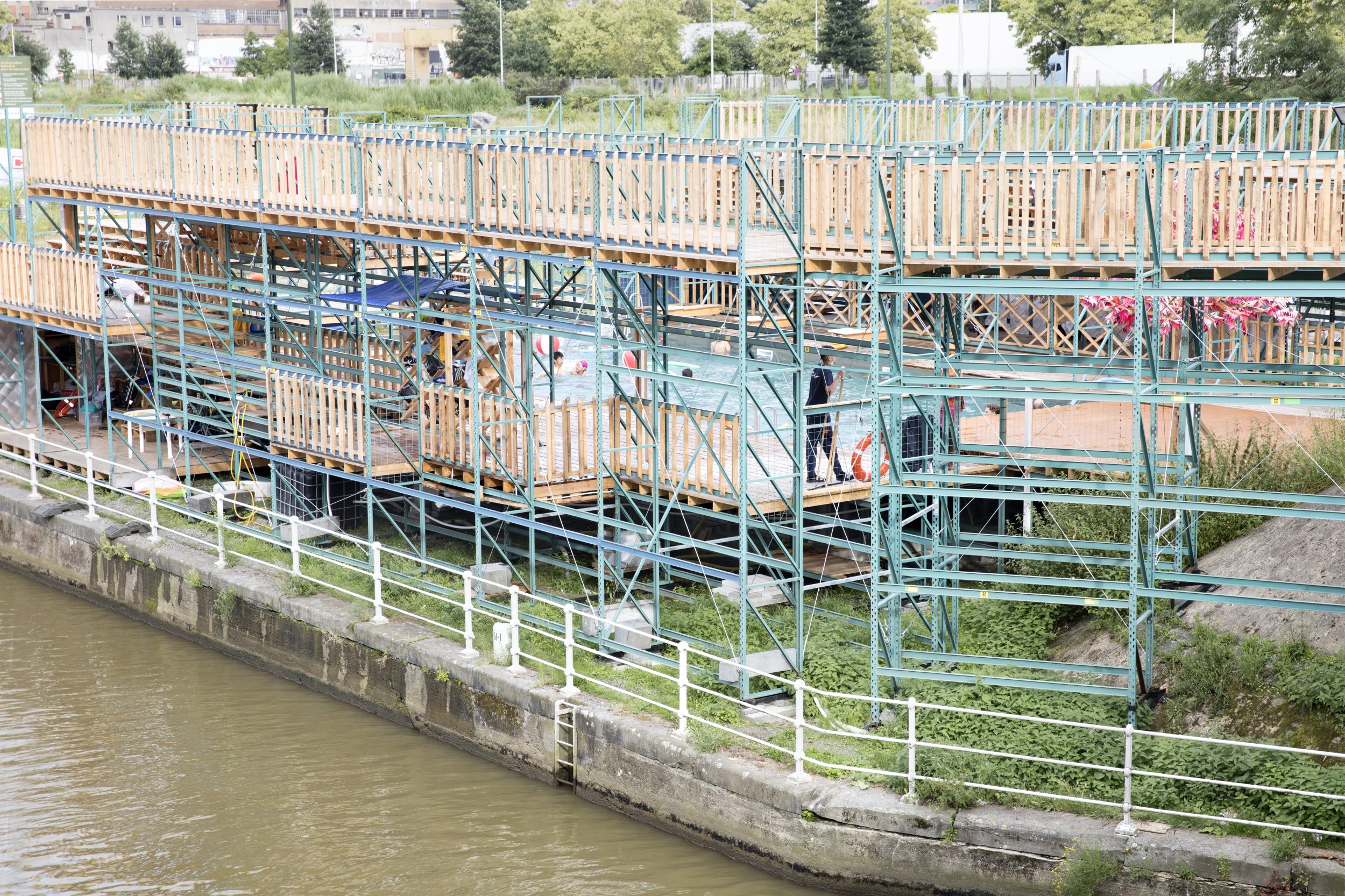
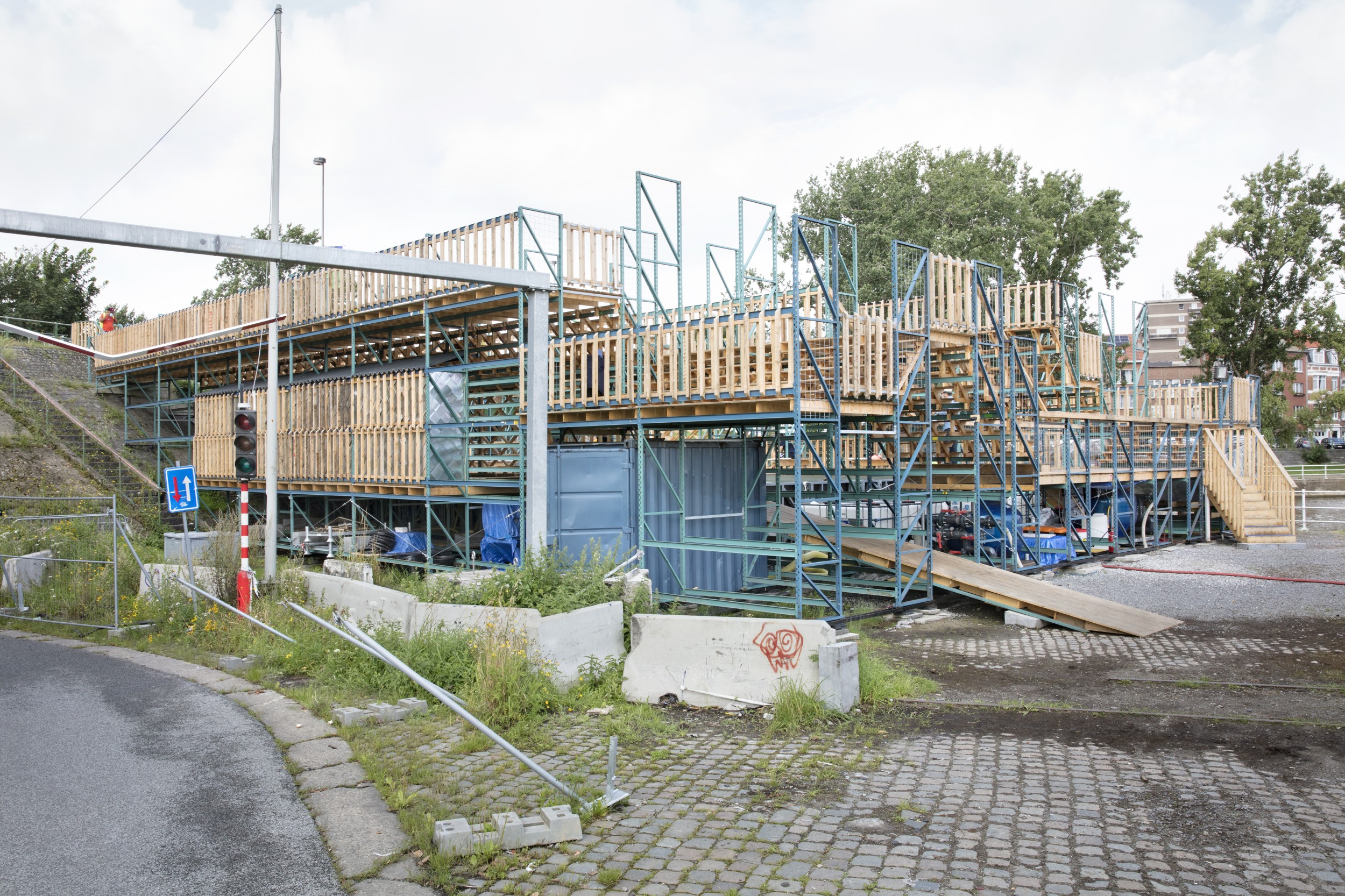
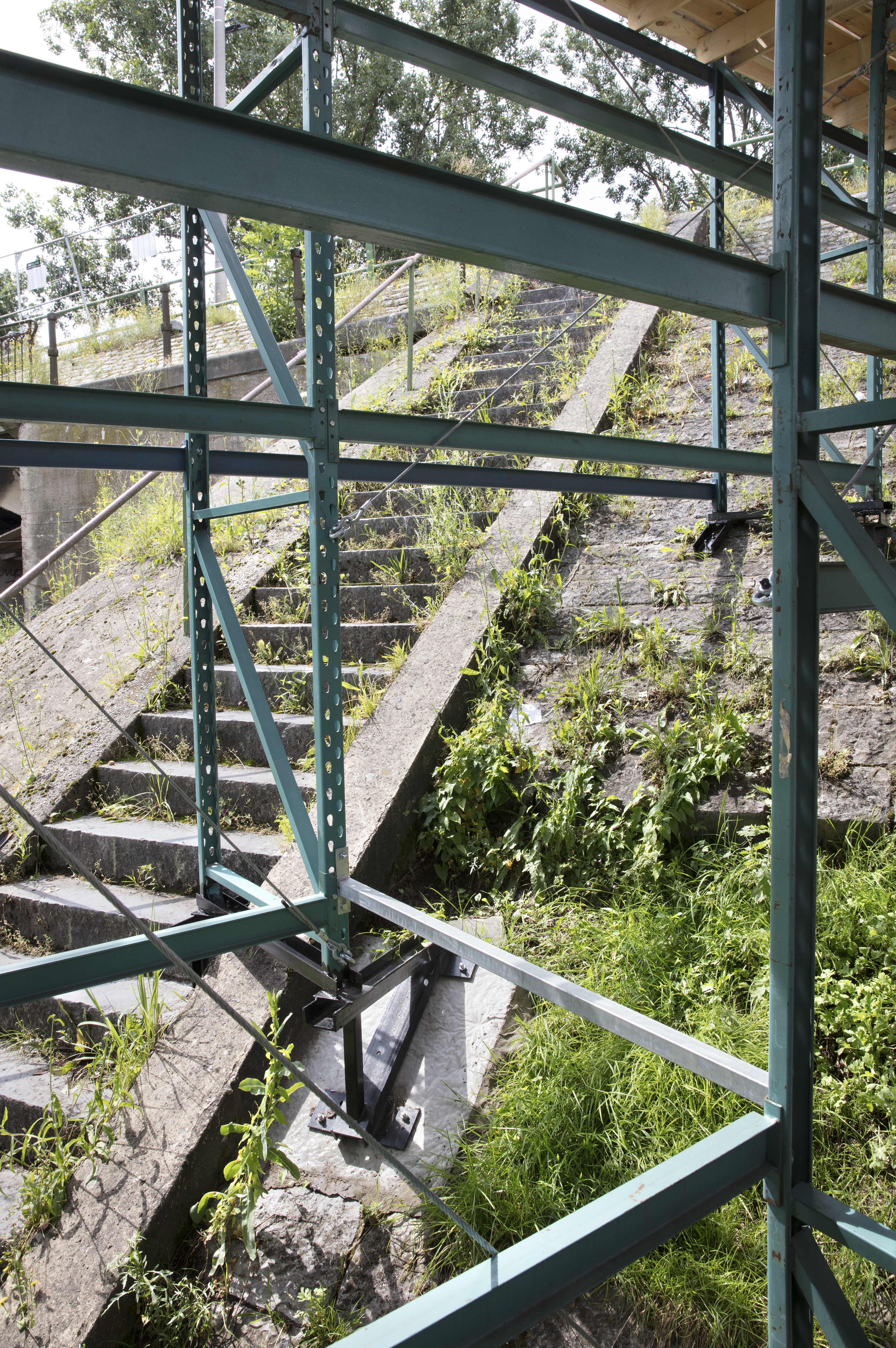
Night Shift is an endless swirl of interventions and experiments, allowing each action to leave behind a unique trace and stimulating crossovers to trigger the unexpected. For this edition Gouvernement and close collaborator Decoratelier invite an unlikely assemblage of artists to head to the seaside and construct a space to research, share and show generously.
After the previous Night Shift is now landing in an unusual time and space: the summer in Oostende. During three days, on the 26, 27 and 28th of July, artists will present their work in and around the youth-center OHK.
Preceding the days of public showings, intense research periods on location will allow the artists to connect to each other & their surroundings. Each bringing their own practices, interests, questions and visions to the seaside. Out of the comfort zone of the regular season and the usual infrastructures, artists will look for different ways of working and sharing. As part of an always-shifting shared platform, artists will activate many spaces within structures of care and with the support of many.
Practical Info
26, 27 and 28th of July 2022
From 18:00 to 00:00
In and around OHK
(Koninginnelaan 1, 8400 Oostende)
15€ & reduction price 7,5€
A project by
Gouvernement, Decoratelier, VIERNULVIER, De Studio, CAMPO, Toneelhuis, De Singel, OHK, KAAP, Theaterfestival, Perpodium & Theater Aan Zee
Supported by
The players of the National Lottery, the Flemish Government and the Tax Shelter of the Belgian Federal Government
Thanks to
Danspunt
Tickets
Order tickets here
Night Shift team
Nele Keukelier, Vincent Focquet, Marie Umuhoza, Deborah Van Haute, Michiel Soete, Lies Vanborm
Scenography
Decoratelier
Graphic design
Chloé D’hauwe
Illustration
Charlotte Peys

Decoratelier Jozef Wouters
INFINI is an ongoing research project by Decoratelier Jozef Wouters. It is driven by the desire to question the classical theatre machine and its perspectival sets. The project originated in 2016, when Wouters produced the performance INFINI 1-15 for the Royal Flemish Theatre in Brussels (KVS). Working with the team then associated with his Decoratelier, the key question he addressed was: “what spaces should we show in the theatre today?” Fourteen artists entered into a dialogue with Jozef Wouters and Decoratelier, and each conversation yielded an infini: a unique interpretation of the painted backdrops that are lowered with pulleys in a classical theatre to serve as a horizon for the imagination.
Today, INFINI is not so much a performance as a growing collection of sets, each one of which – and sometimes independently of the others – tells its own story.
The INFINI 1-15 publication is also an offshoot of the Infini project; a translation of scenographic space and image into word and layout. The book was presented in September 2017 at Wouters’ Decoratelier, when all fifteen infinis were reassembled for the occasion.
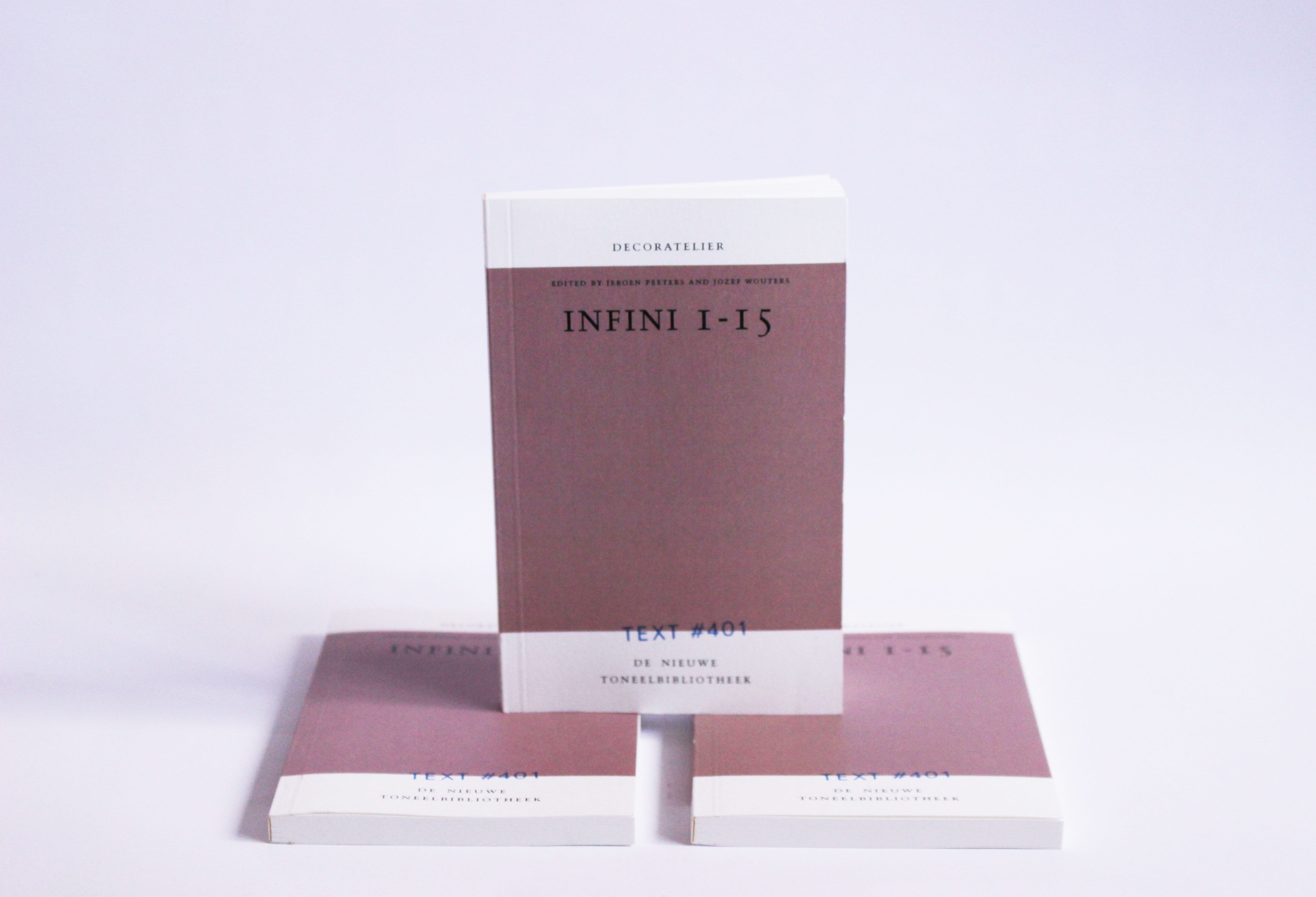
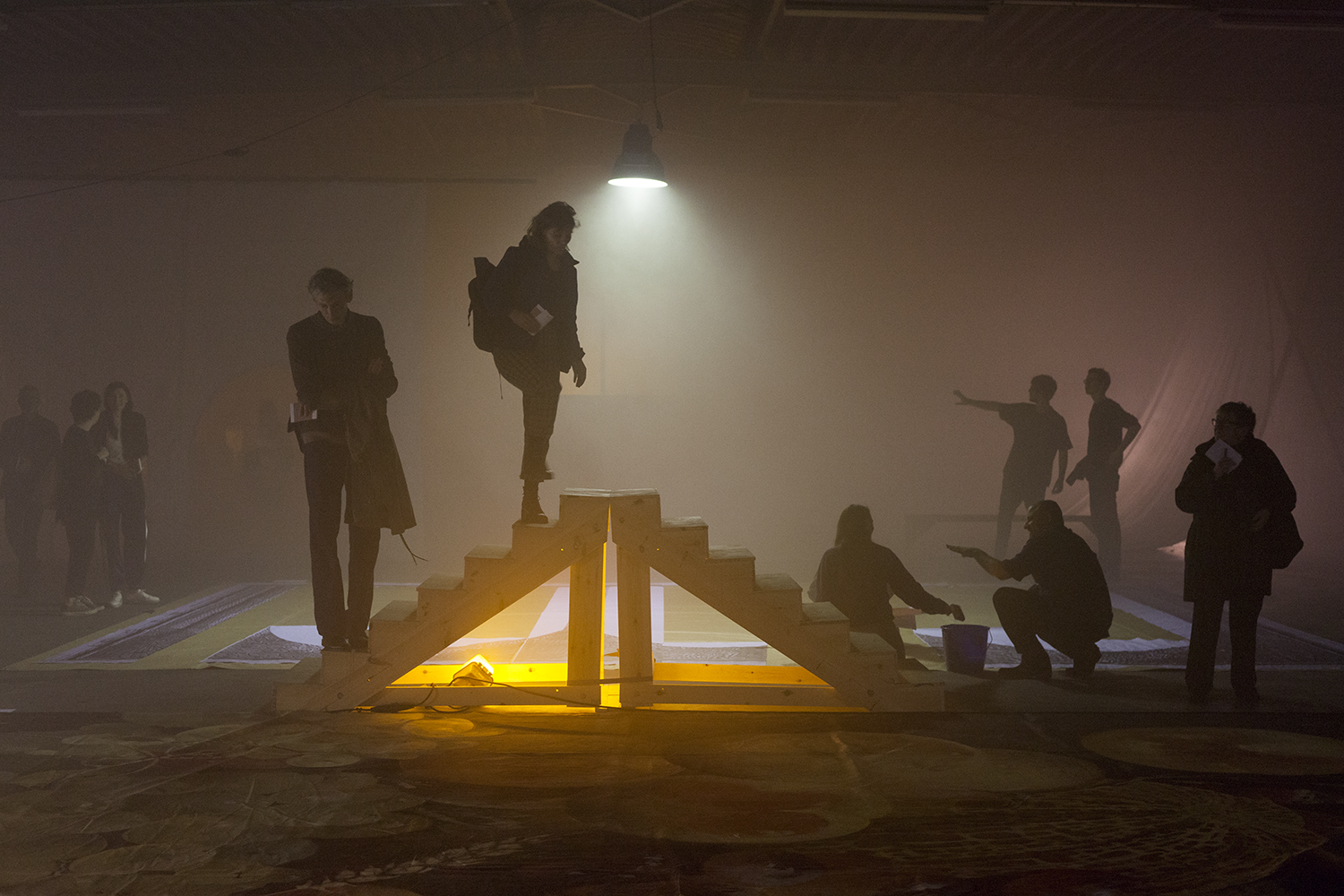
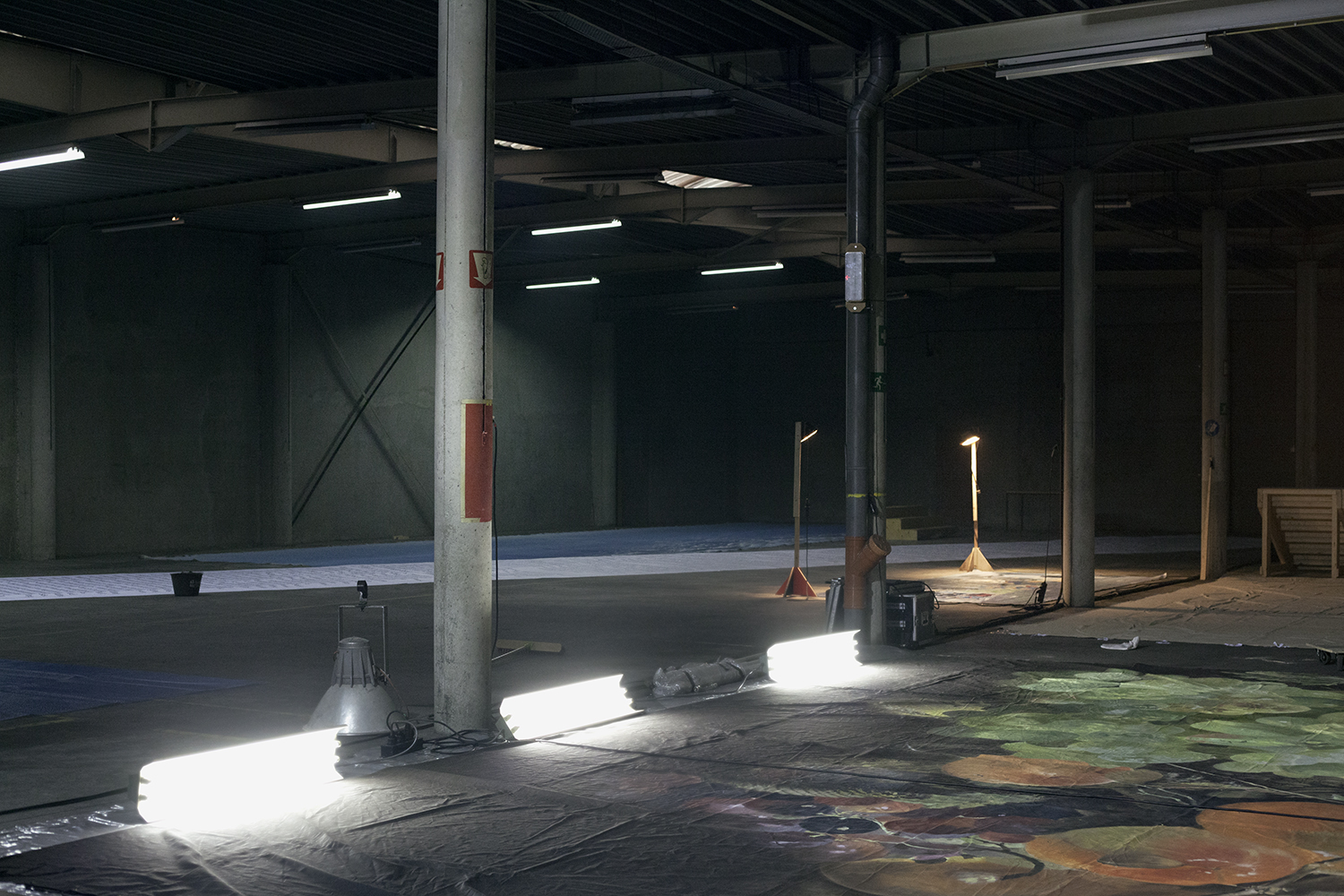
Rimah Jabr & Decoratelier Jozef Wouters
Dear Rimah,
Because we might not have the time to talk (about art) tonight, I have decided to write you a letter. I’d like to ask you the questions that came to mind when thinking about tunnels and endlessness – the two topics that I remember from our brief conversation at the Decoratelier in Brussels. I’m curious as to why the space of a tunnel is important to you. What is it about tunnels that turns them into an environment for a story, like the one you told me, about people being stuck?
Jozef Wouters, Nablus, August 14
Scenographer Jozef Wouters wrote a letter to the Palestinian playwright and director Rimah Jabr. What kind of space or landscape would she like to be represented on stage? Which space should Decoratelier construct for her? Their correspondence began with pictures of the tunnels under the Gaza wall. Later, these images were transformed into wood, canvas and paint. The final set, in combination with a letter from Rimah Jabr, results in a sharp and imaginative observation of a situation that can only be expressed in its absurdity.
Infini #5 was created as part of Infini 1-15, the Decoratelier performance in which fifteen artists considered which space or landscape they would like to see represented in a theatre today.
text Rimah Jabr / scenography Jozef Wouters / dramaturgy Jeroen Peeters / light Ken Hioco / technical direction Menno Vandevelde / production manager Celine van der Poel / decoratelier Ryma Merghoub, Stijn Maes, Tim Vanhentenryck / production Decoratelier Jozef Wouters, Damaged Goods (Brussels) / thanks to Dries Douibi, Bruno Forment, Ine Craenhals, Chris Keulemans and KVS (Brussels)

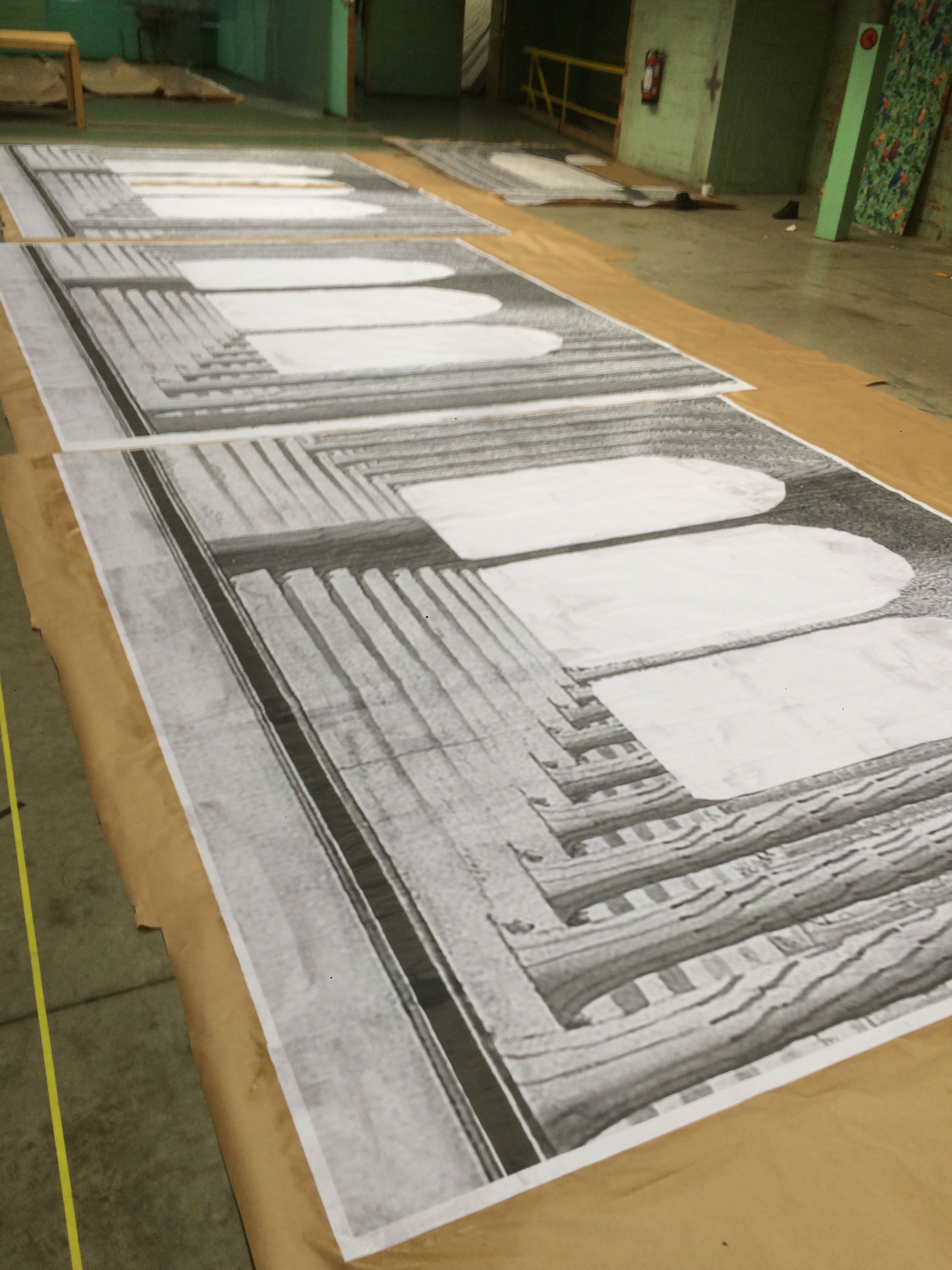
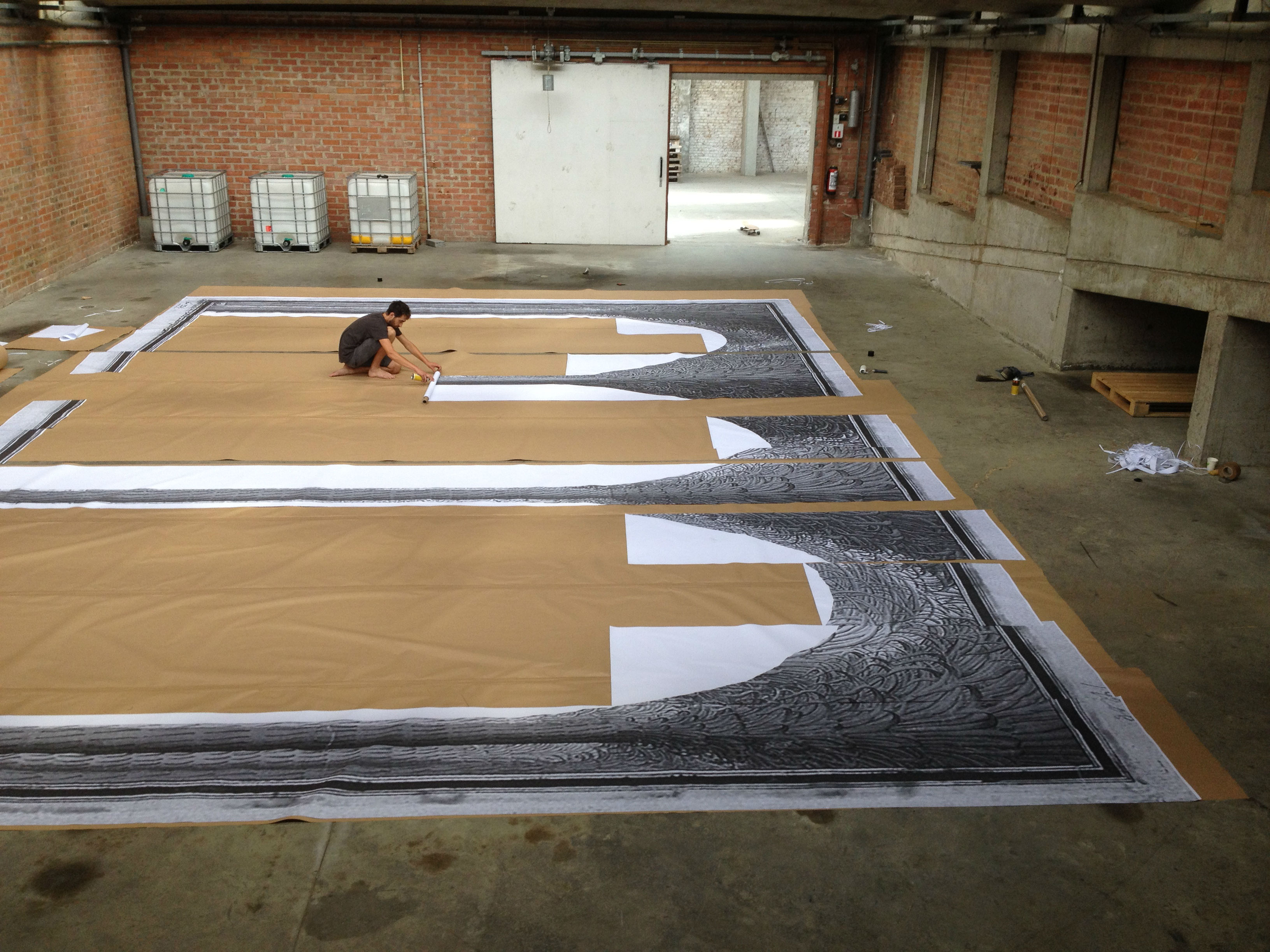
Globe Aroma & Decoratelier Jozef Wouters
“One day, a large banner suddenly appeared on the facade of the Decoratelier, showing a virtual vision of what the neighbourhood might look like in the future. The atelier and its surroundings had been replaced by a large park. That same day, I met a group of people from Globe Aroma and we decided to dig a hole towards this future park that, right now, is still an old factory. In the enormous void we taught each other to build out loud: a form of construction in which there is no difference between speaking, dreaming and building. Gradually an alternative park took shape, a park where memories and imagination intermingle, a secret garden filled with shadows and a jumble of grey zones. As yet I understand little of it, but it seems to be a place where people can decide for themselves whether or not to be visible or invisible, and this in the heart of the city.” (Jozef Wouters)
For a year, Decoratelier Jozef Wouters worked with Open Arts House Globe Aroma on Underneath Which Rivers Flow. A group of women and men – builders, poets and dreamers – met weekly in the Decoratelier in Molenbeek. Together, they built stories, a secret garden full of wormholes to unsuspected worlds.
Read a text by Guy Gypens about the broader context of the project here.
Watch an interview with Bushra Lamsyeh and Jozef Wouters here below.
CREDITS
Underneath Which Rivers Flow
A project by Globe Aroma & Decoratelier Jozef Wouters
Building Poets Barry Ahmad Talib, Ali Alkrizi, Mimouna Amri, Mbarek Bouallaga, Zohir Boumelha, Sekou Coumbassa, Chantal Gyselinx, Idris Hassan Hardi, George Khuroshvili, Bushra Lamsyeh, Soumaya Mahroug, Shilemeza Prins, Randy Renders, Marie-Ange Sibi, Ifrah Yusuf Magan, Tahar Zadam
Artistic direction Jozef Wouters
Artistic collaborator Jeroen Peeters
Dramaturgy Vladimir Miller
Decoratelier Menno Vandevelde (technical director), Lukas Geerens, Jan Rymenants, Willem Rys, Koen Schetske, Vic Van den Bossche, Siemen Van Gaubergen, Casper van Overschee
Film Robbrecht Desmet
Light Michiel Soete
Sound in collaboration with Vincent Malstaf
Production management Penelope Desloovere, Brecht Theunis, Camille Thiry, Ewoud Vermote
Production Damaged Goods, Globe Aroma
Co-production Kaaitheater, Netwerk Aalst
Special thanks to Saïd Amrawu, Alex Cepile
Thanks to Thomas Collier, Wannes Cré, Philip Delbecque, Pieter Dumoulin, Marlies Jacques, Sirine Jen, Lila John, Sanae Khamlichi, Ferre Marnef, Hana Miletic, Kristof Vande Walle (M – Museum Leuven), Sarah Vanhee, Nathanael Van Hoecke, De Lork vzw, Gemeente Molenbeek, L’Escaut Architectures, WijkAntenne de Quartier
Part of the two-year collaboration between Netwerk Aalst and Jozef Wouters, within the framework of The Unreliable Protagonist-programme (2017-2019). For Netwerk Aalst, this project was managed by Els Silvrants-Barclay.

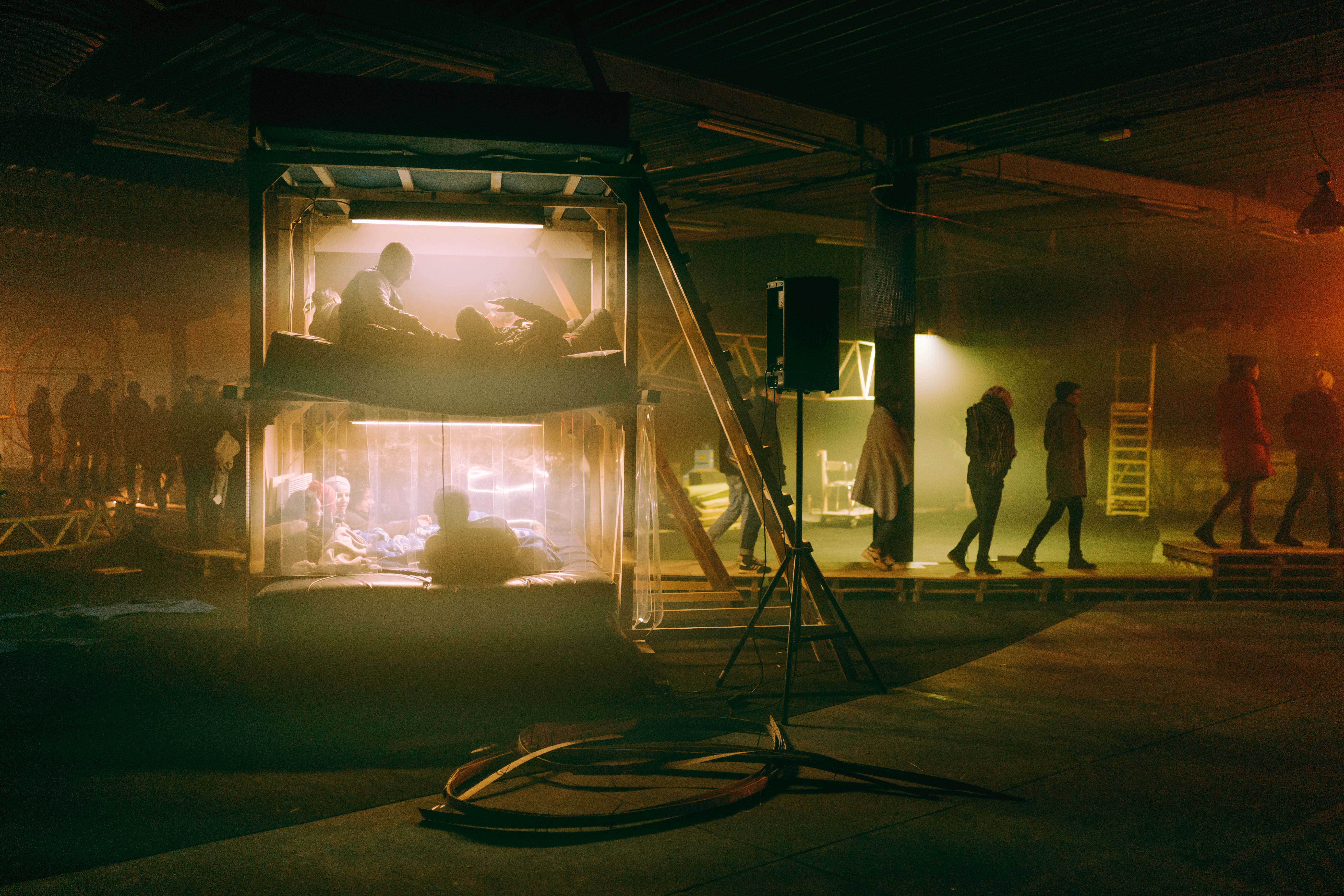
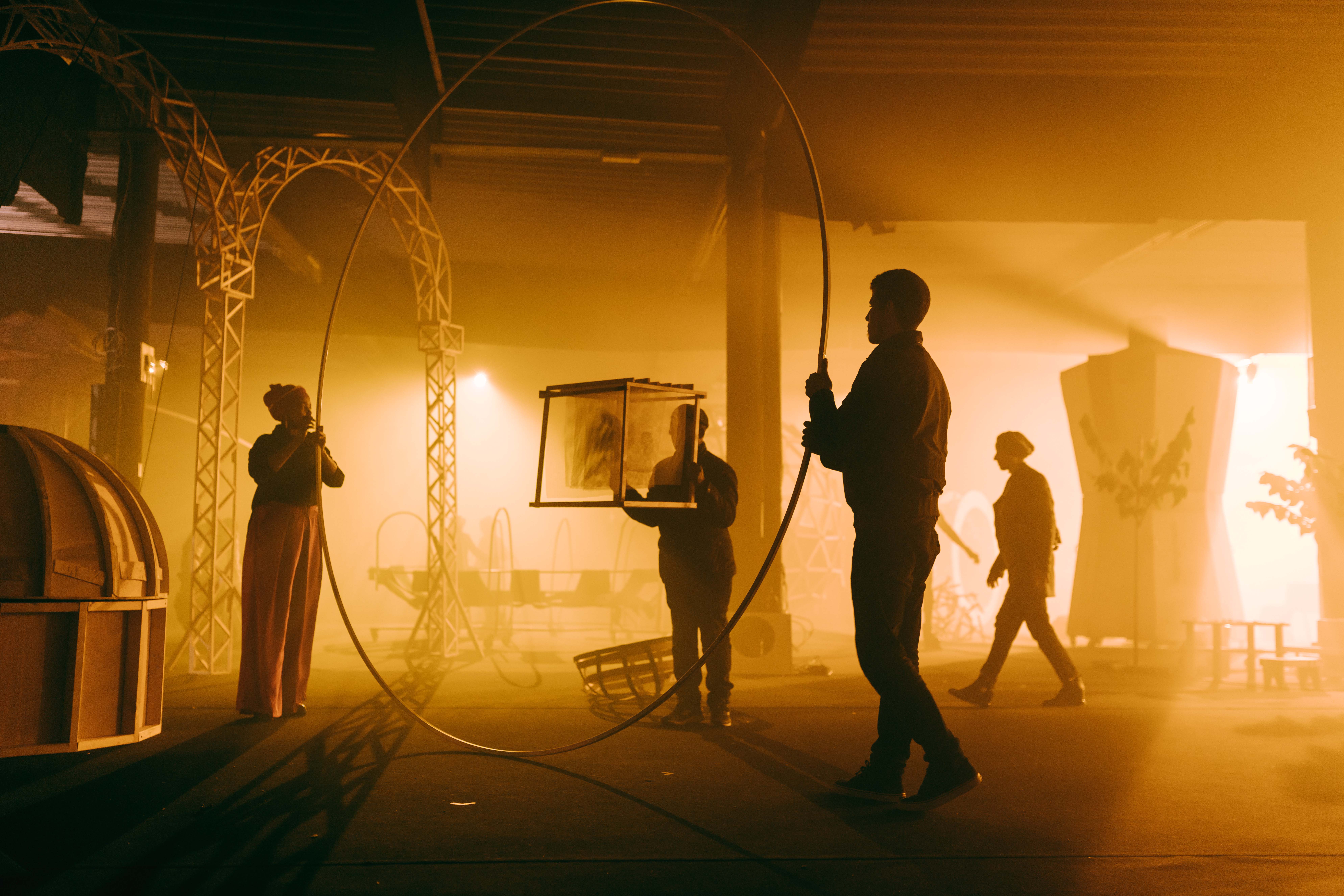
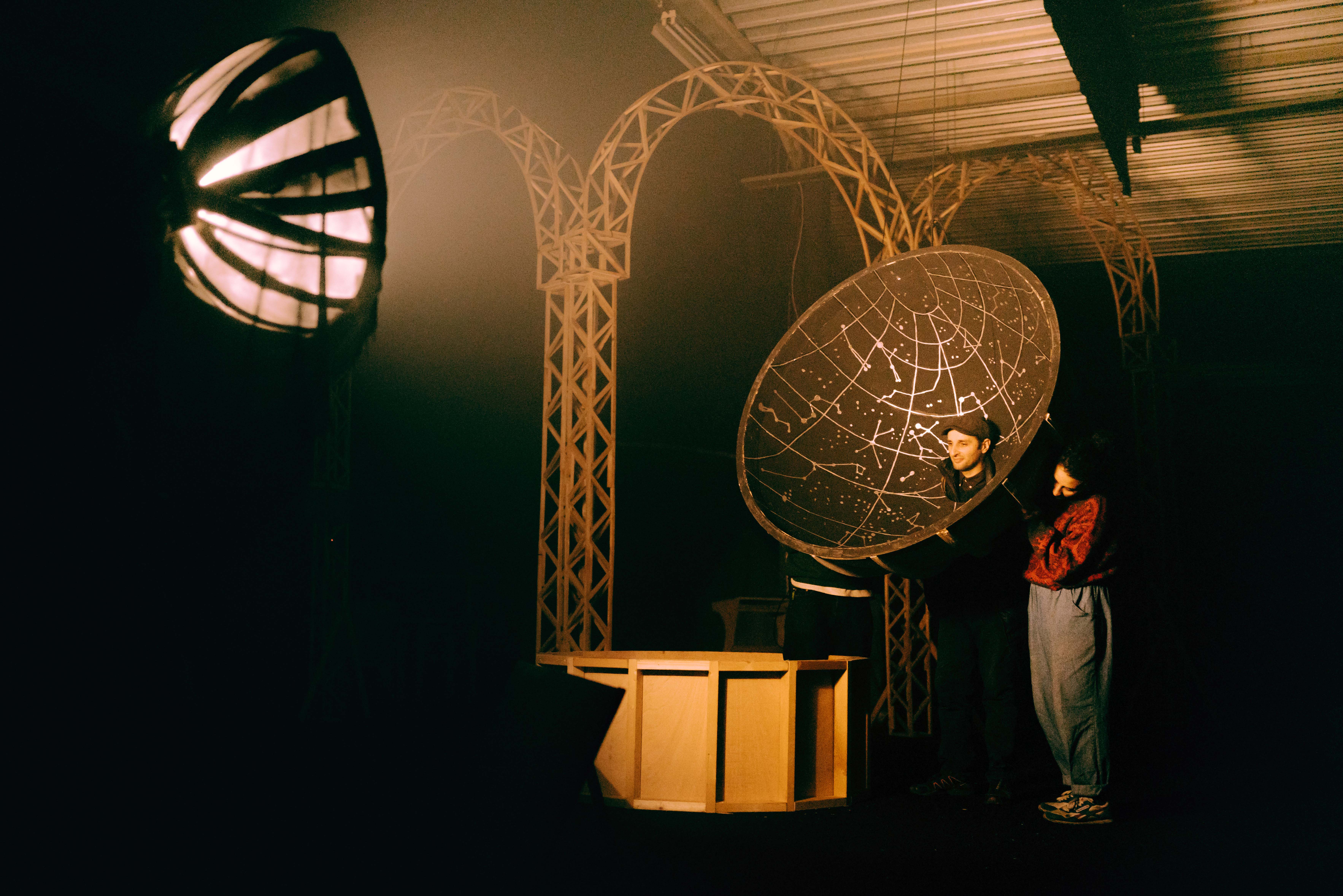
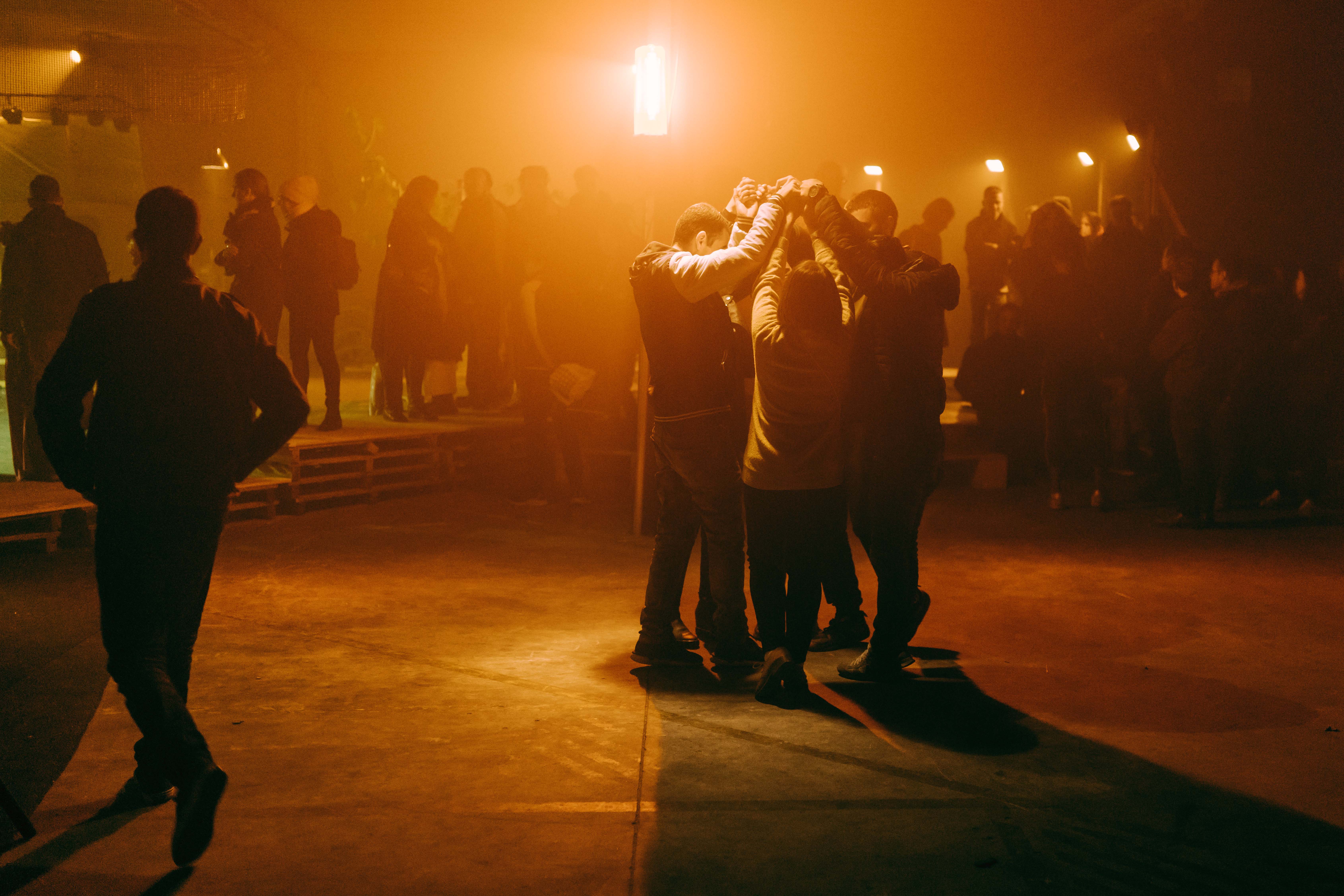
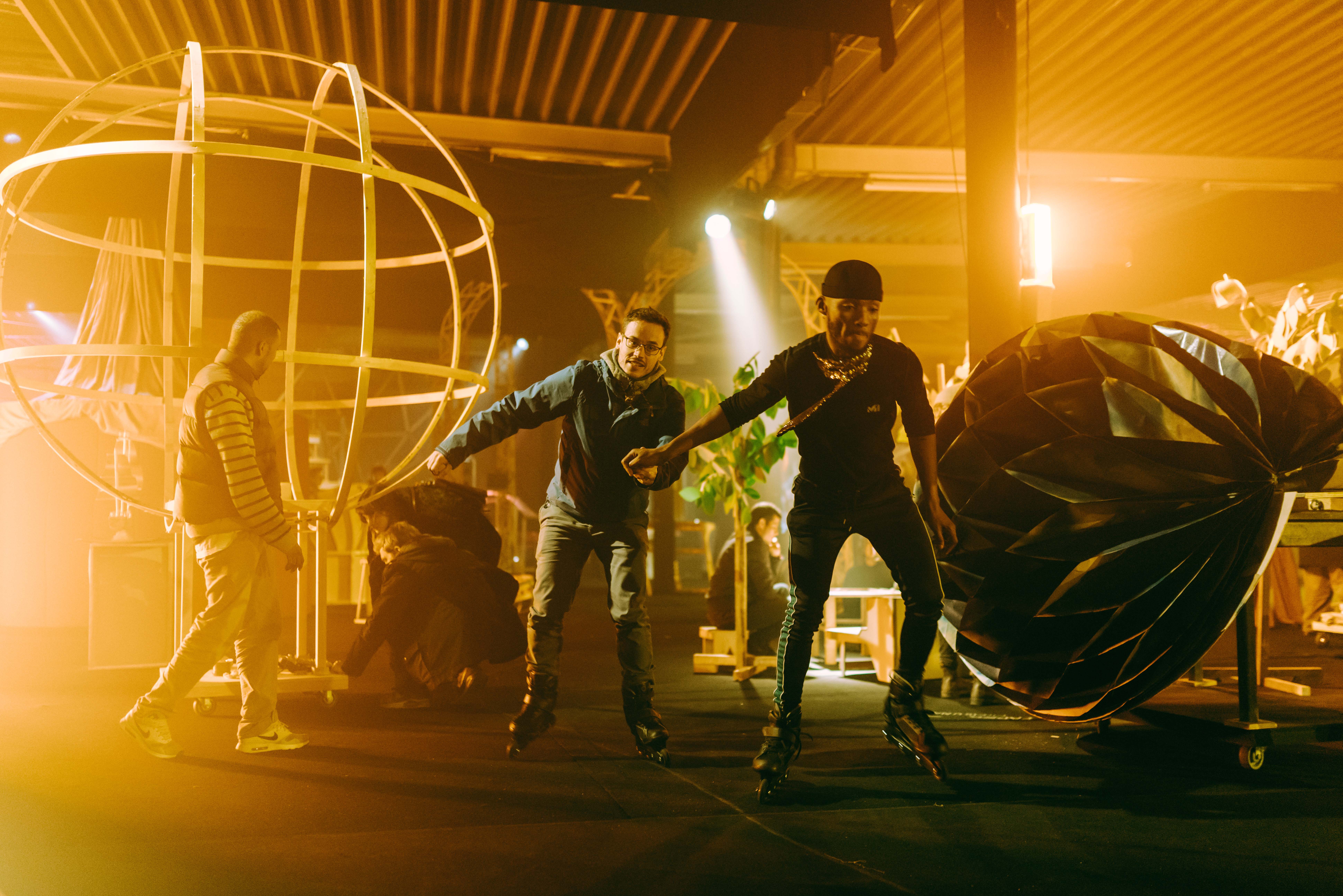
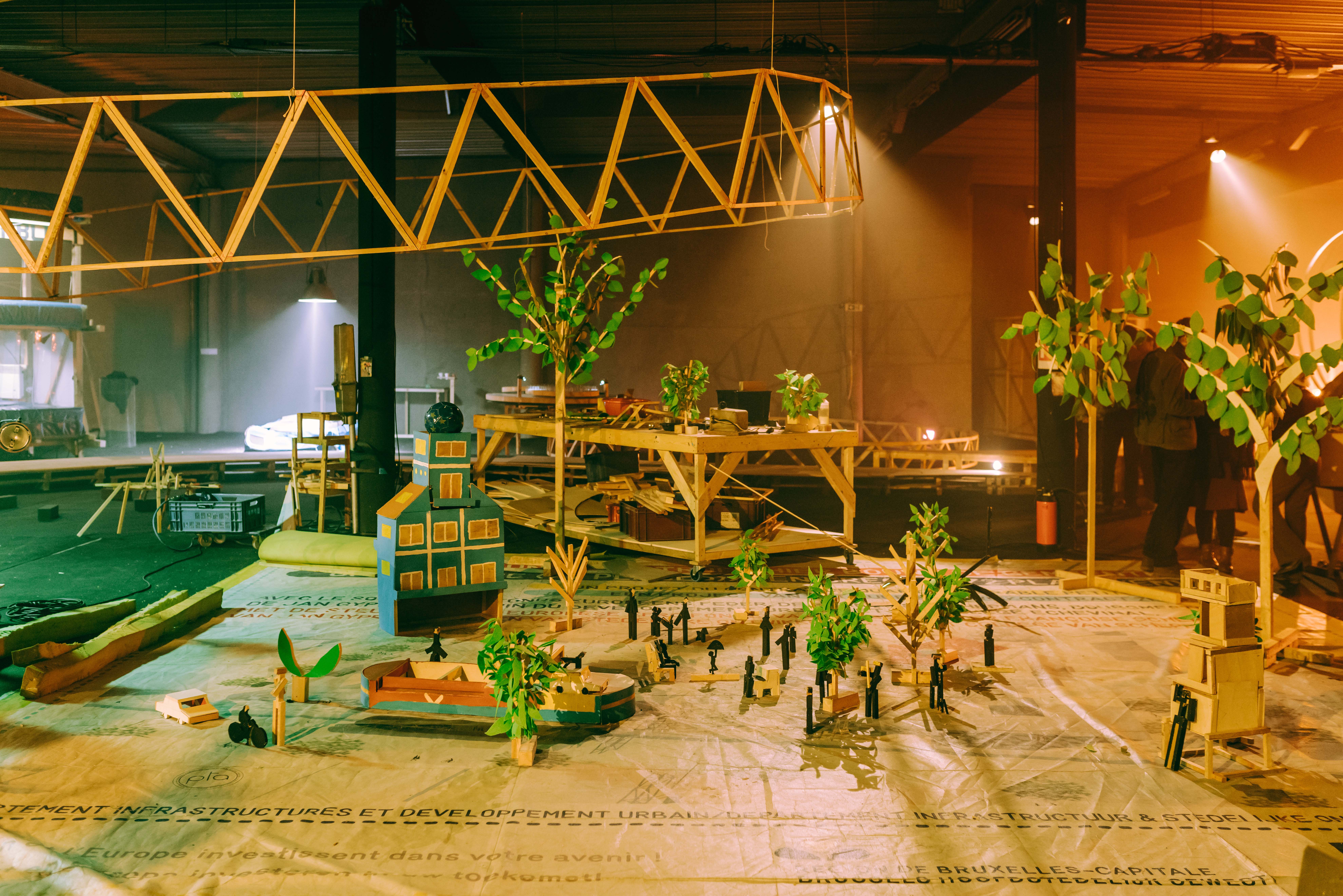
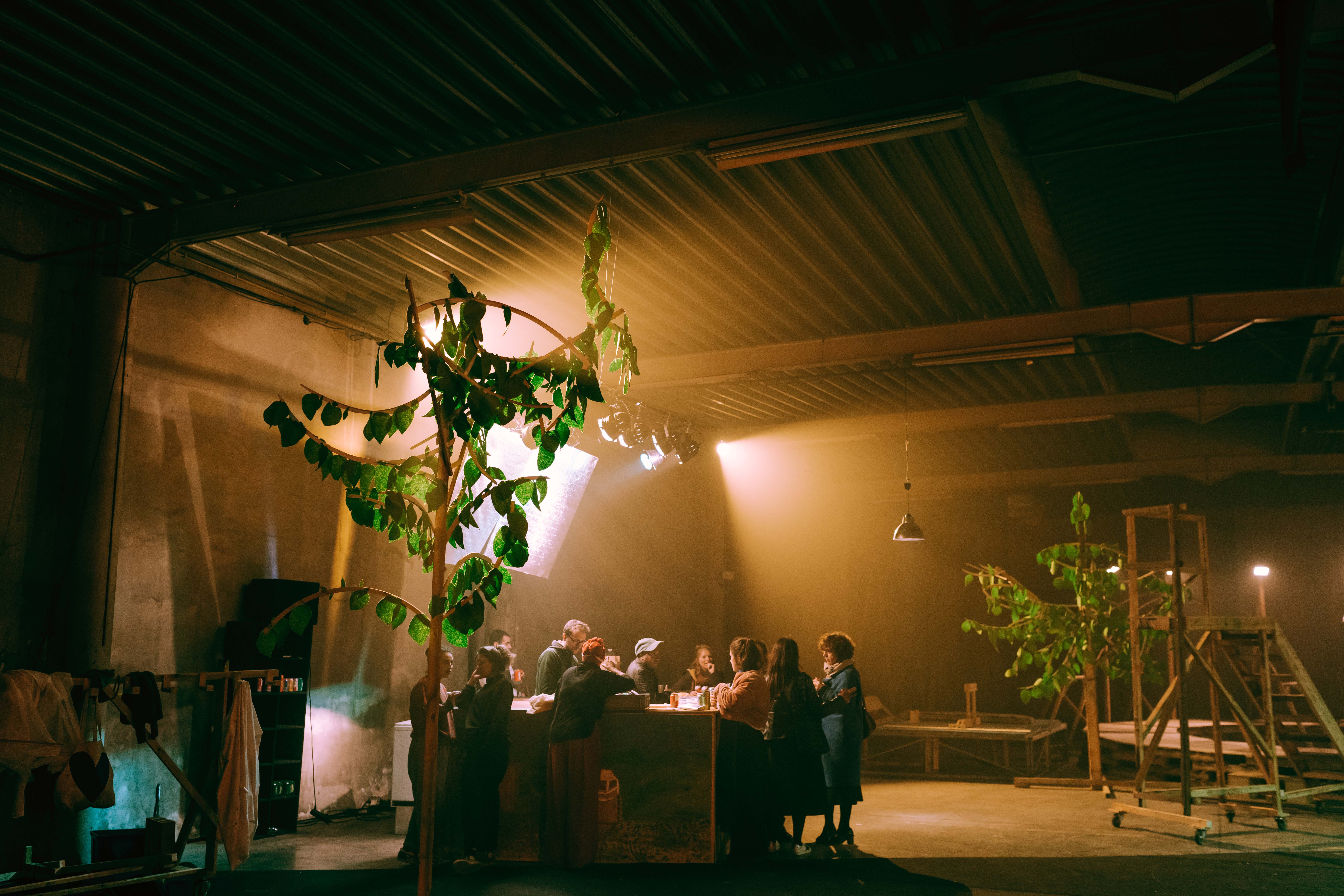
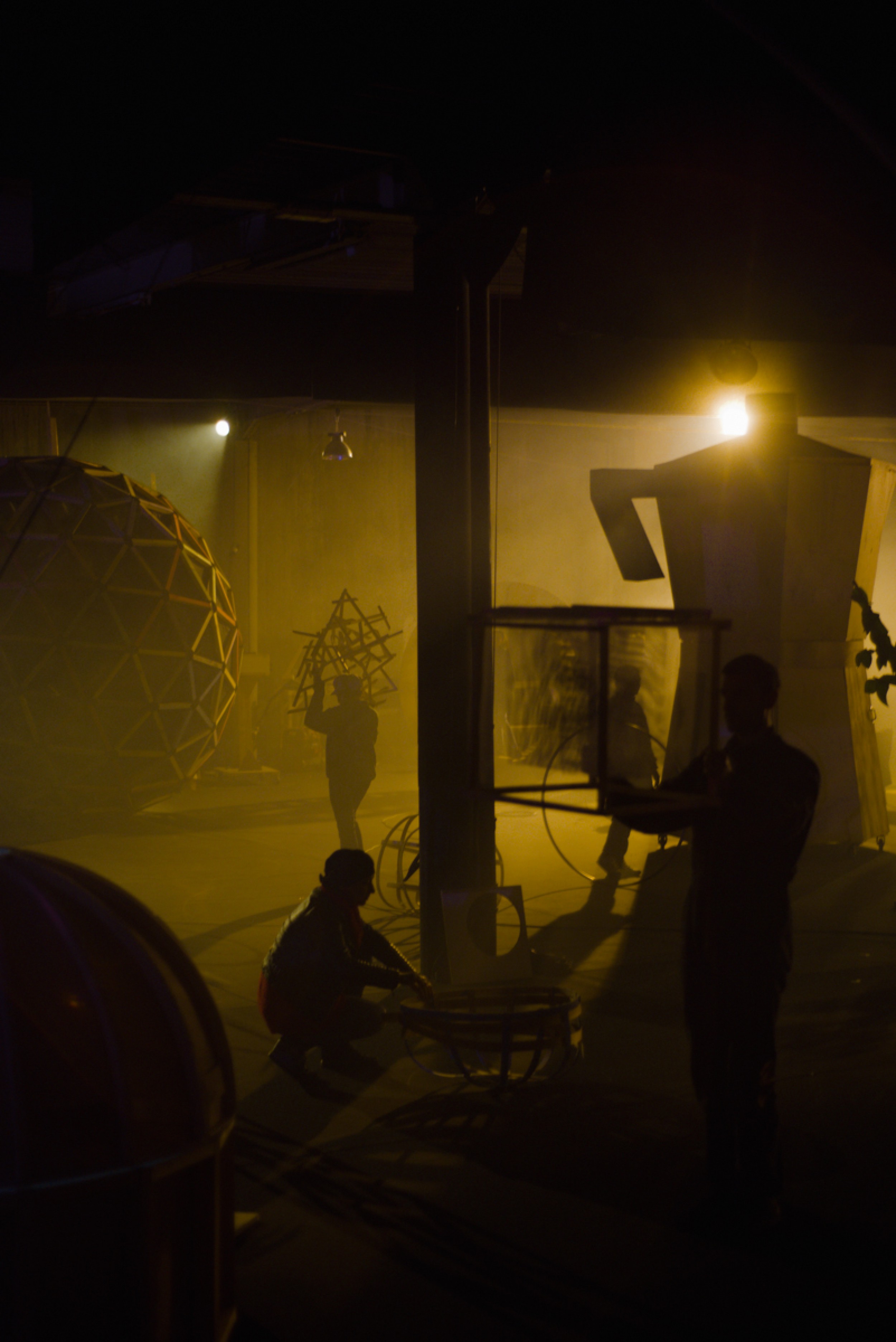
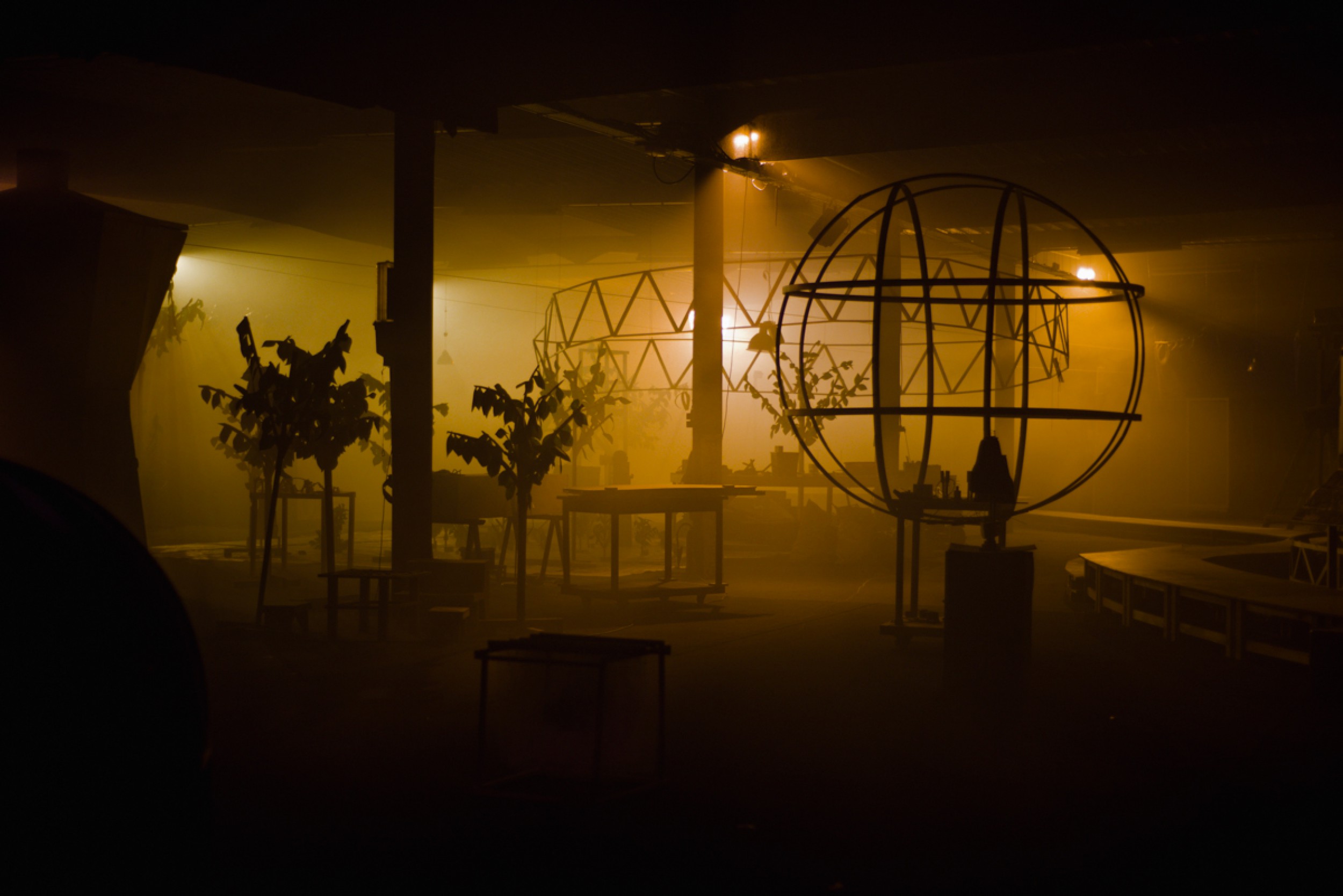
Decoratelier Jozef Wouters & Vladimir Miller
In response to an invitation from Dream City – the Tunis Biennial for Contemporary Art – Jozef Wouters took residence in the historic building of Dar Bairam Turki and asked the residents of the Medina which visions they had for it. One thing almost everyone seemed to agree on: the future of the Medina and of Dar Bairam Turki is a restored version of itself. But which version of the past should we select to be the new future and how do we make that choice? If the only imaginable future is the past, then where are we now?
Jozef Wouters and artistic collaborator Vladimir Miller gather these conflicting ideas around restoration in a process that adds layers to this building instead of peeling them off. Together with the Tunisian artists Amira Chebli, Hichem Chebli and Fatma Ben Saïdane this ephemeral Soft Layer will be performed in order to temporarily restore the collective histories, imaginations and visions that make up the nostalgic territory of architecture. If we keep adding layers, stories, copies and visions to it, will the courtyard one night expand and be able to hold the many versions of itself without bursting?
After its premiere in Tunis, the group will bring this ritual to other places, beginning with Vooruit in Ghent.
made with & performed by (nightshift) Fatma Ben Saïdane, Amira Chebli, Hichem Chebli, Vladimir Miller, Jozef Wouters (dayshift) Ahmed Ayari, Kais Ben Rejeb, Valérie Bikok, Manoubi Cherif, Emna Hamdi, Laila Missaoui I costumes Lila John I sound in collaboration with Milan Warmoeskerken I technical director Menno Vandevelde I technical assistants Aziz Romdhani & Syrine Chekili I production team Aisha Zaied, Selma Ben Gaied & Insaf Mejri I thanks to Jeroen Peeters I production Dream City Tunis, L’Art Rue, Damaged Goods I coproduction Arts Centre Vooruit

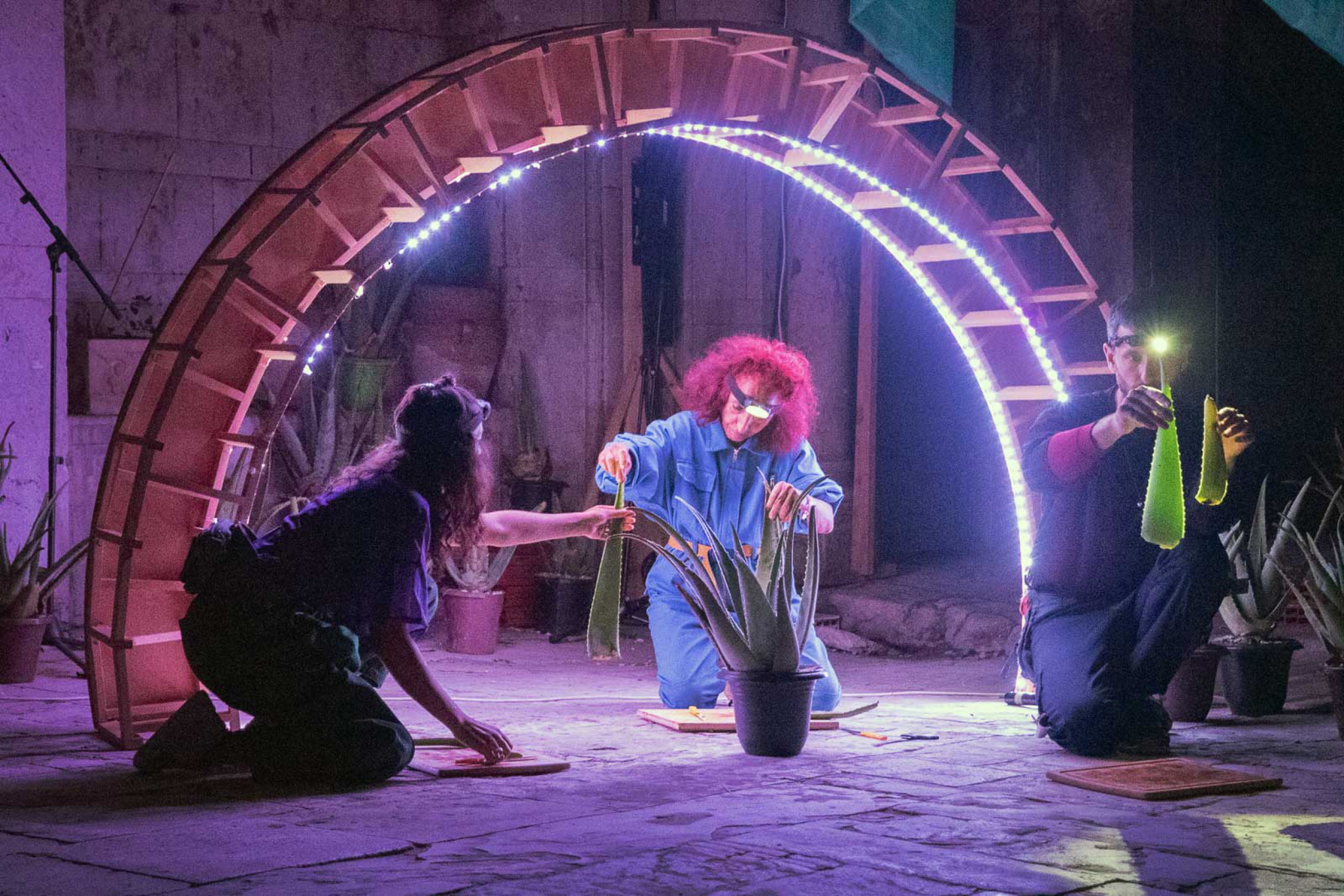
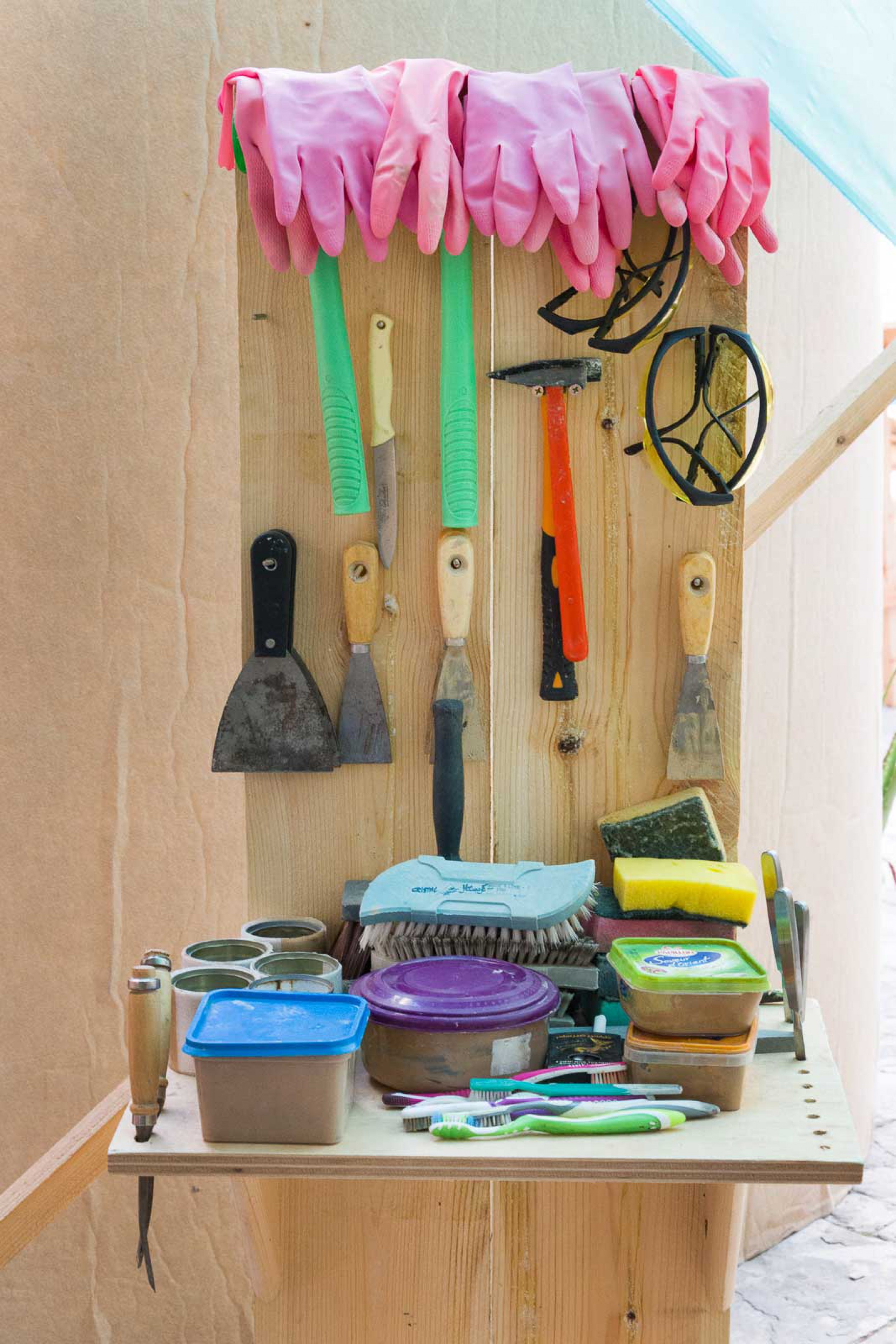
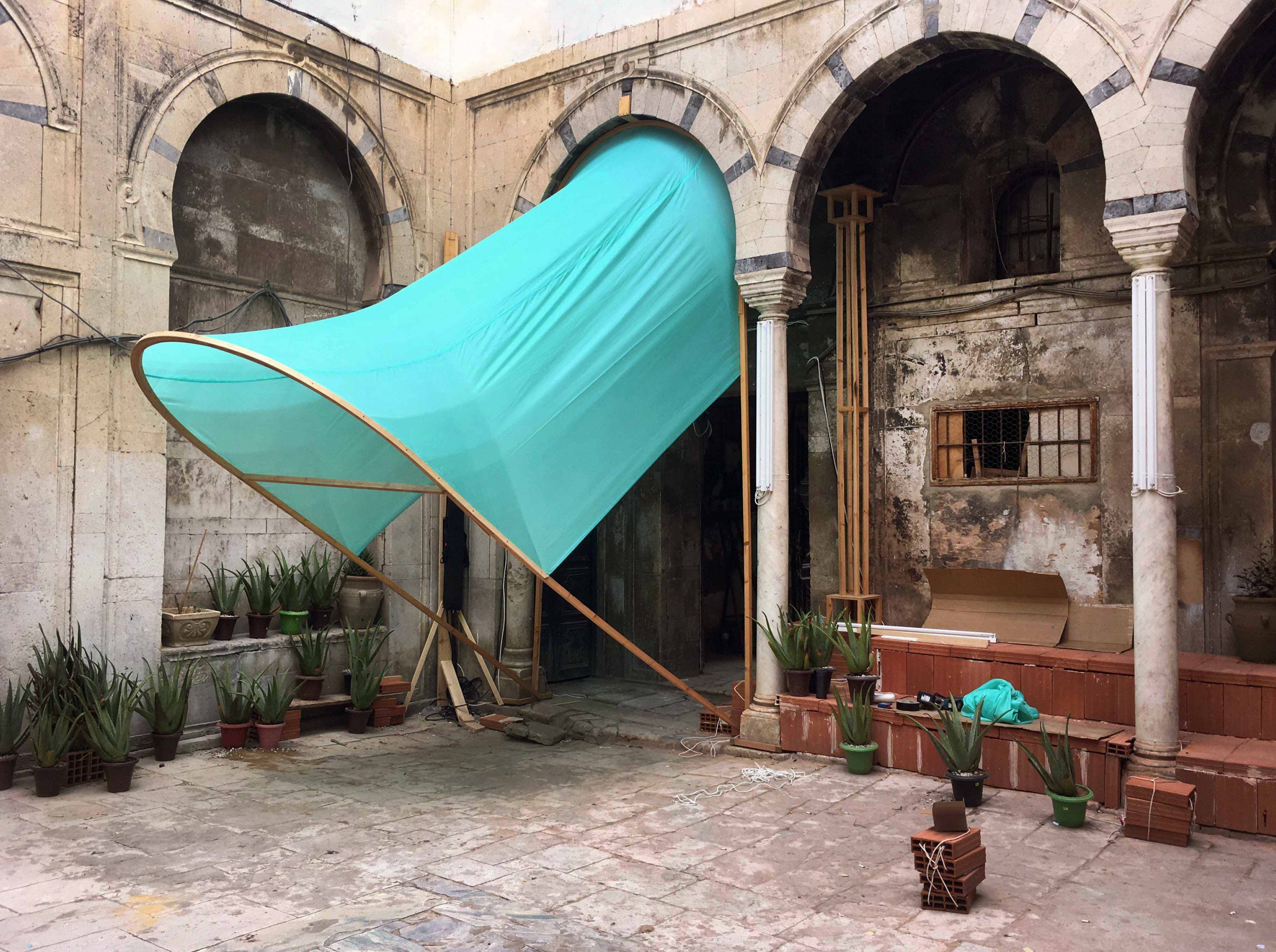
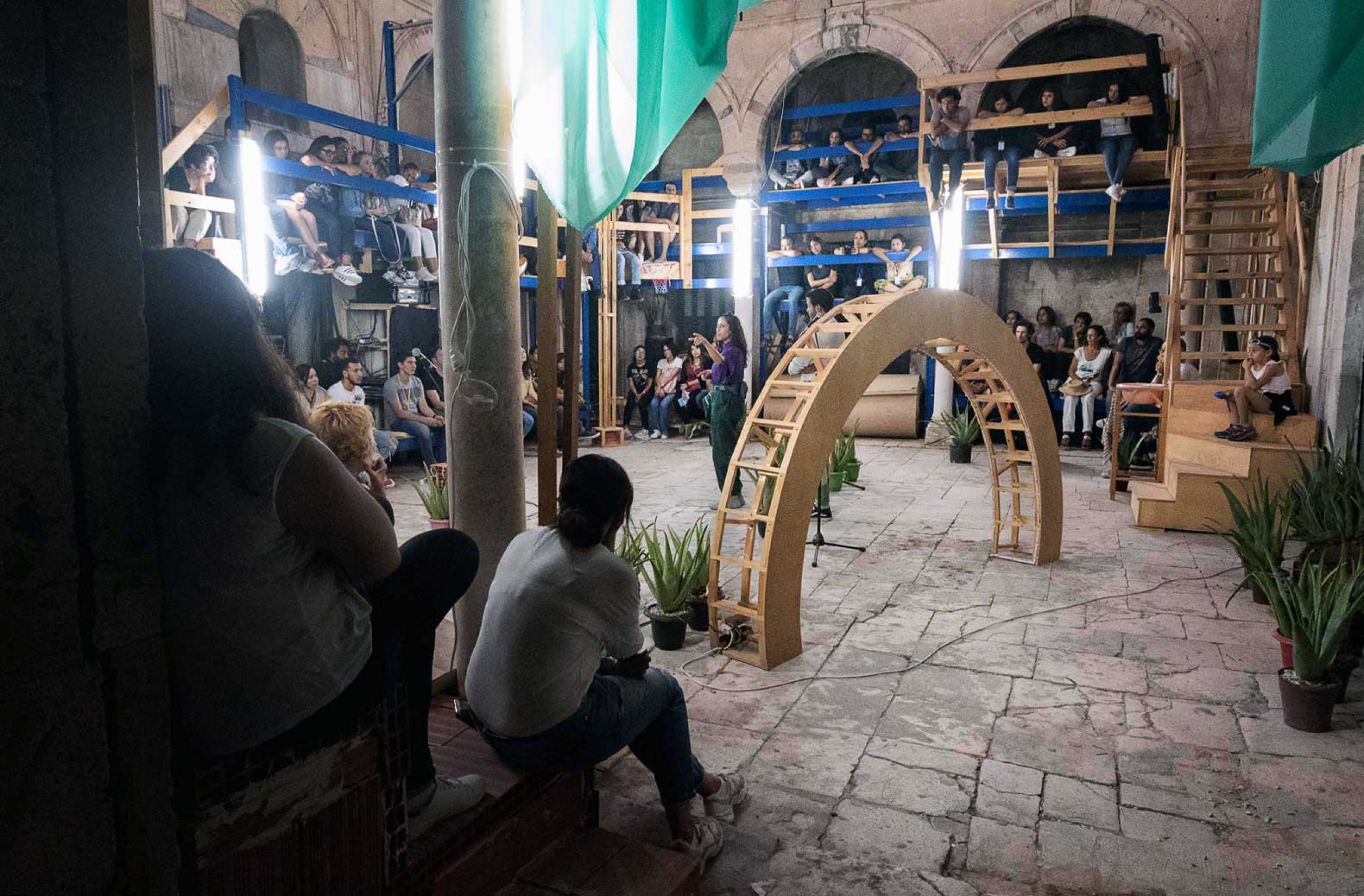
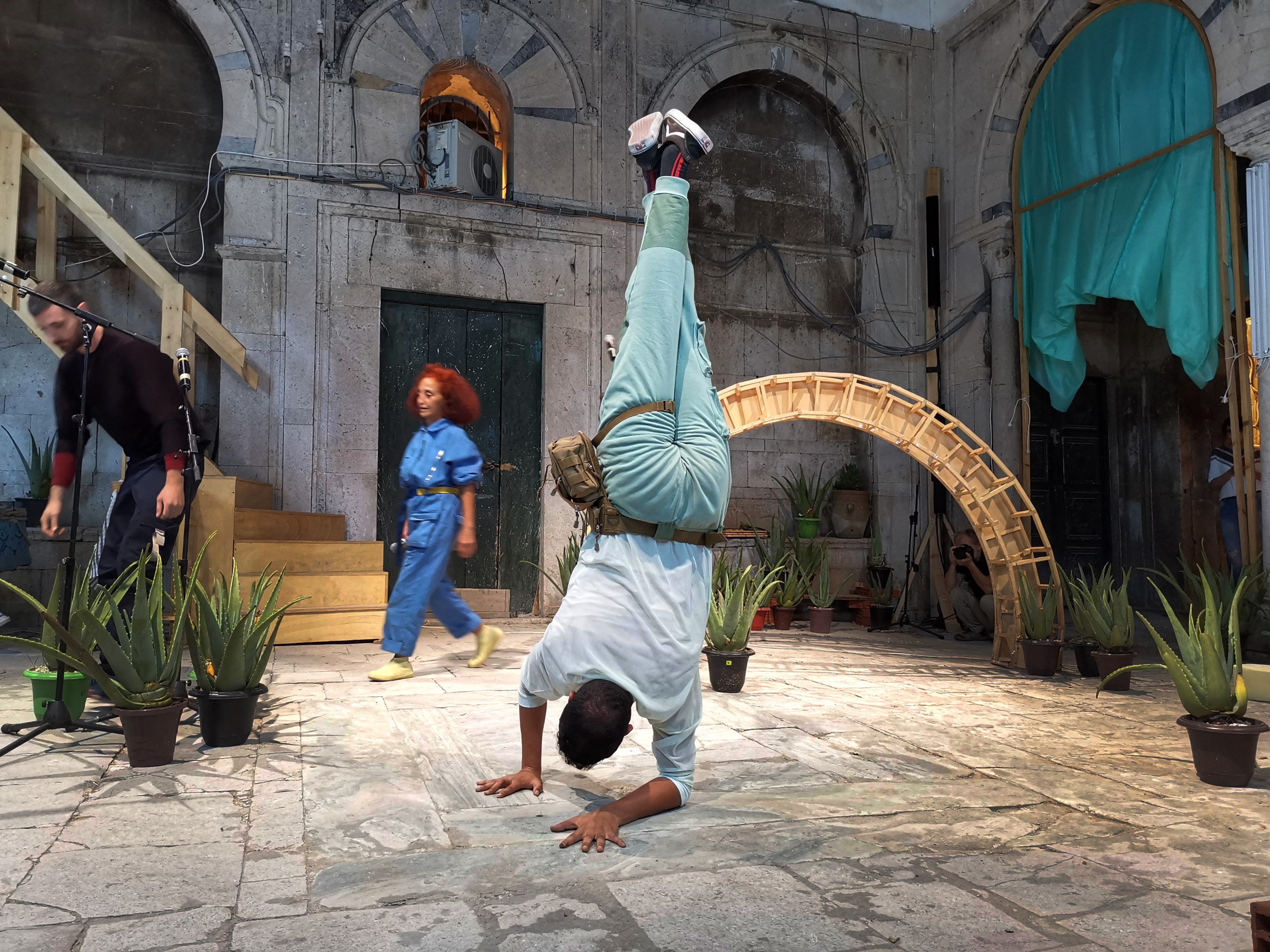
Decoratelier Jozef Wouters
The Unbuilt School of Architecture is a school without a building. It only exists temporarily and needs to be built time and time again by a group that comes together to work on a specific topic. The school was established for the first time within the context of the Free School-program of Kunstenfestivaldesarts. Jozef Wouters, the team of Decoratelier, and Brussels based art/party collective Leaving Living Dakota invited a small group of participants to discuss, design, construct and host a nightclub. What night-space do our collective desires invent? Or should we choose to focus on our conflicting ones? How visible or invisible do we want to be? What other forms of public space can we come up with? Can architecture keep a secret?
CREDITS
In collaboration with: Leaving Living Dakota (Célia Wu-tangu and Golce Dabanna) and Steven Jouwersma
Participants: Irène Bouzin, Melissa Jin, Maru Kay, Gülce Padem, Clemence Marin, Vesara Molla, Maria Muehombo, Benjamin Munix, Maria Mushtriev, Charlotte Nagel, Isabelle N’diaye, Joris Perdieus, Mariagiulia Serantoni, Marion Stucky, Erik van de Wijdeven, Elina Valdmane, Lizzy Vandierendonck, Ode Windels
Coproduction: Kunstenfestivaldesarts, Decoratelier Jozef Wouters, Damaged Goods
Supported by: SAU/MSI urban development corporation

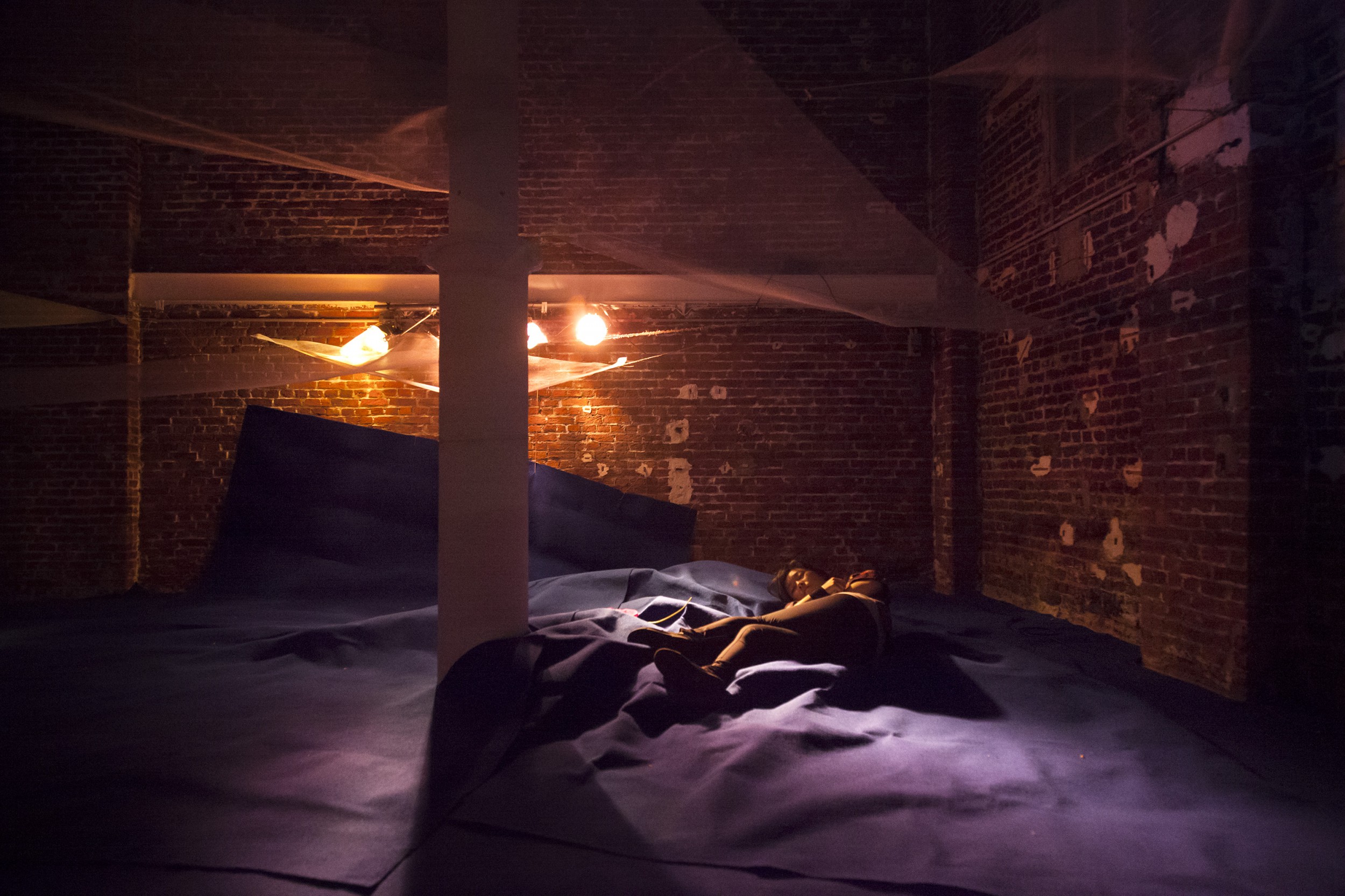
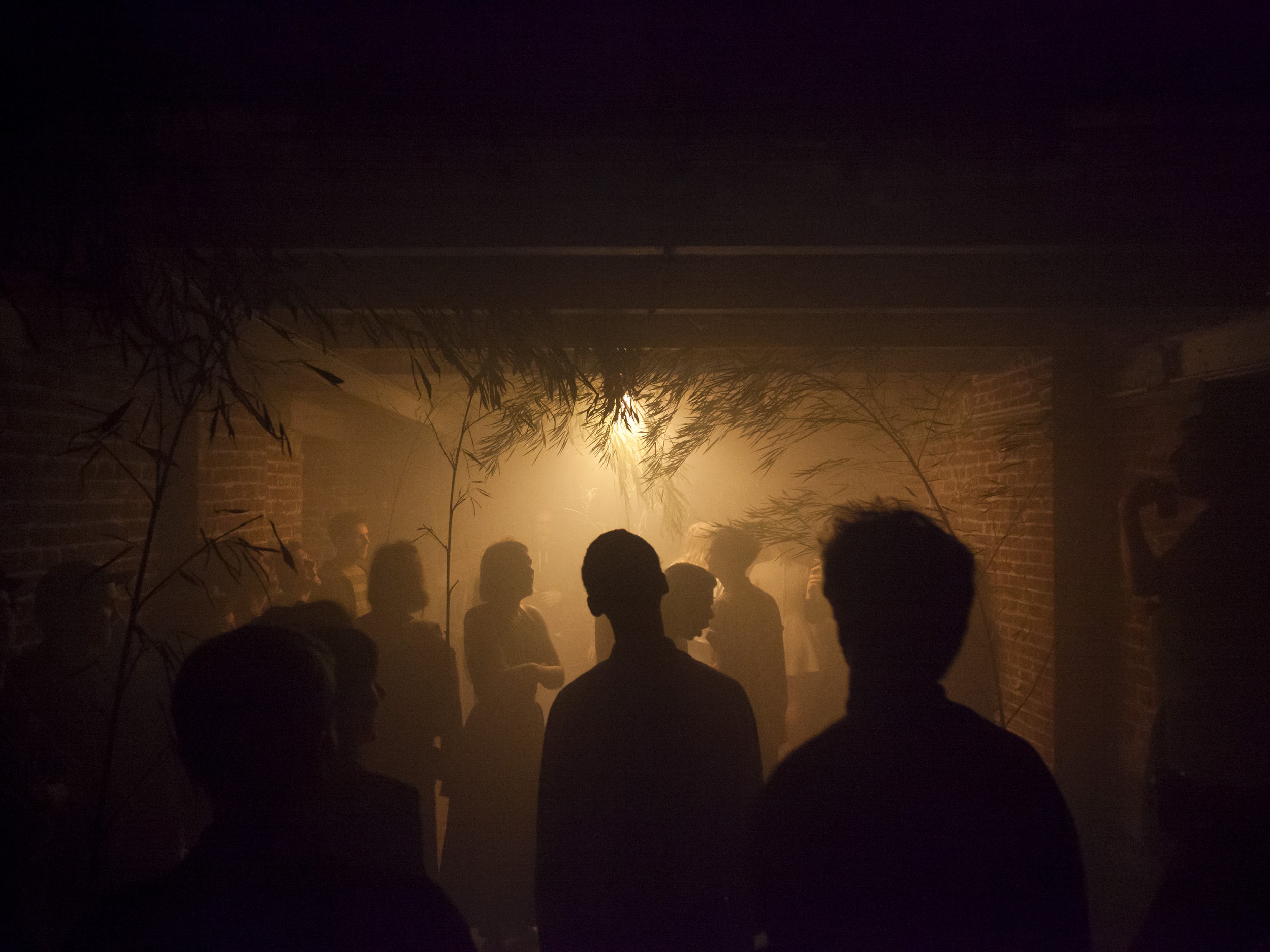
Building Out Loud is a form of improvised construction in which sketching, making, expressing and speaking take place simultaneously. More than a name for a specific project, it is a common theme that includes various projects and spaces.

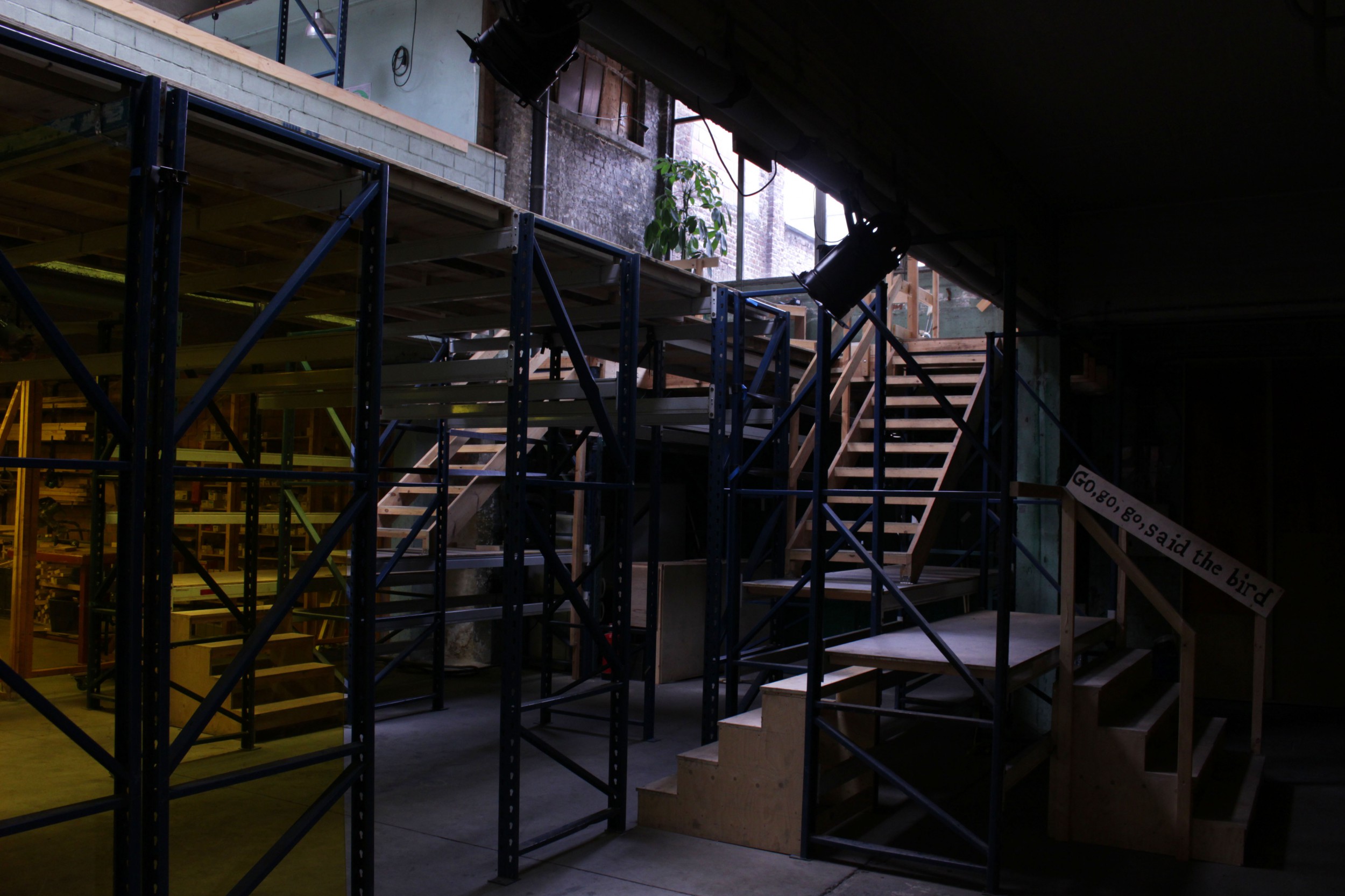
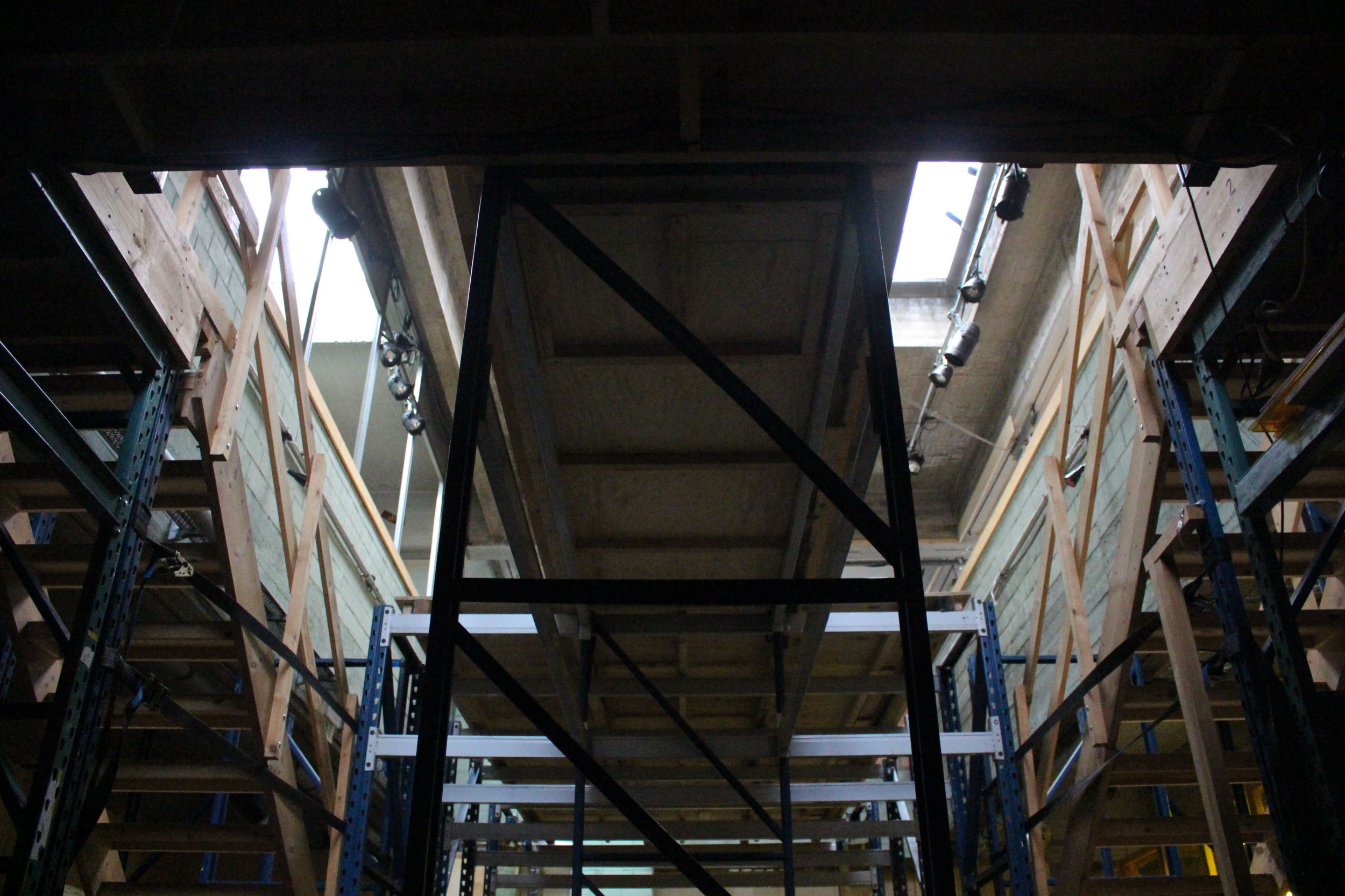

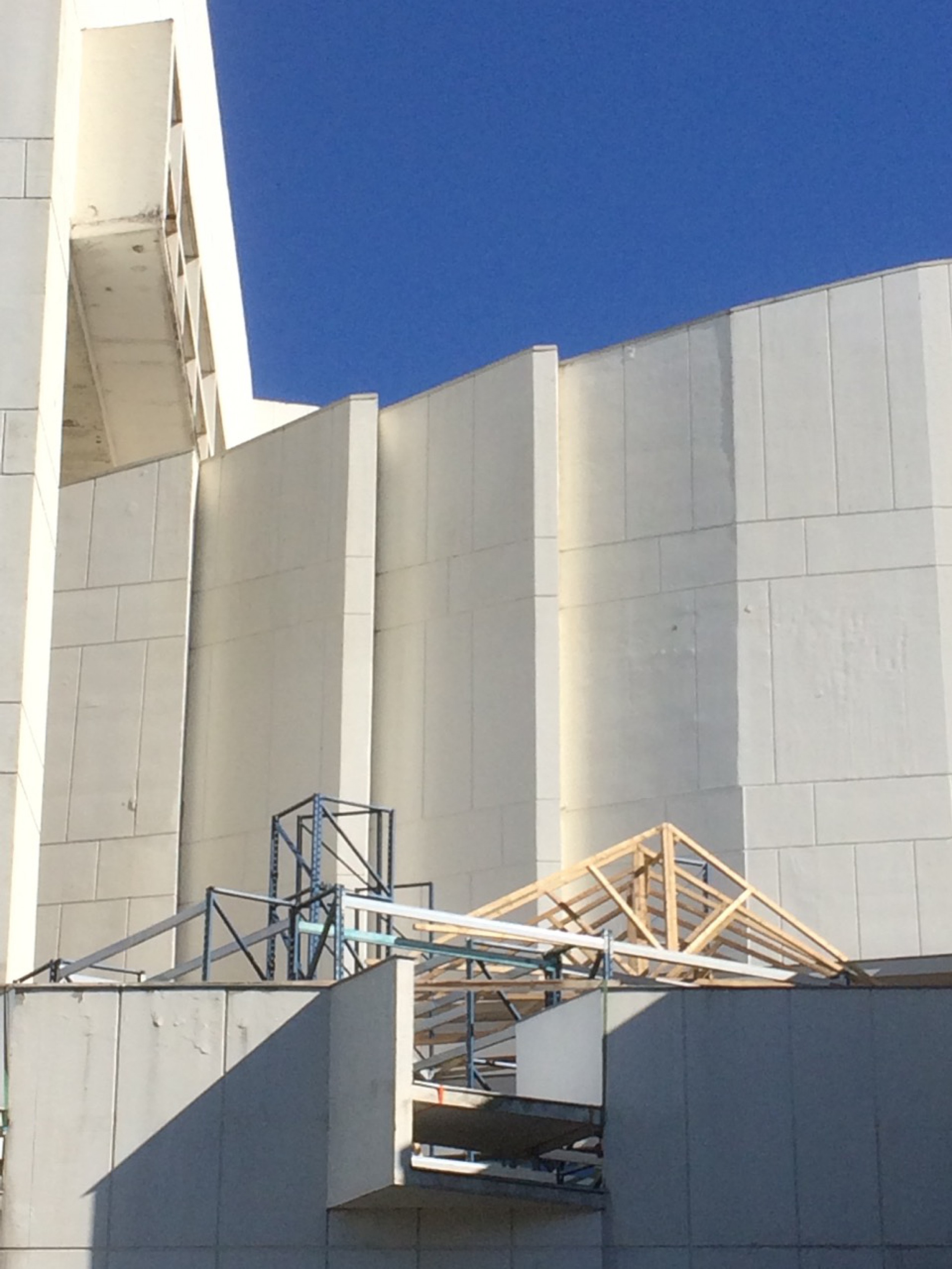
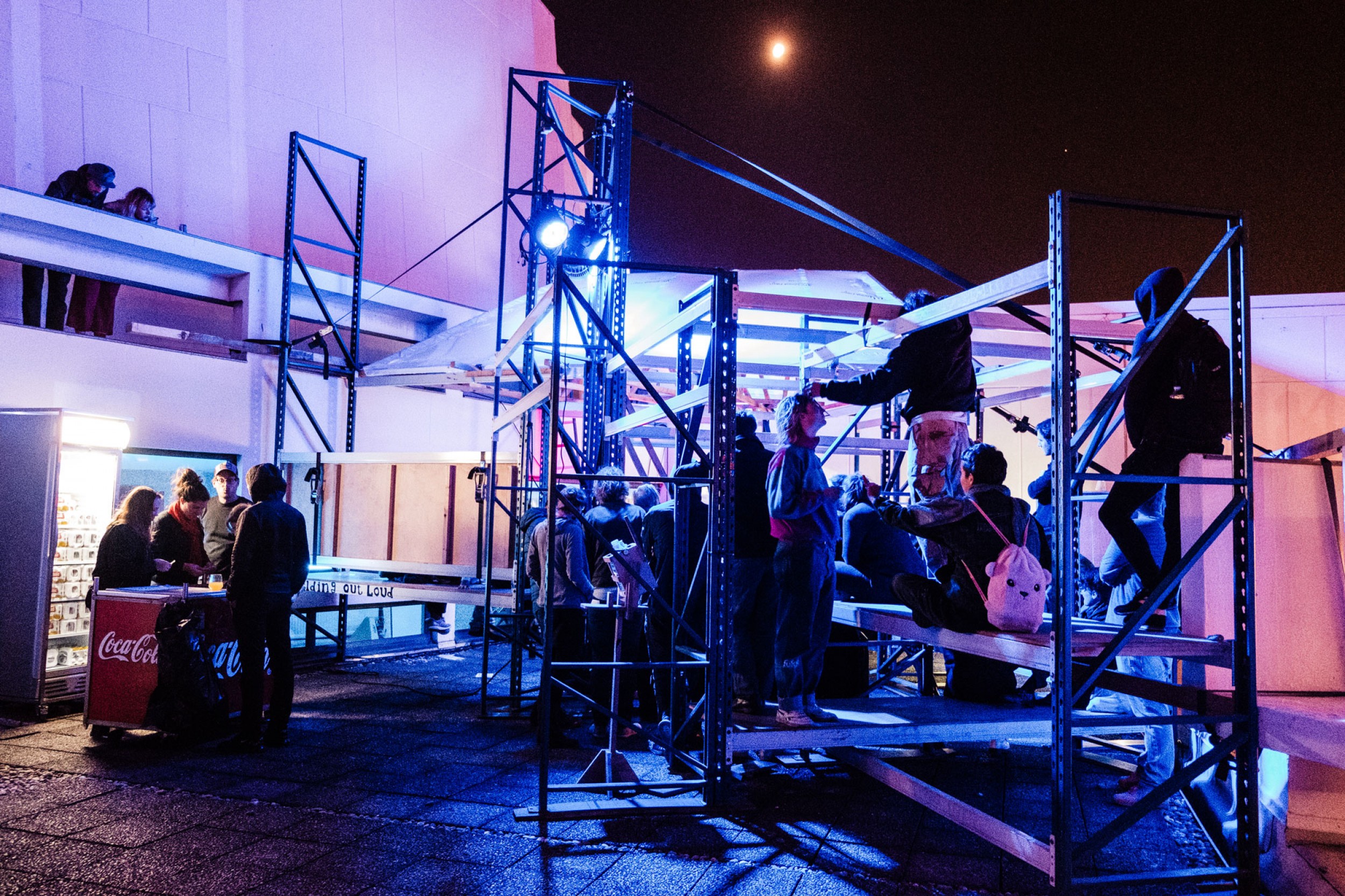
Forest management as a method for the design of public space
In 2023-2024, architect Wim Cuyvers, scenographer Jozef Wouters and builder Menno Vandevelde research how forest management can be employed as a method for the design of public space. Their research is supported through a master-apprentice program for the transmission of craftmanship and Jozef Wouters' fellowship with PACT Zollverein (Essen, DE).
Since 2009, Wim Cuyvers has explored expansive meanings of public space on ‘Les Montavoies’, a piece of forest in the French Jura. Under his tutelage, Jozef and Menno will research how forest management can be a model for other contexts - such as Decoratelier in Brussels. By approaching urban environments through their experiences in the forest ecosystem, they want to develop new ways to think about public space.

